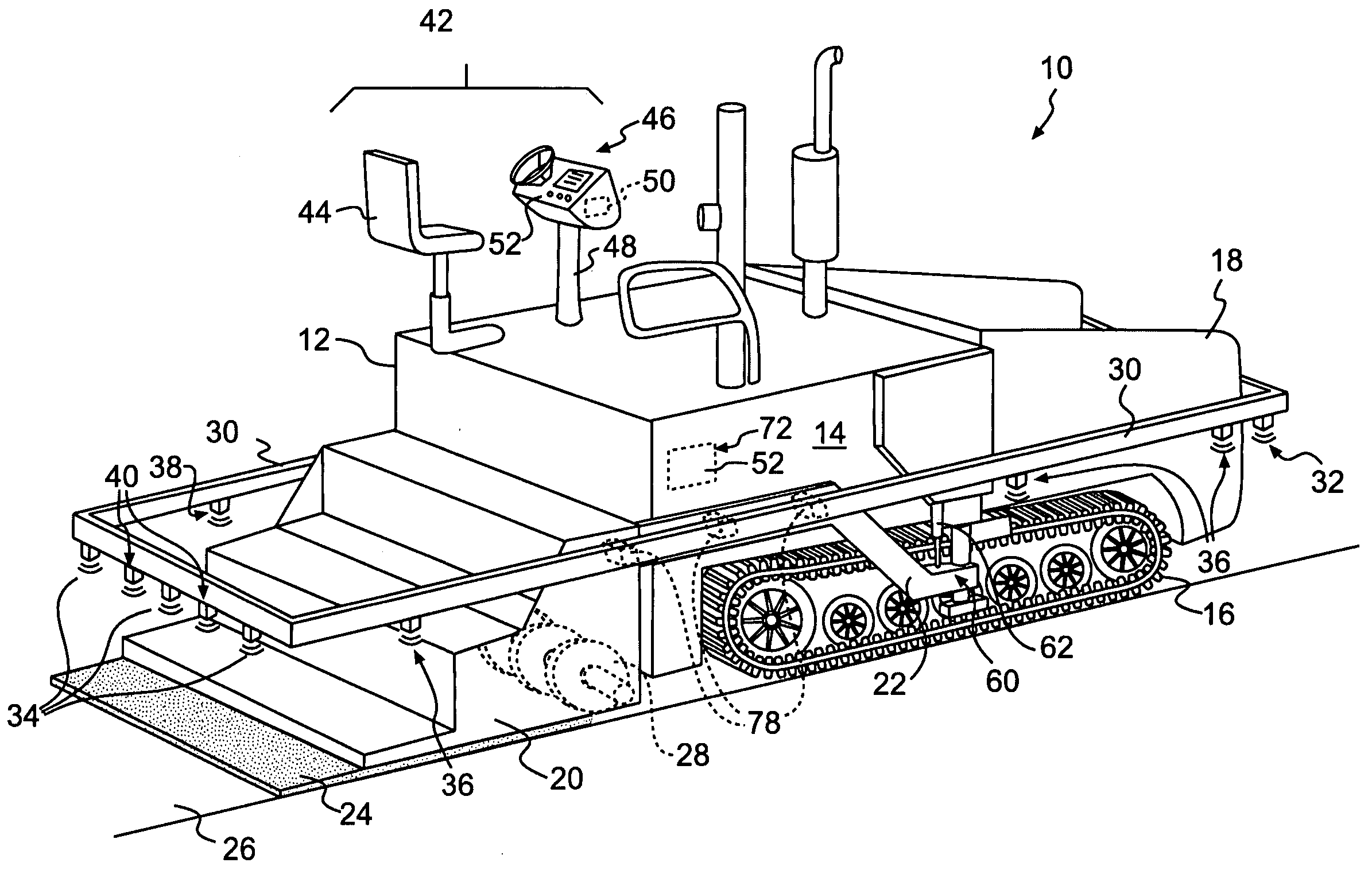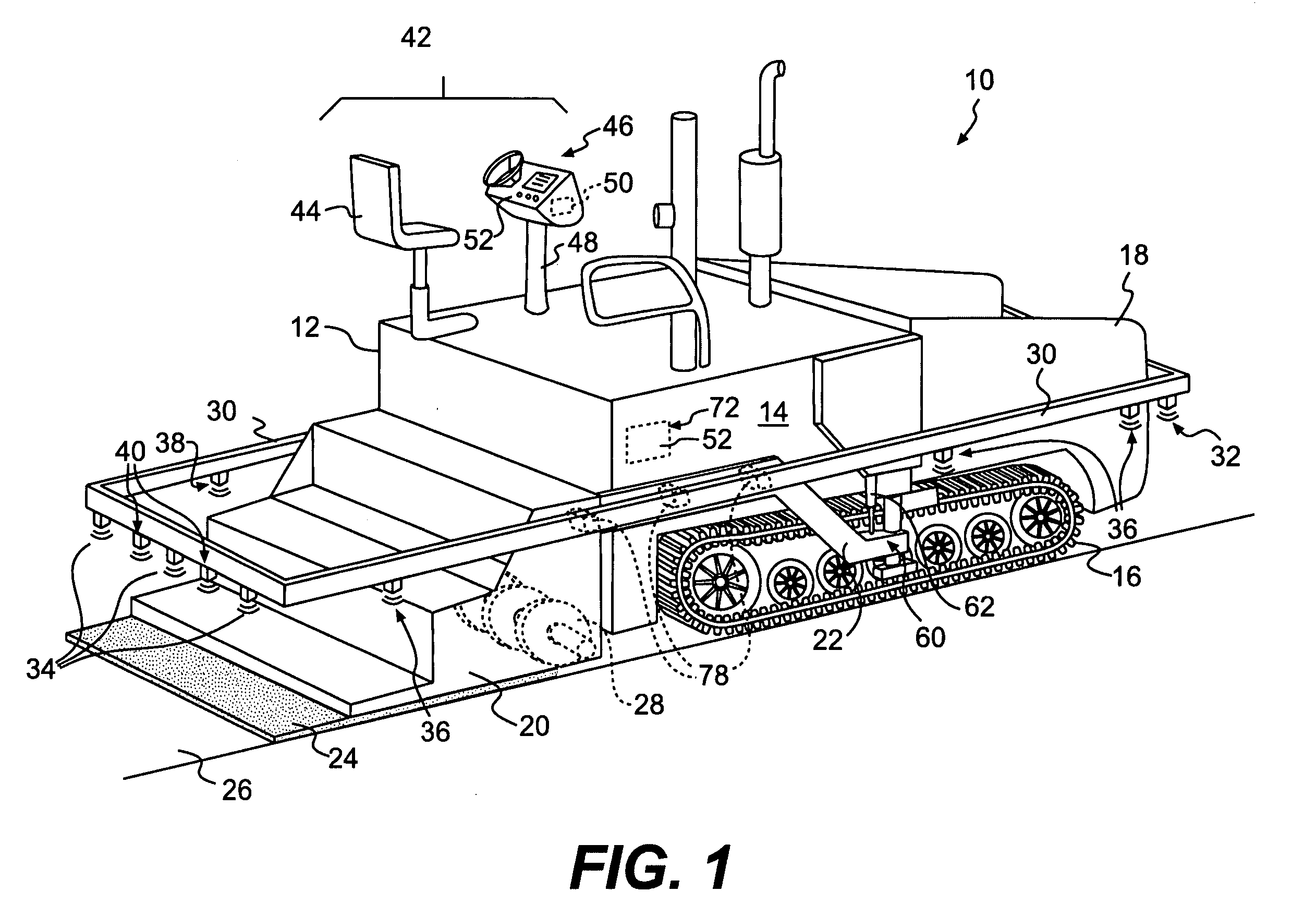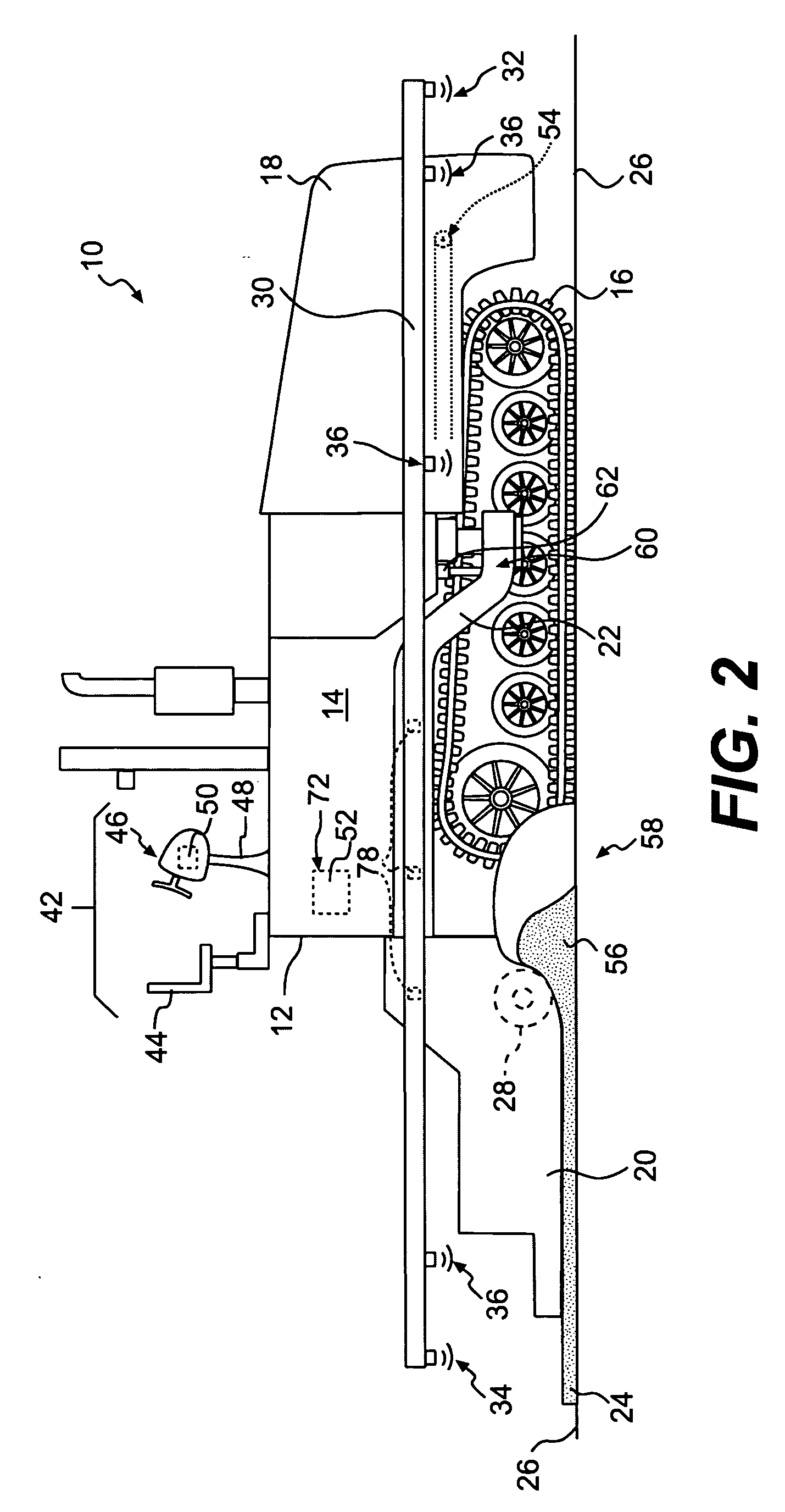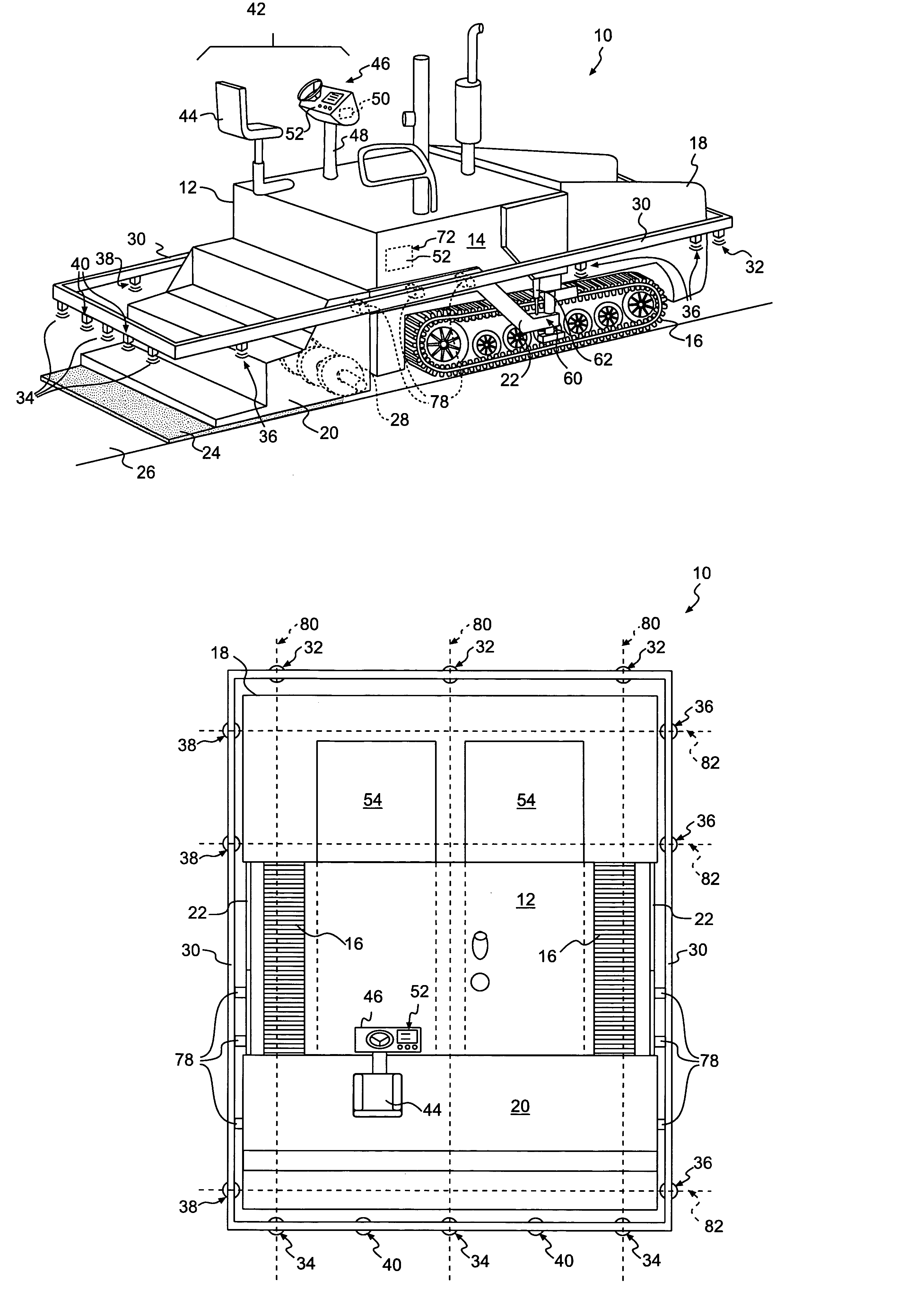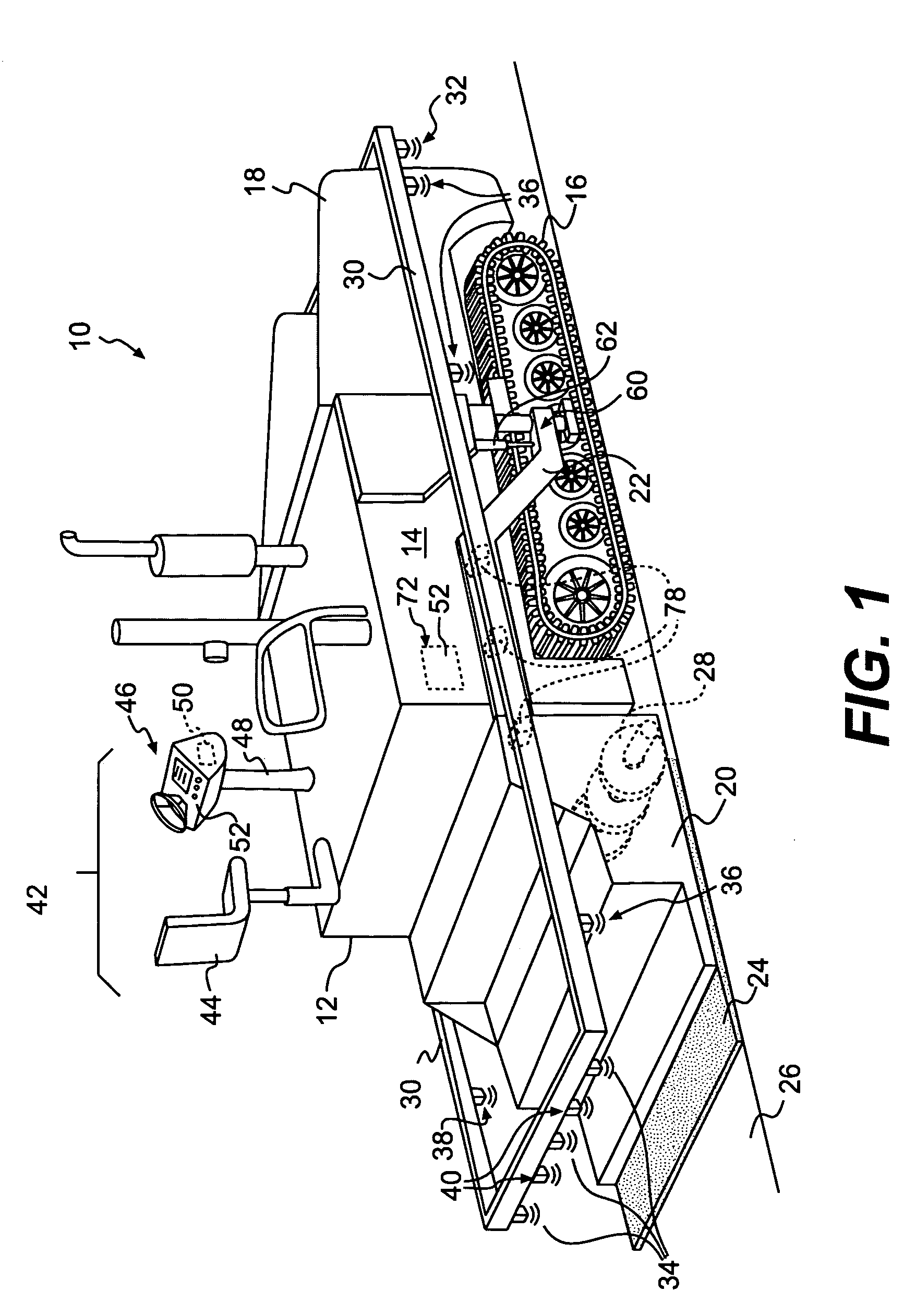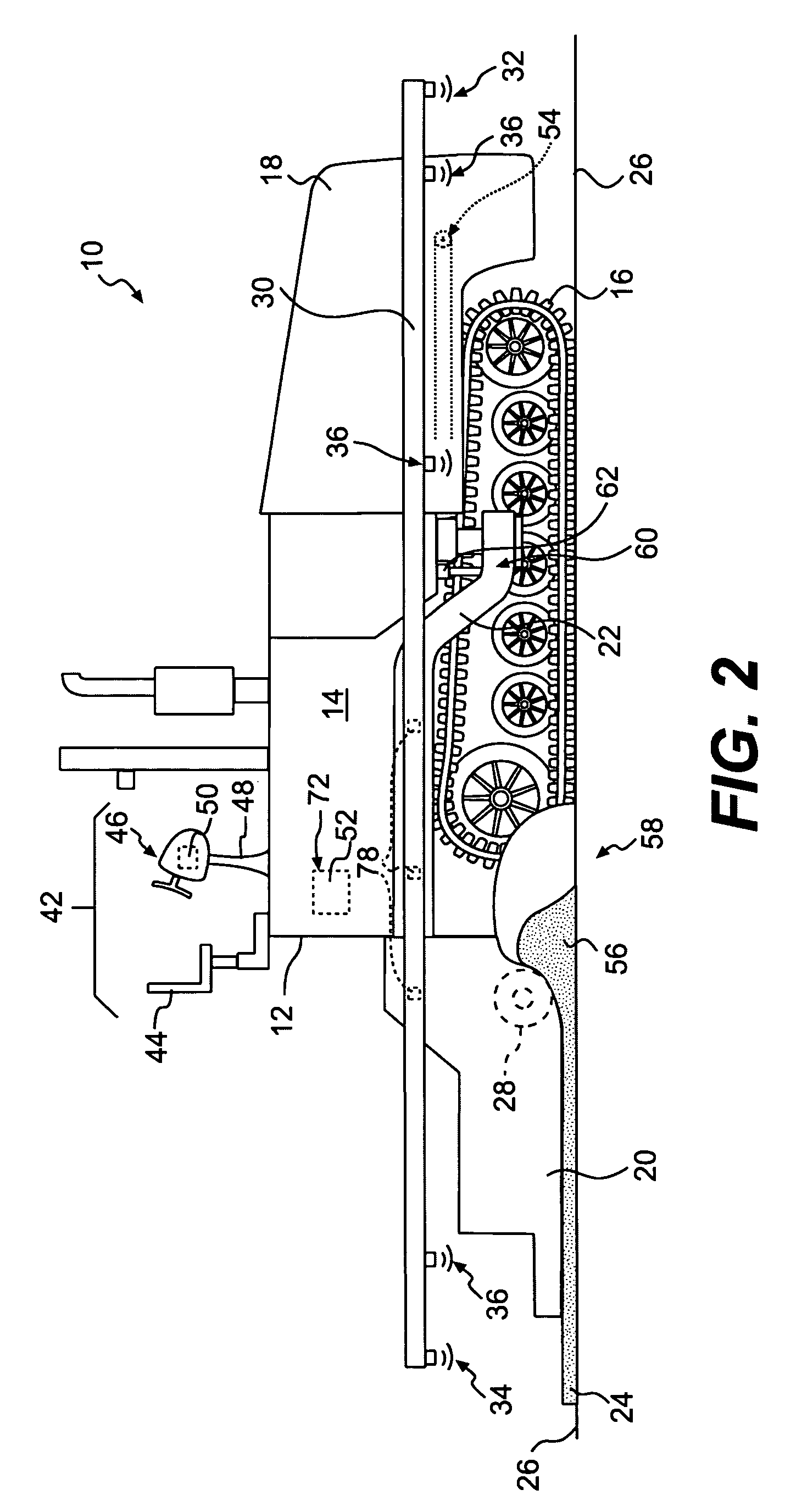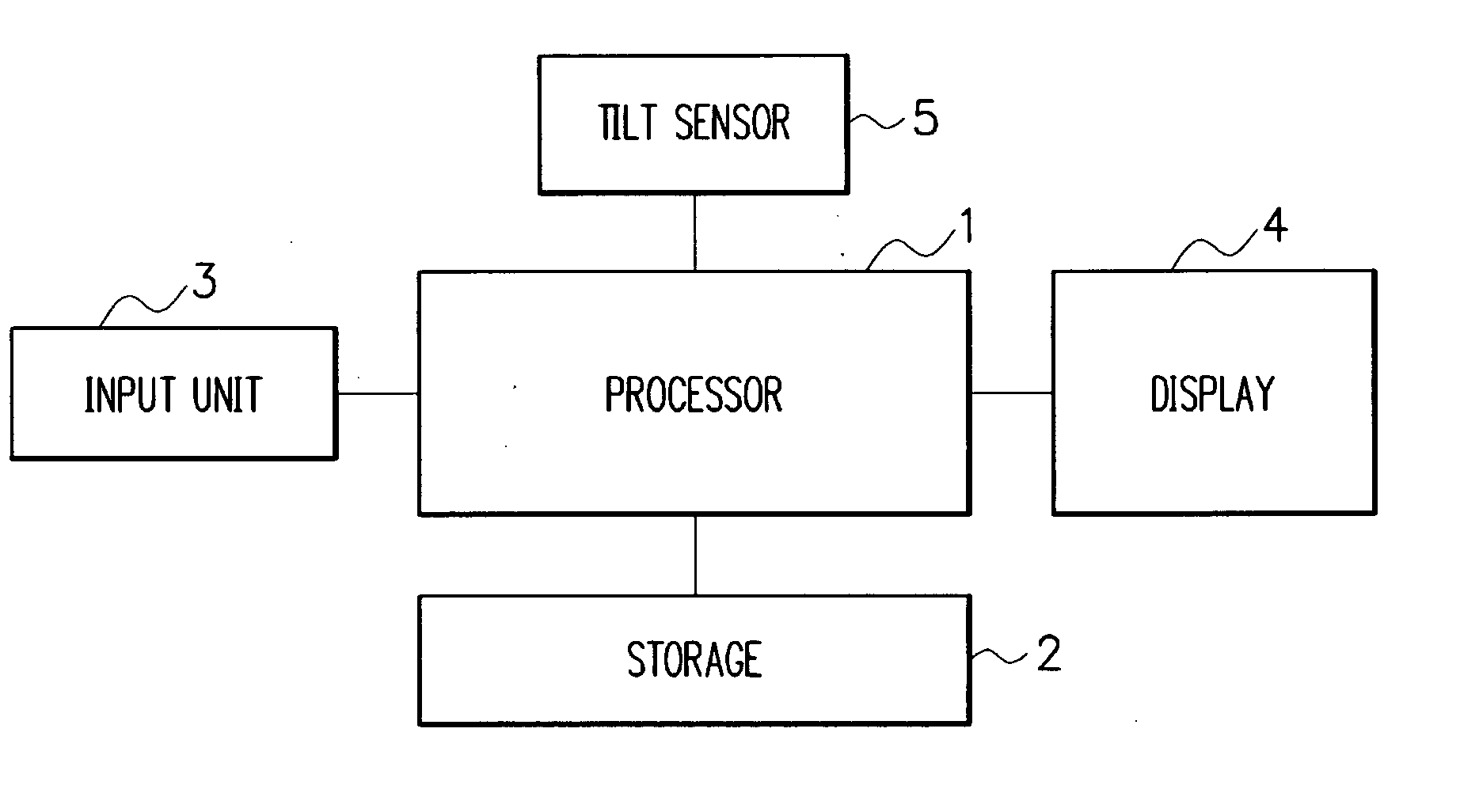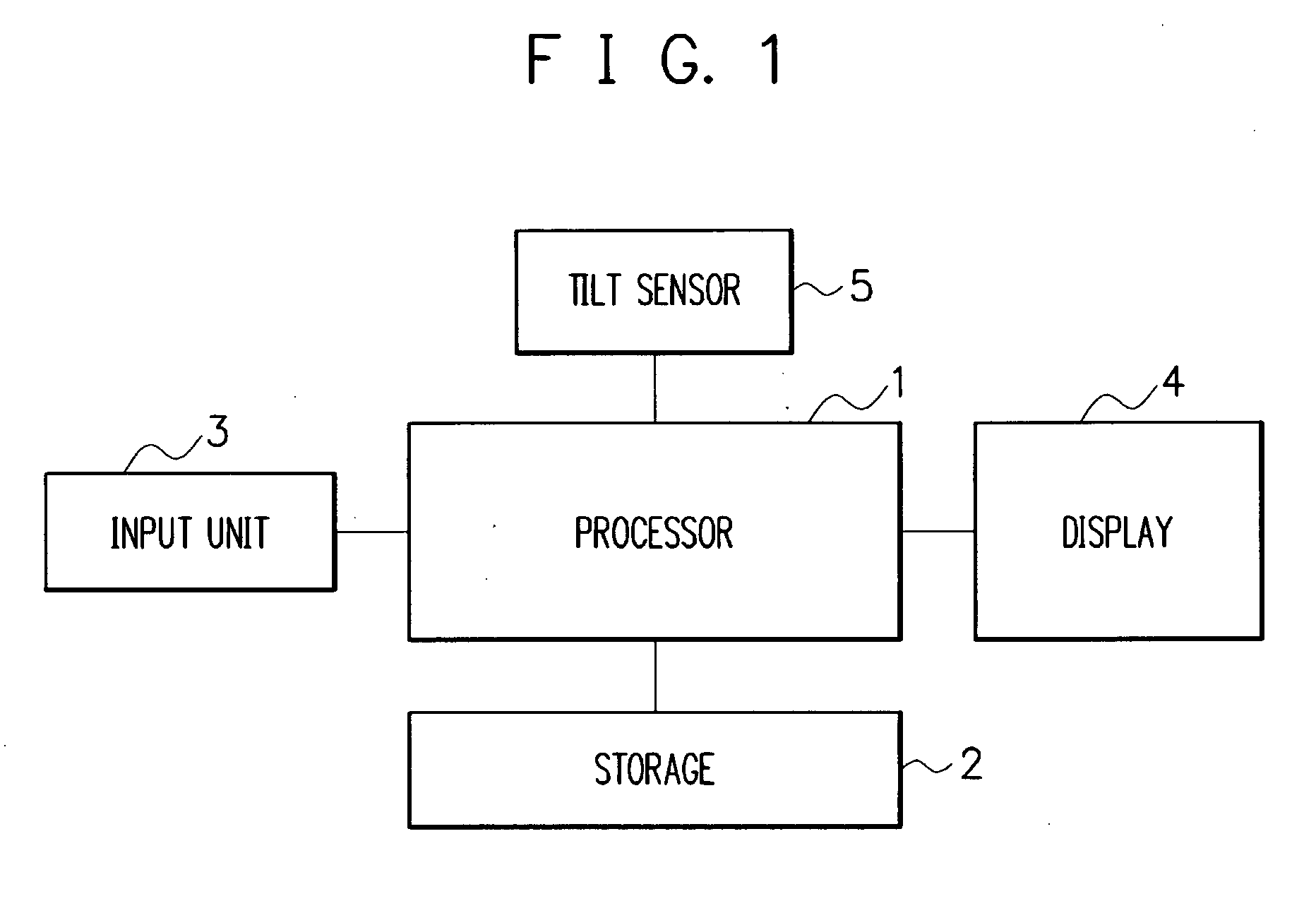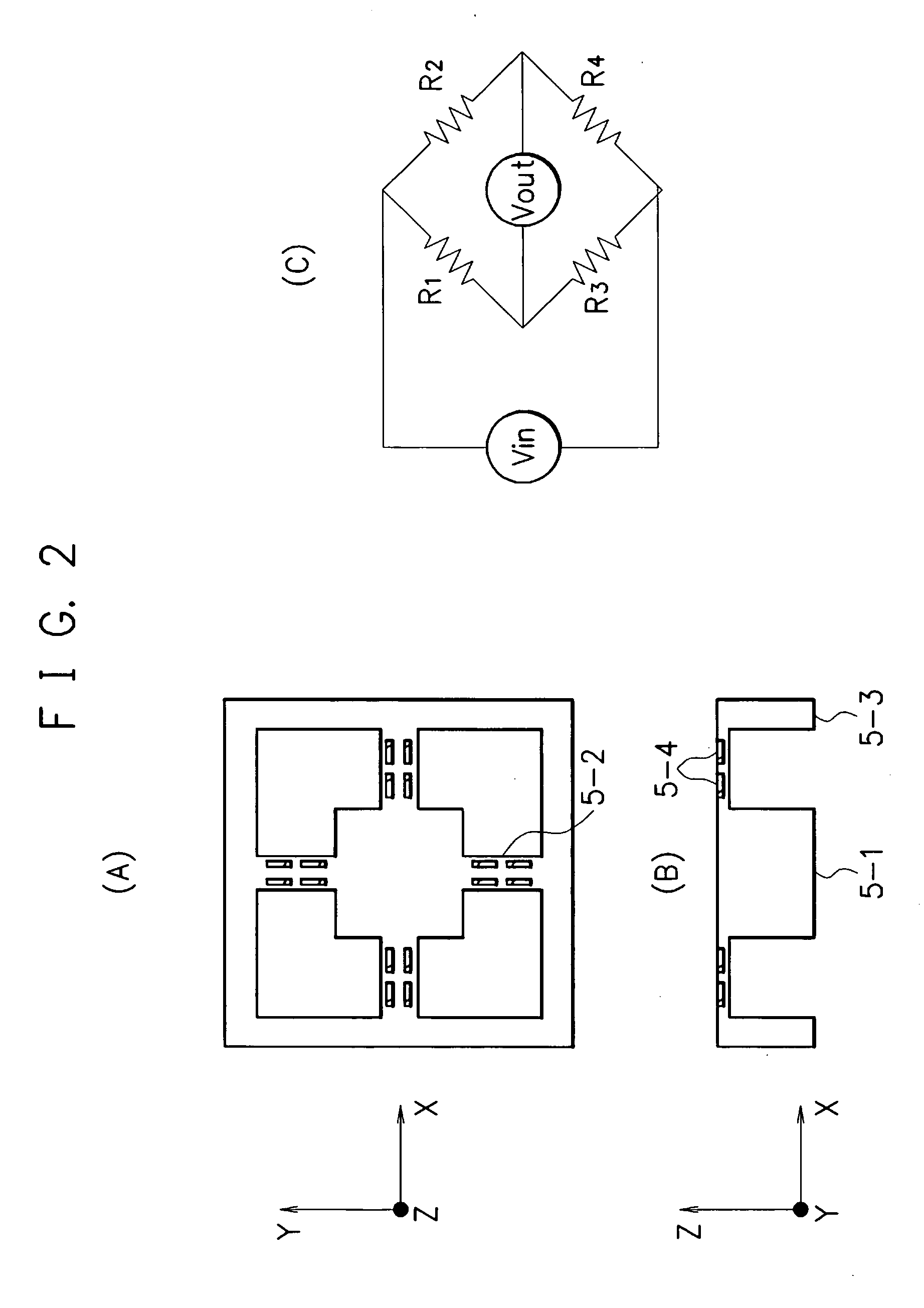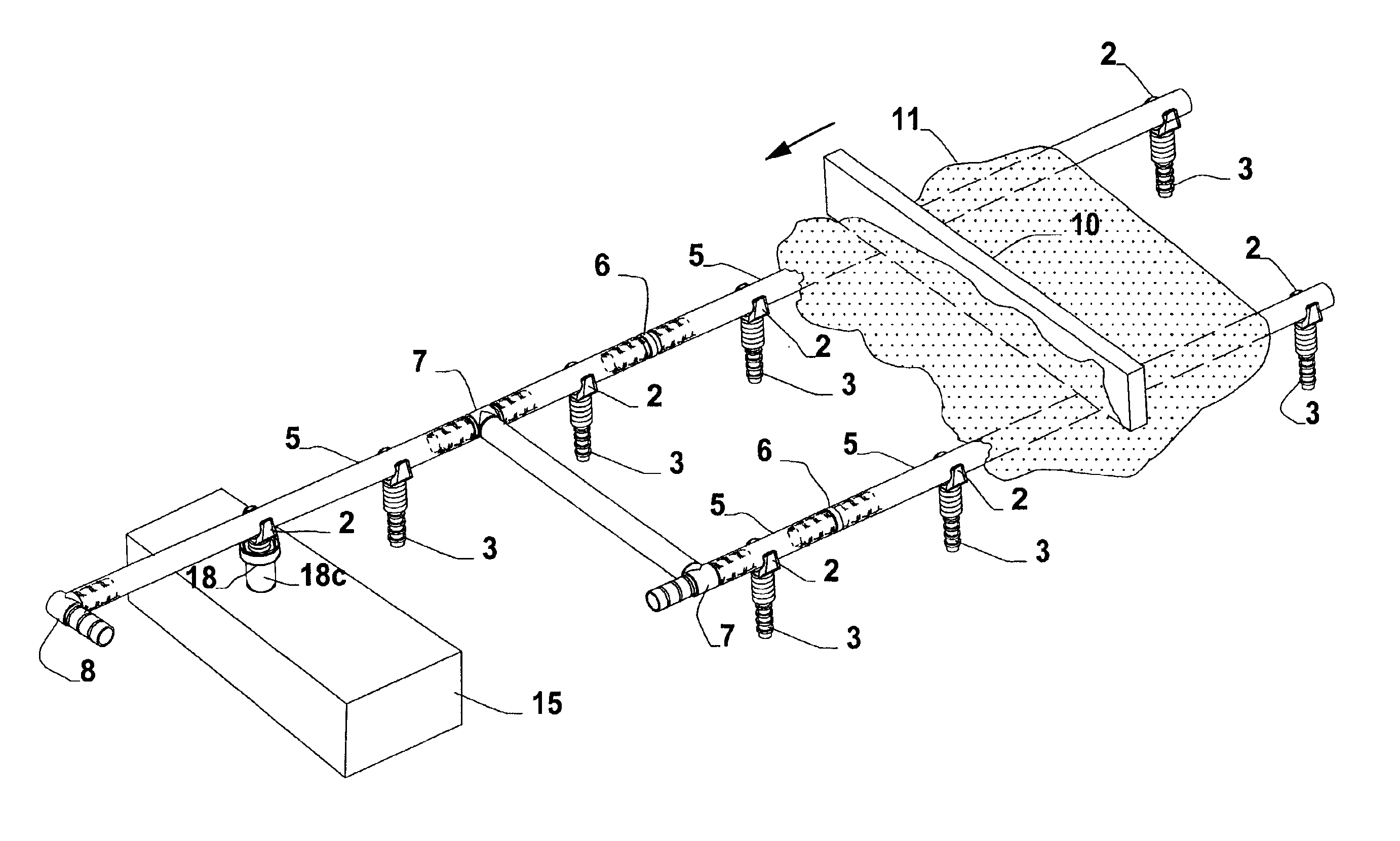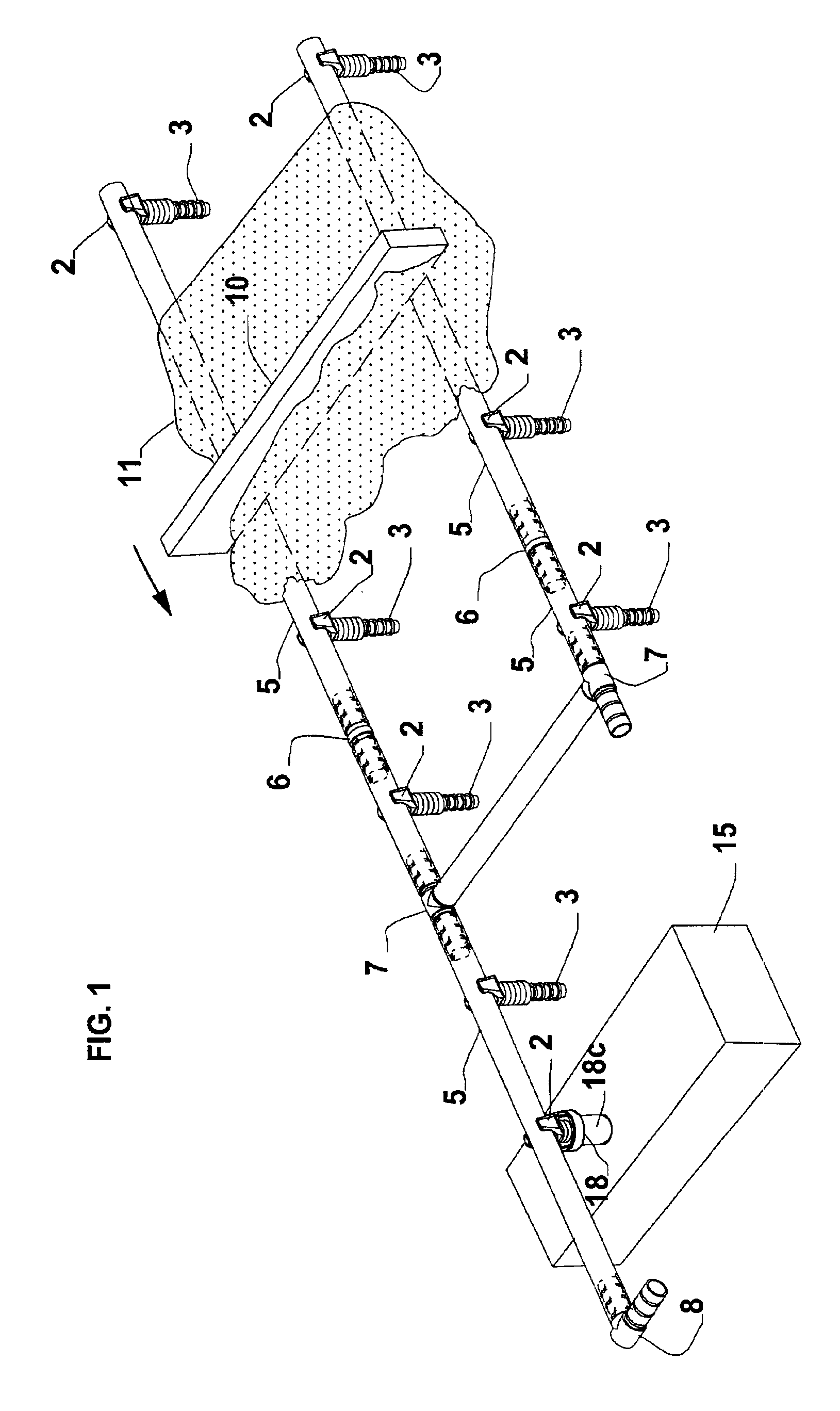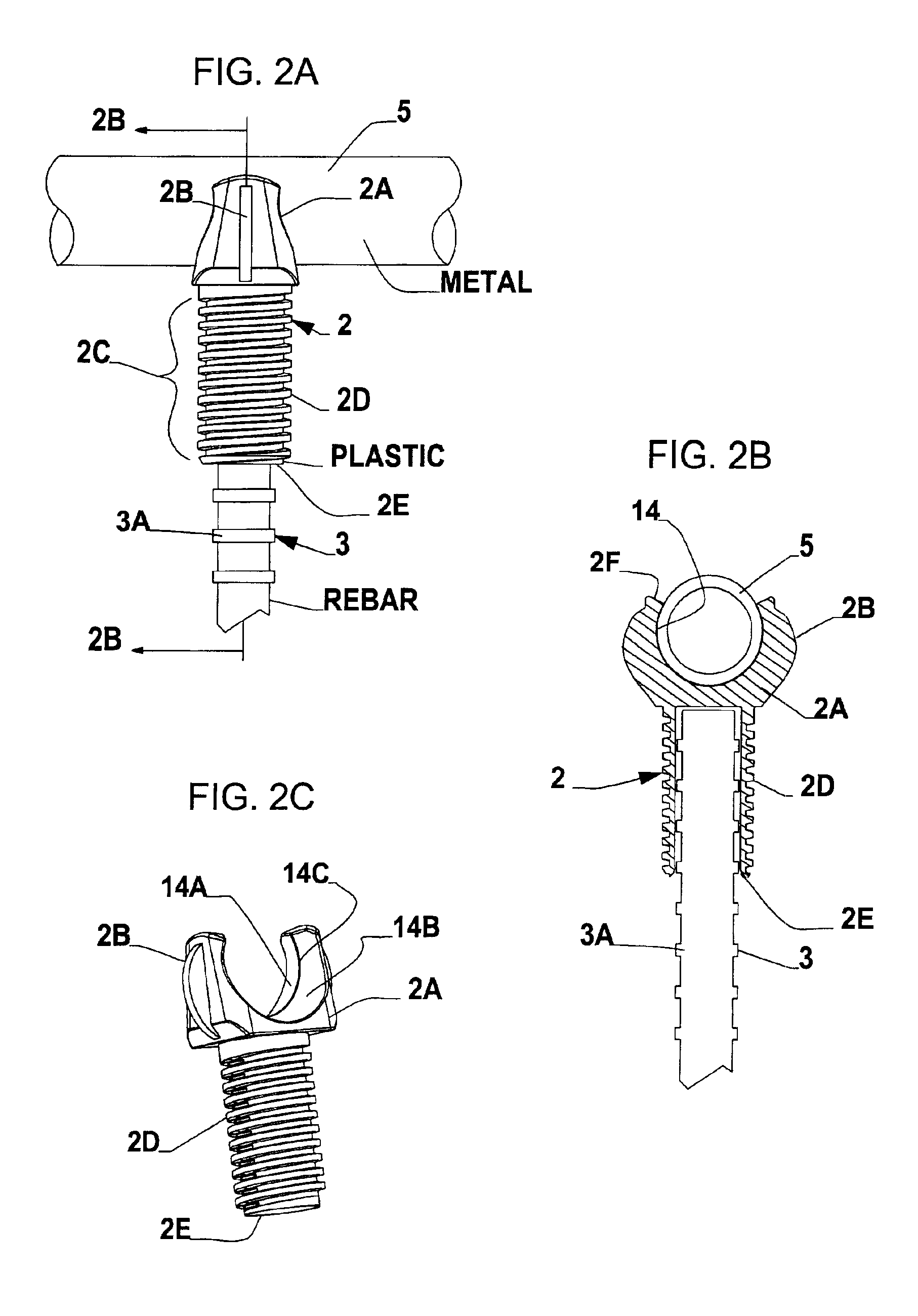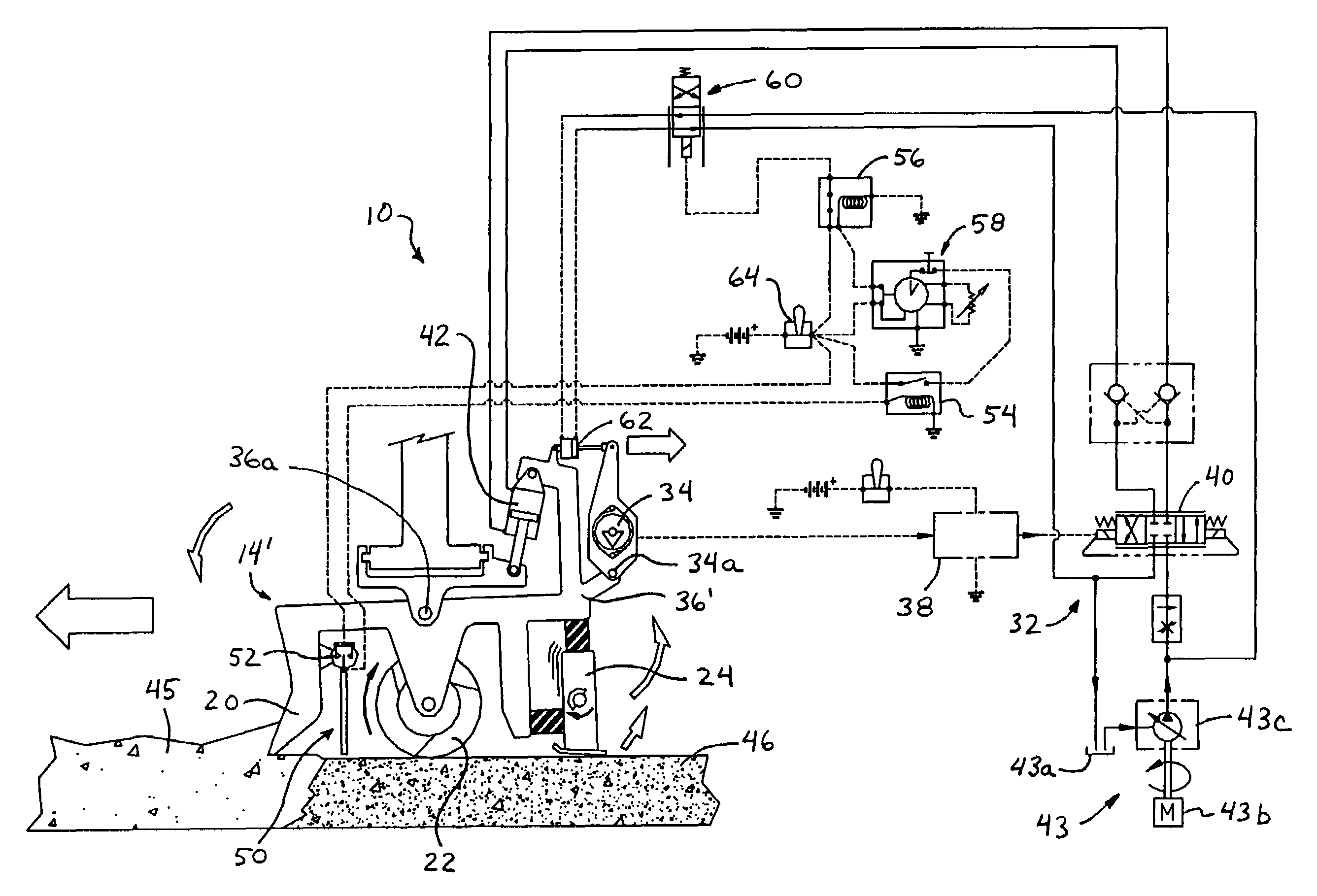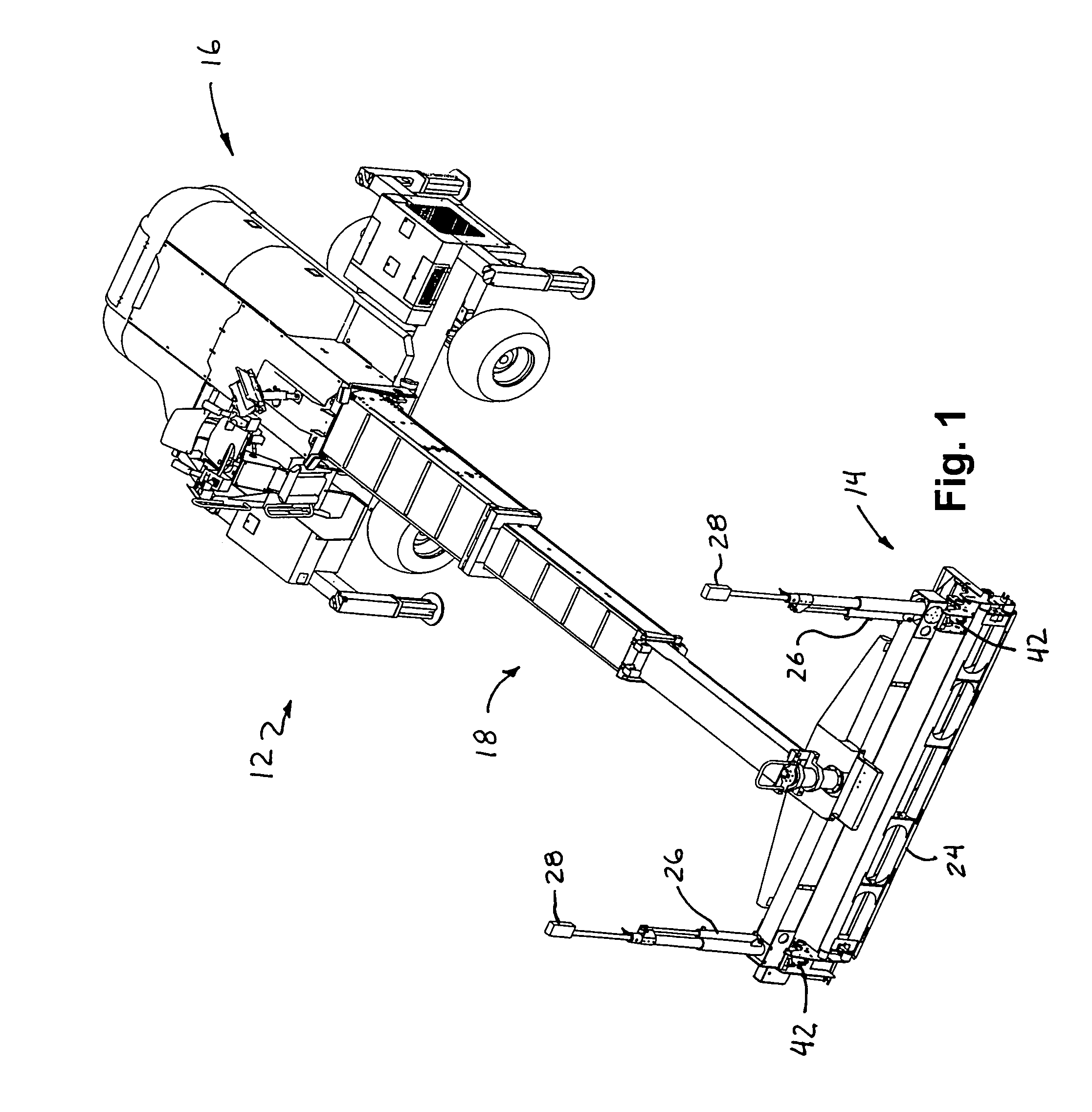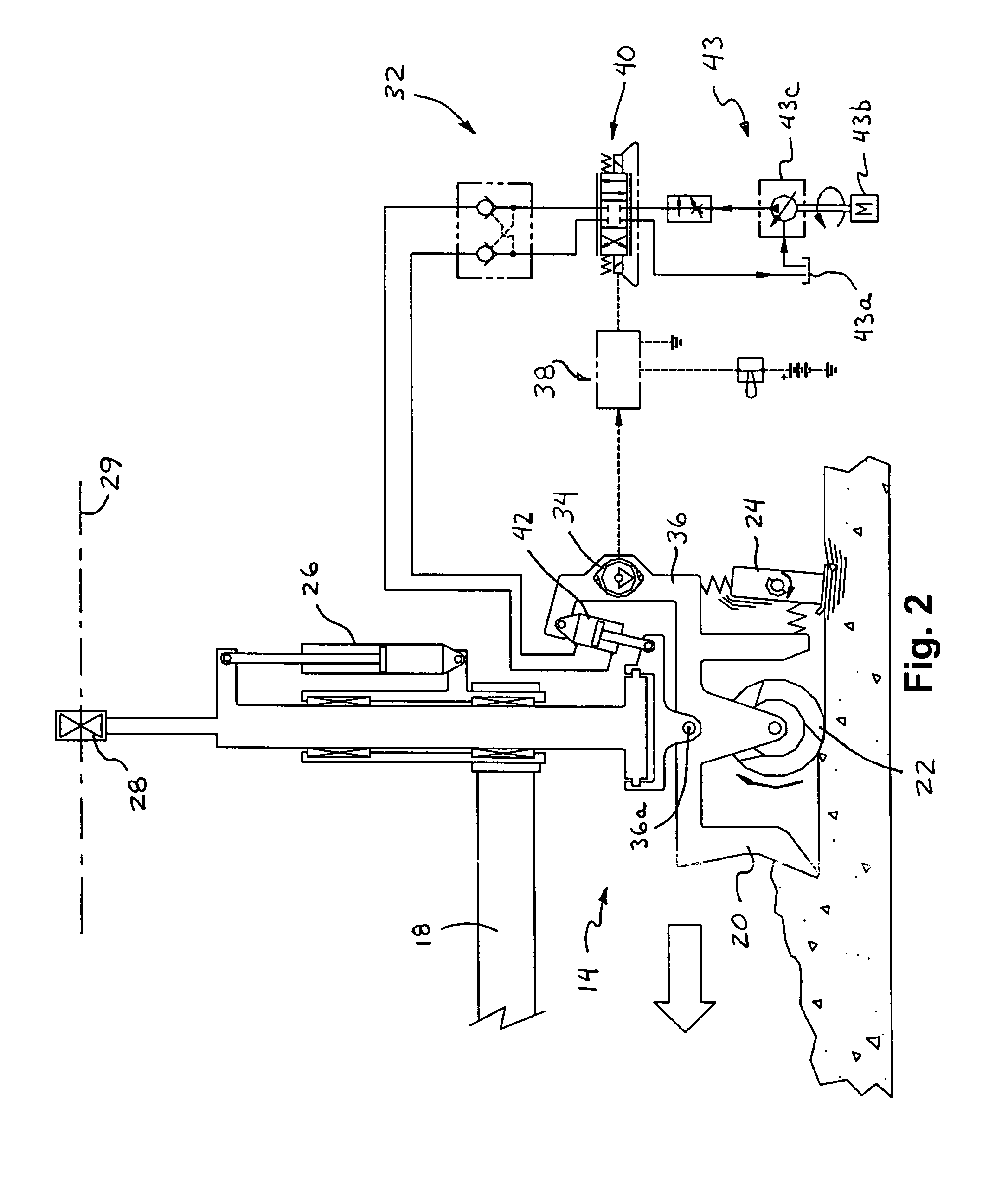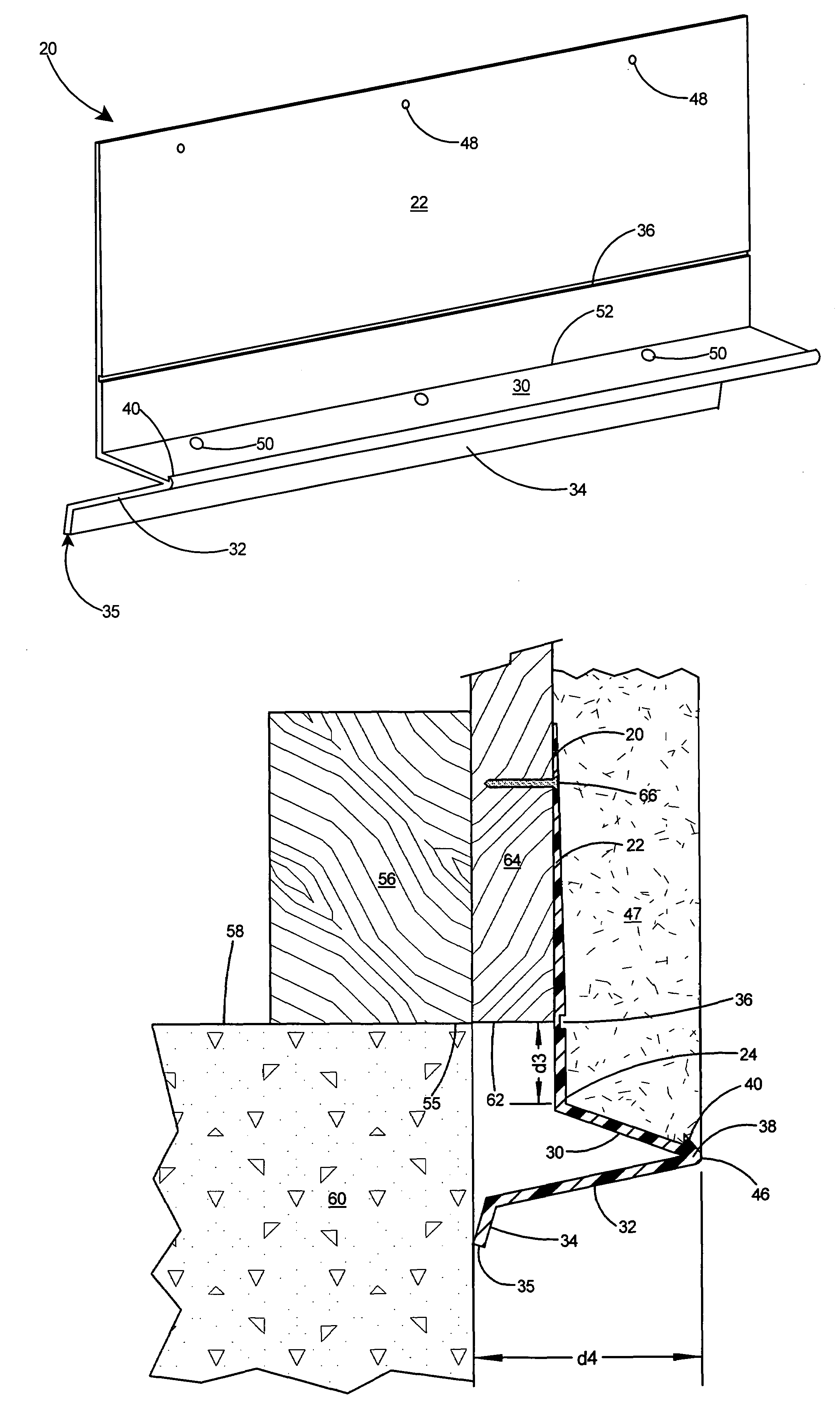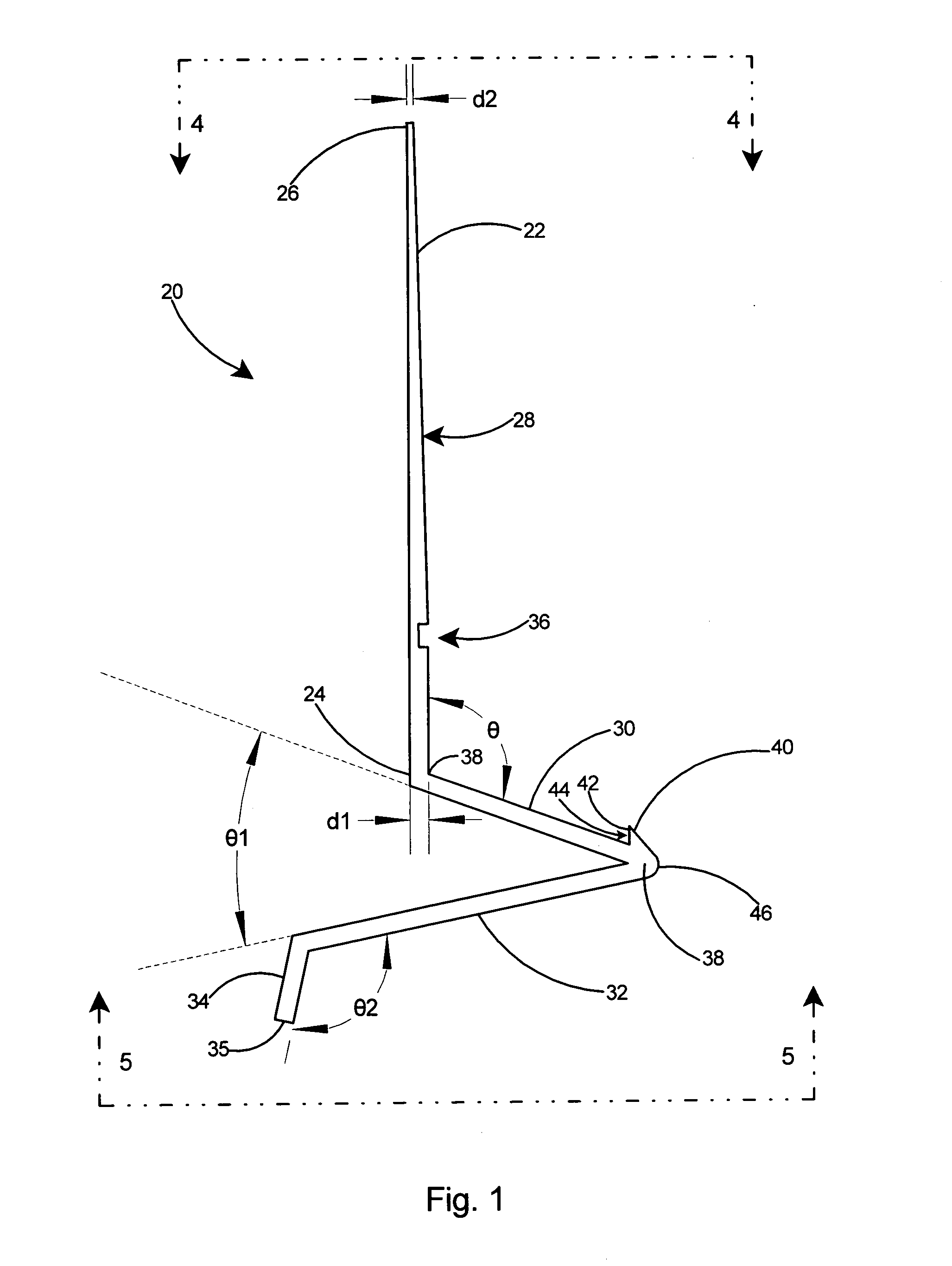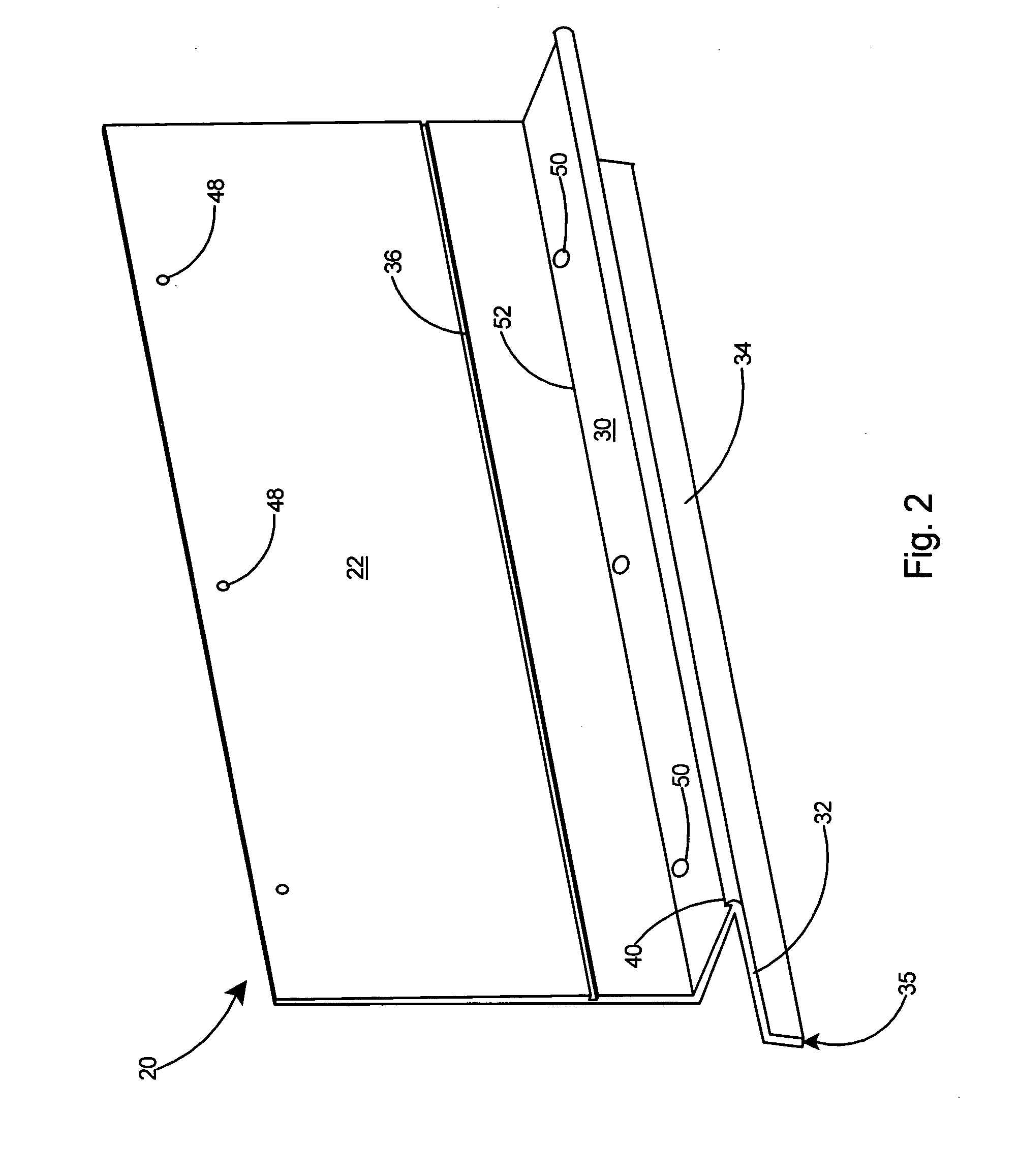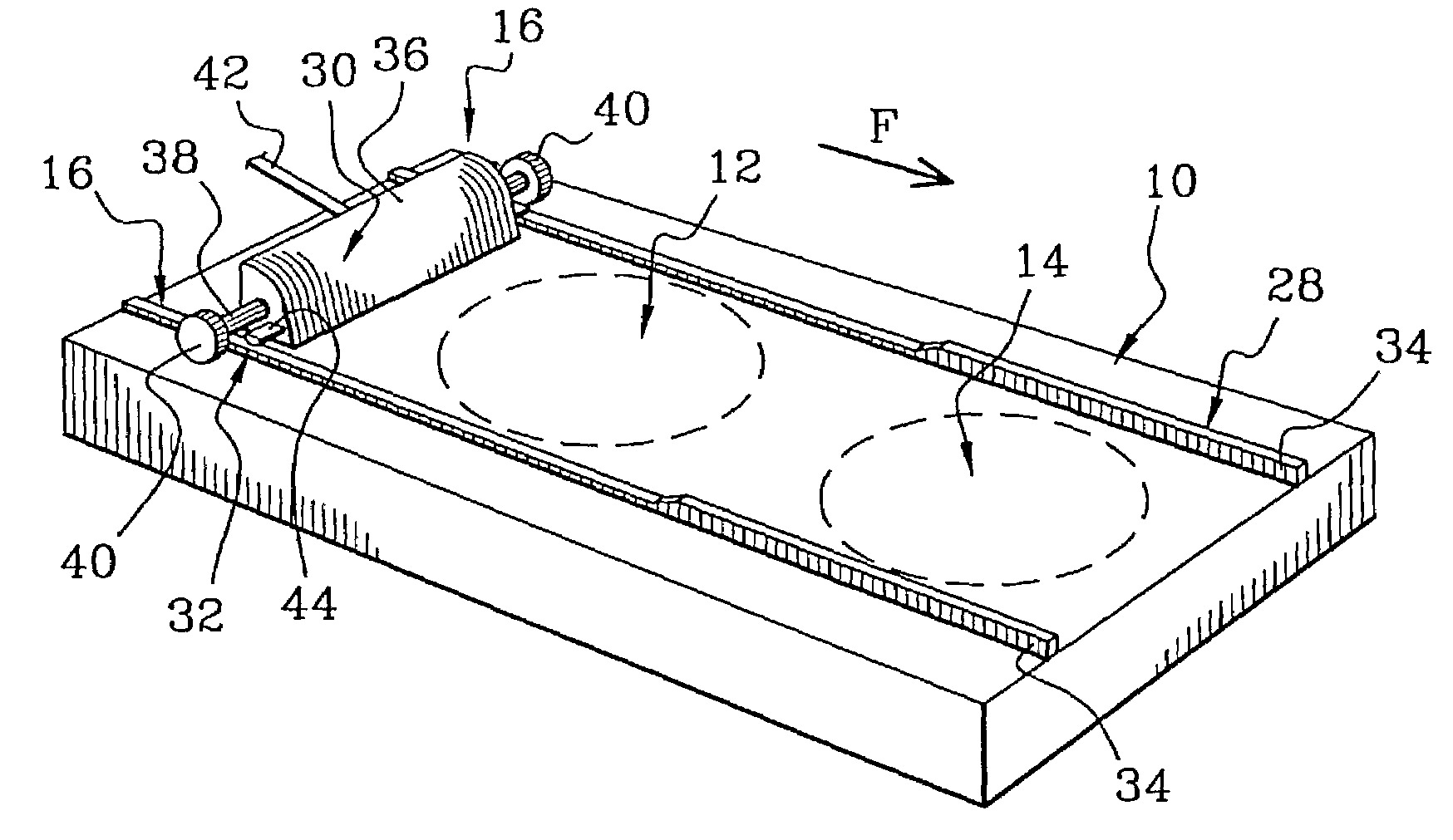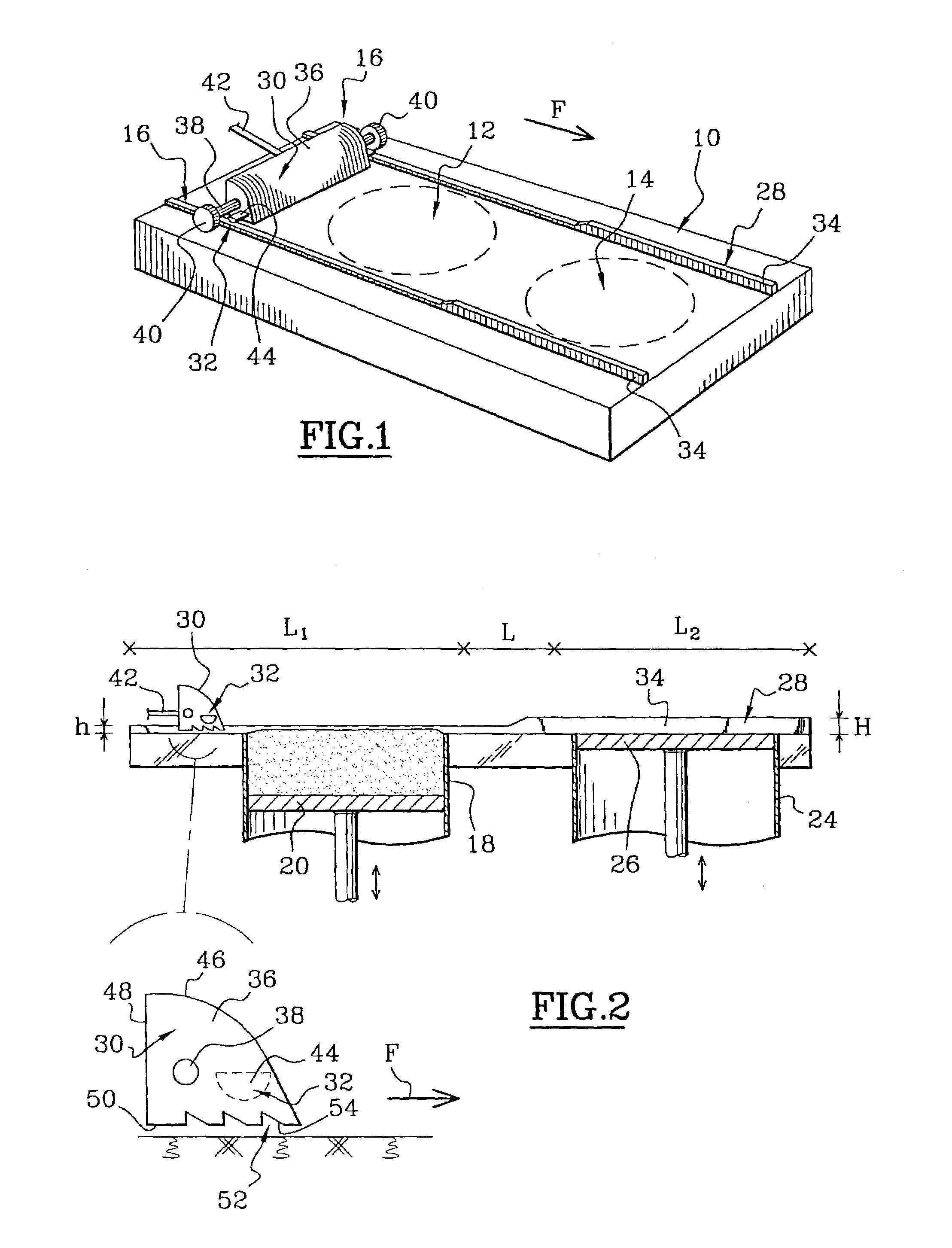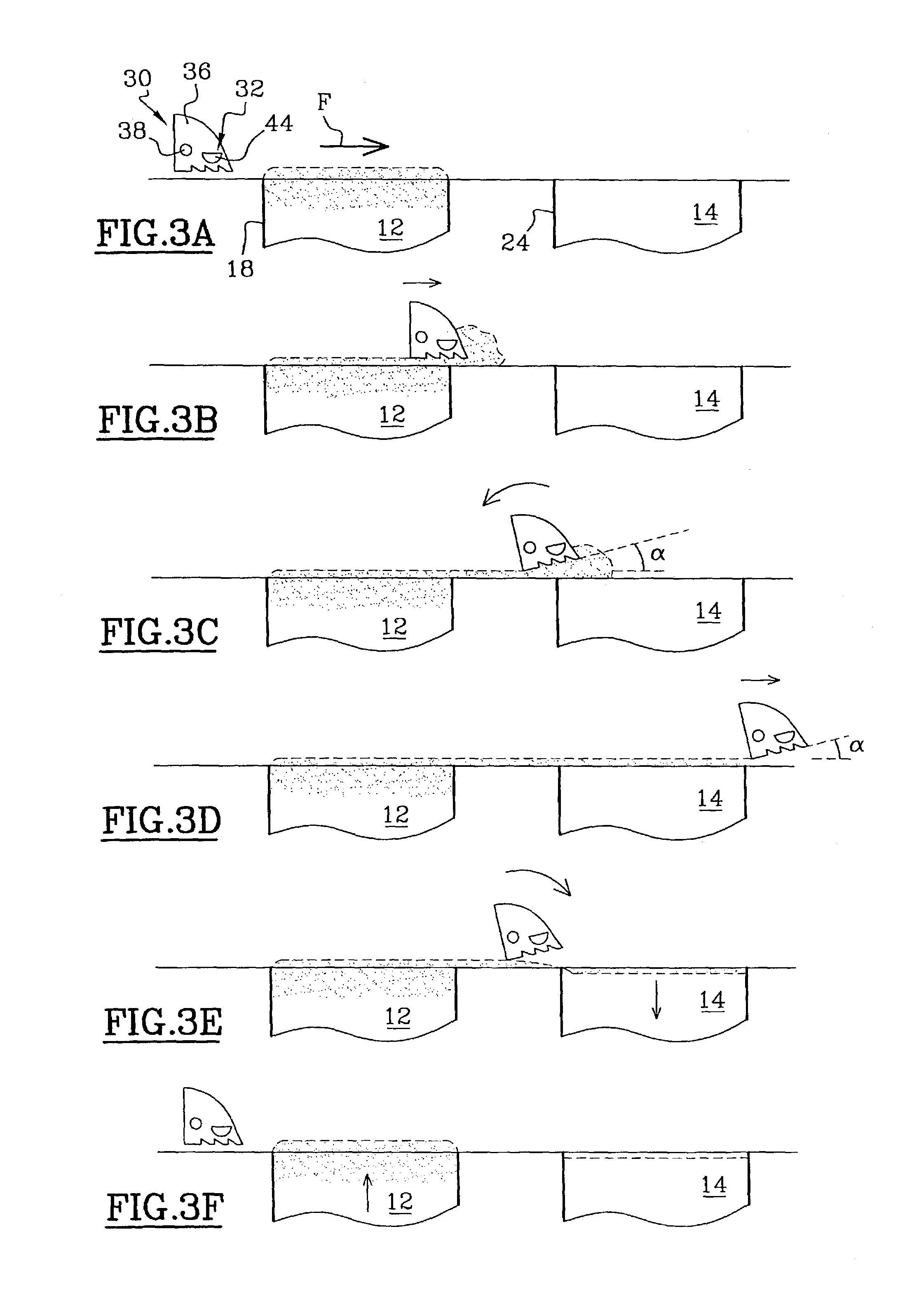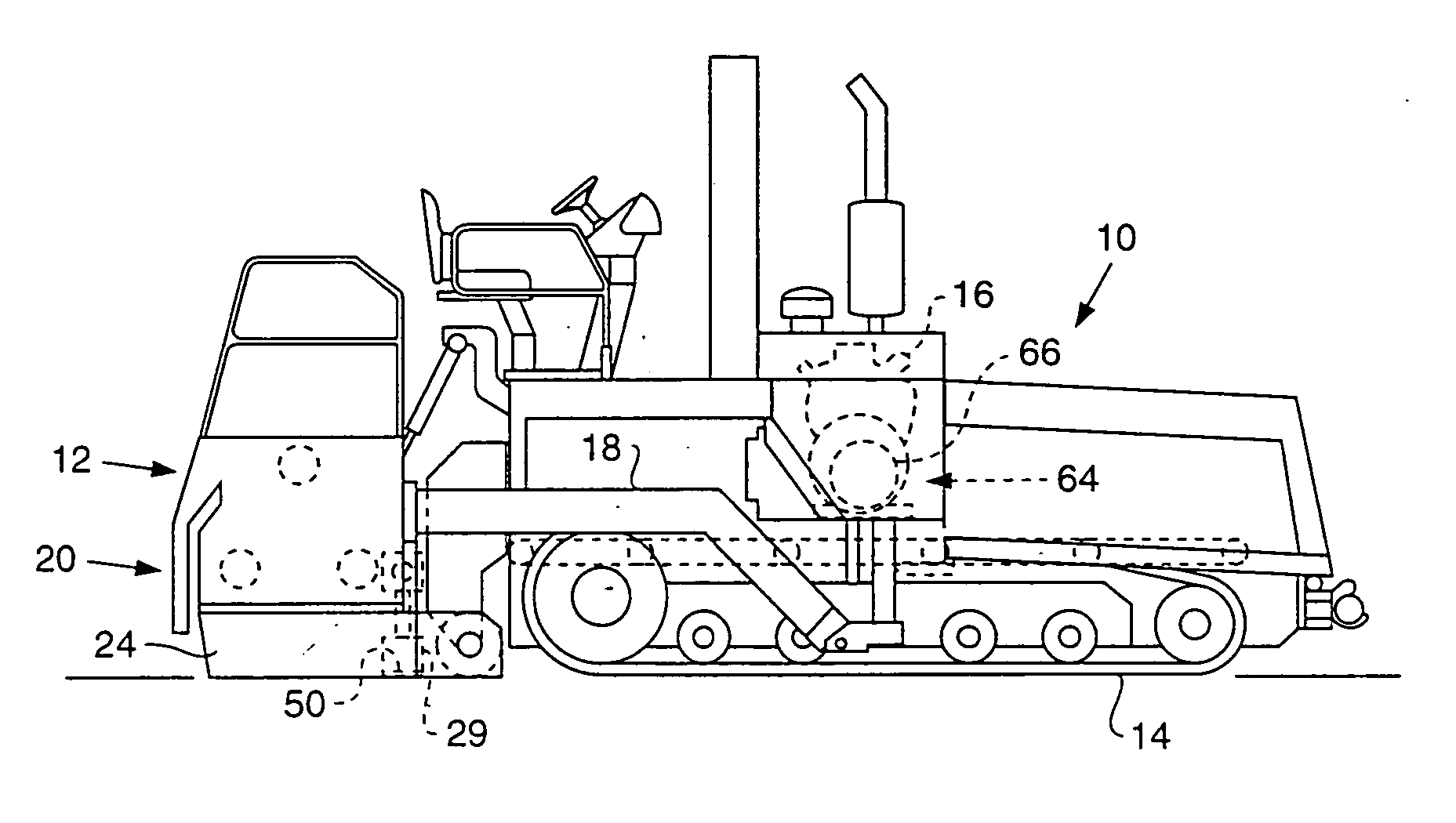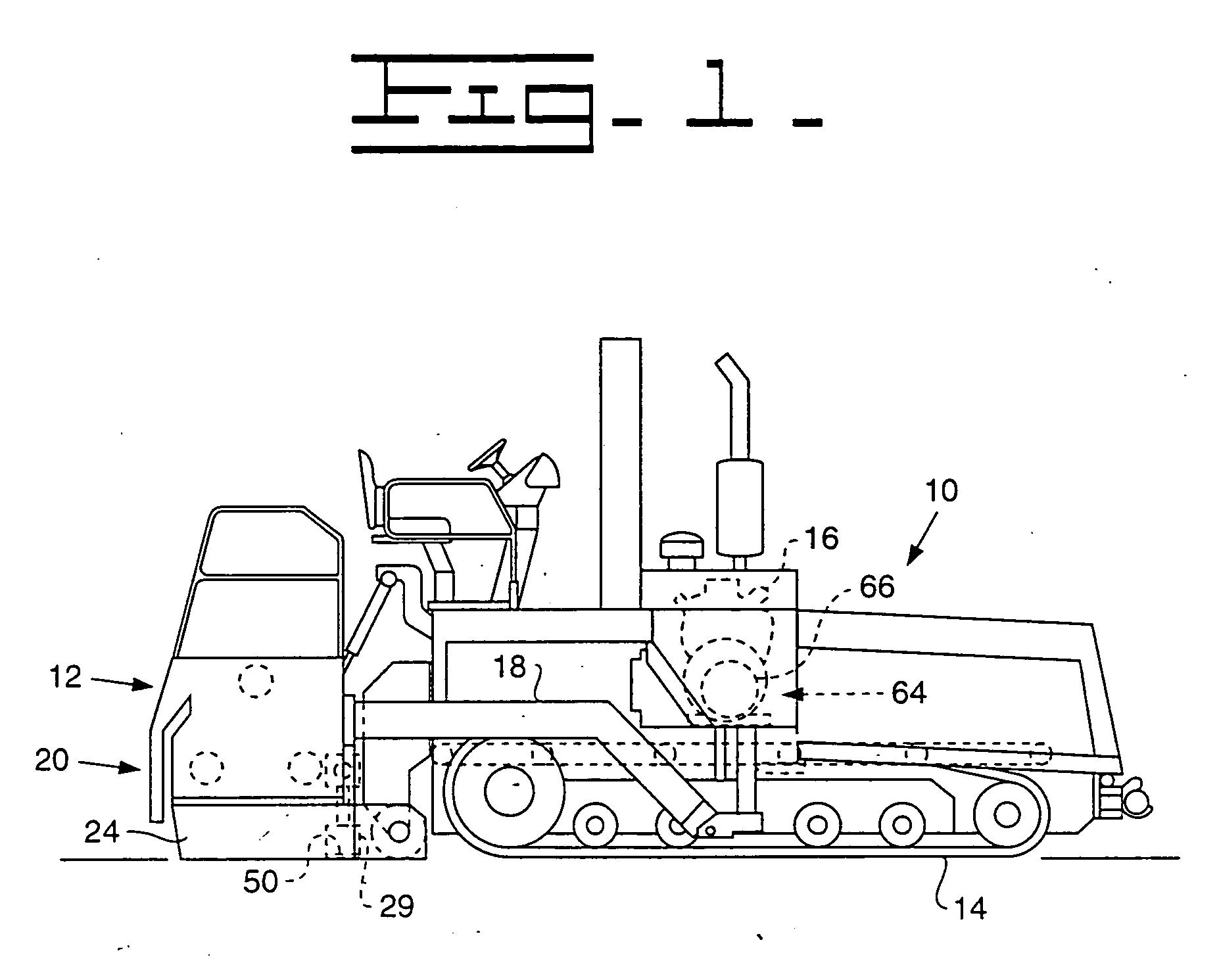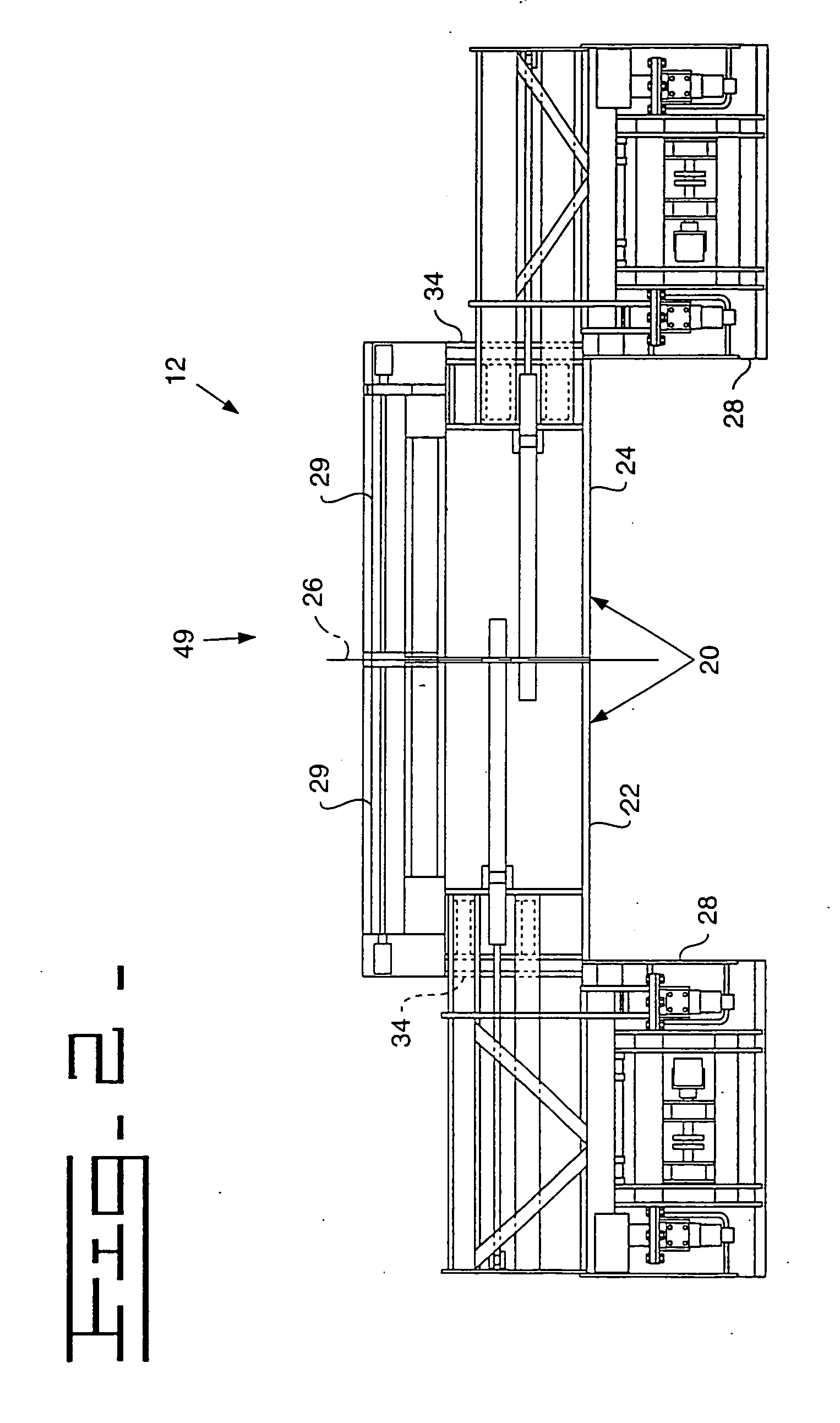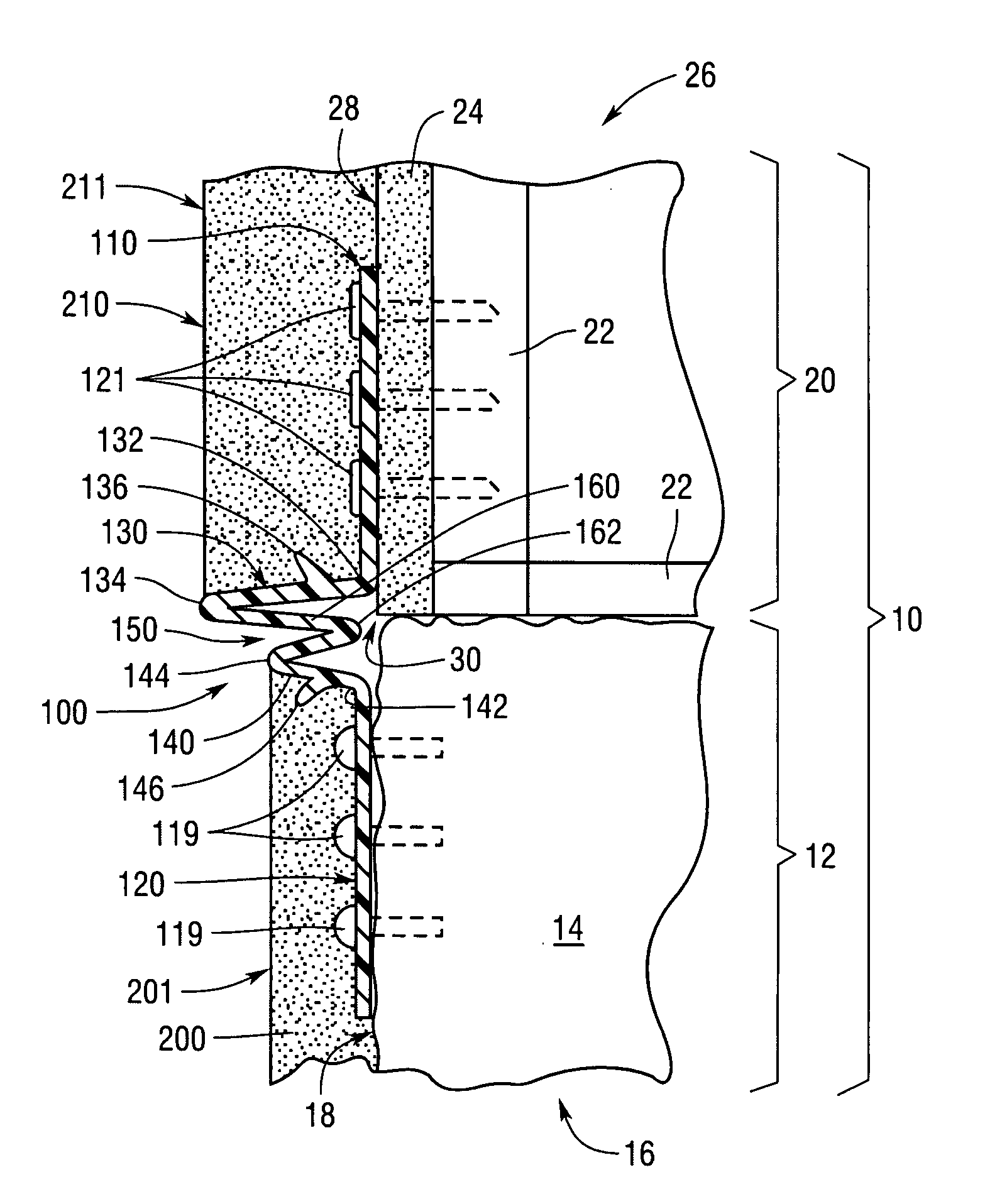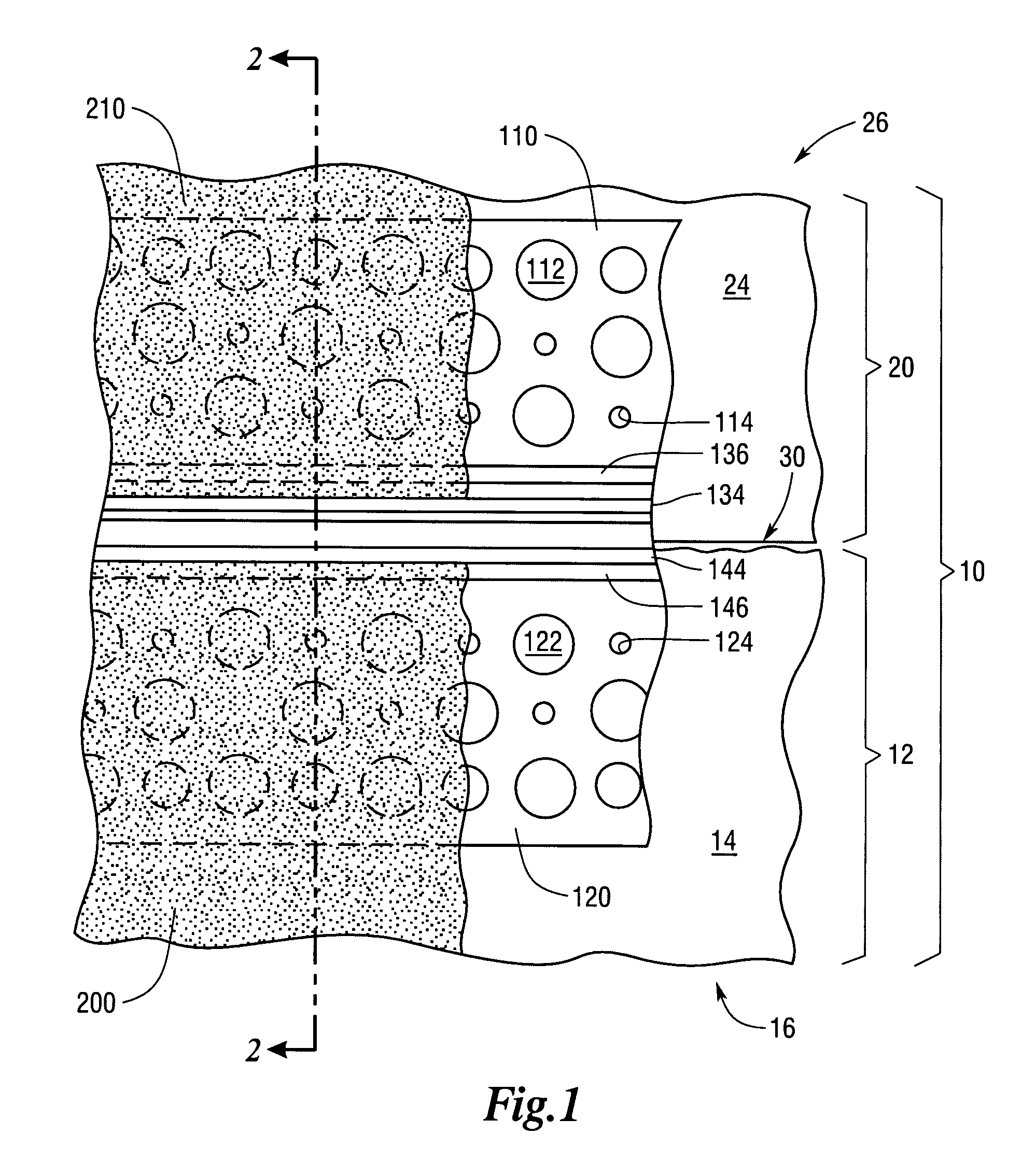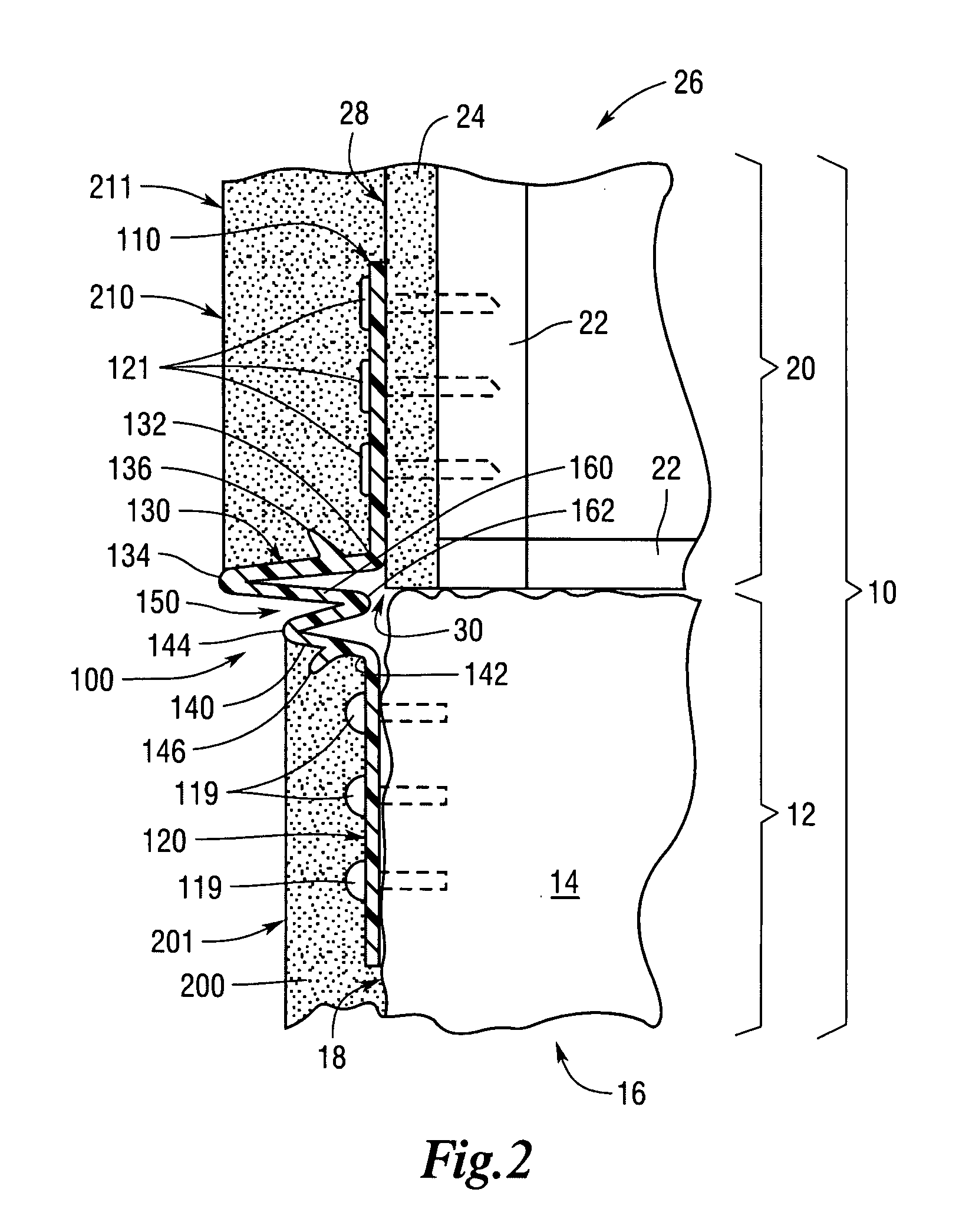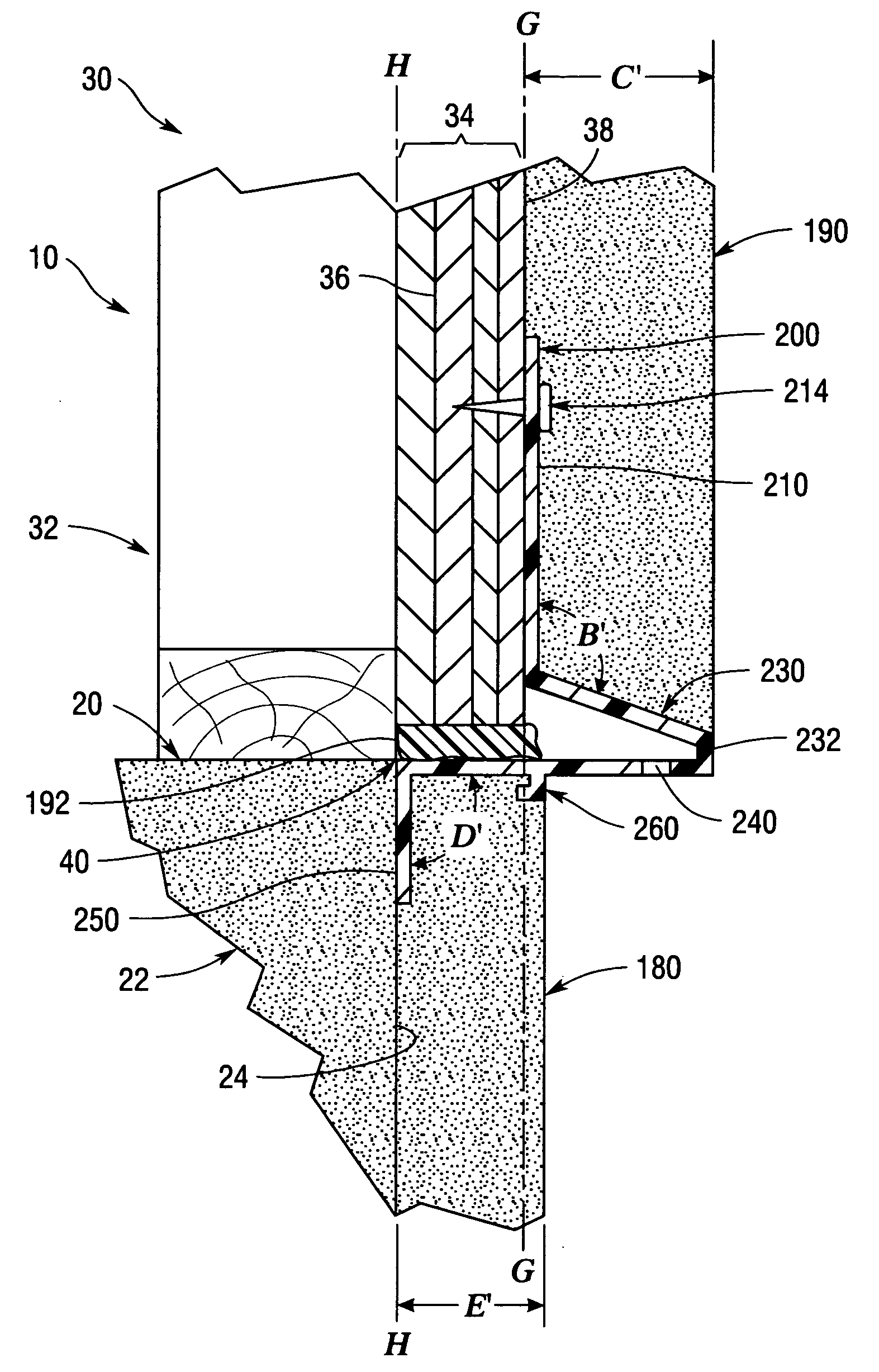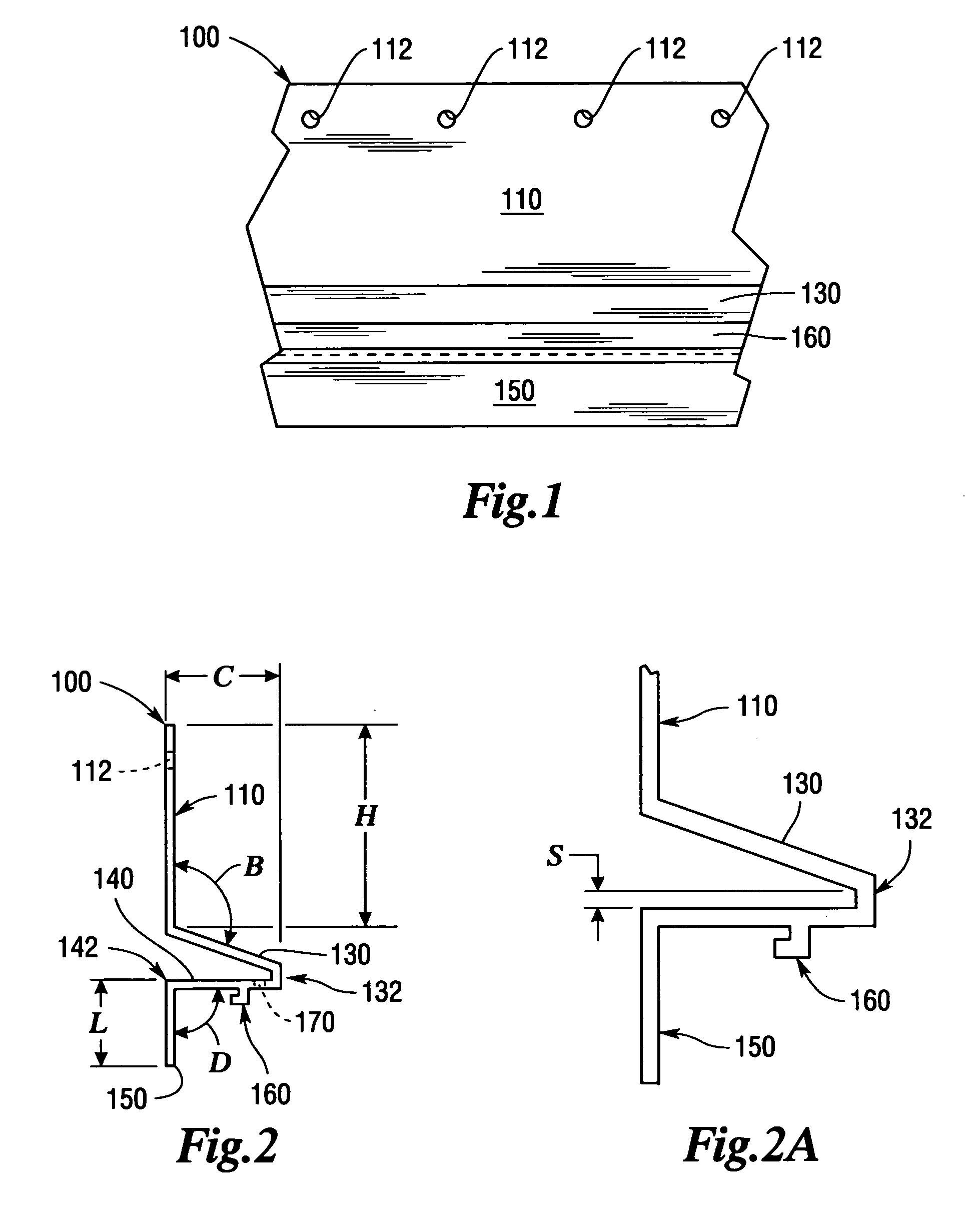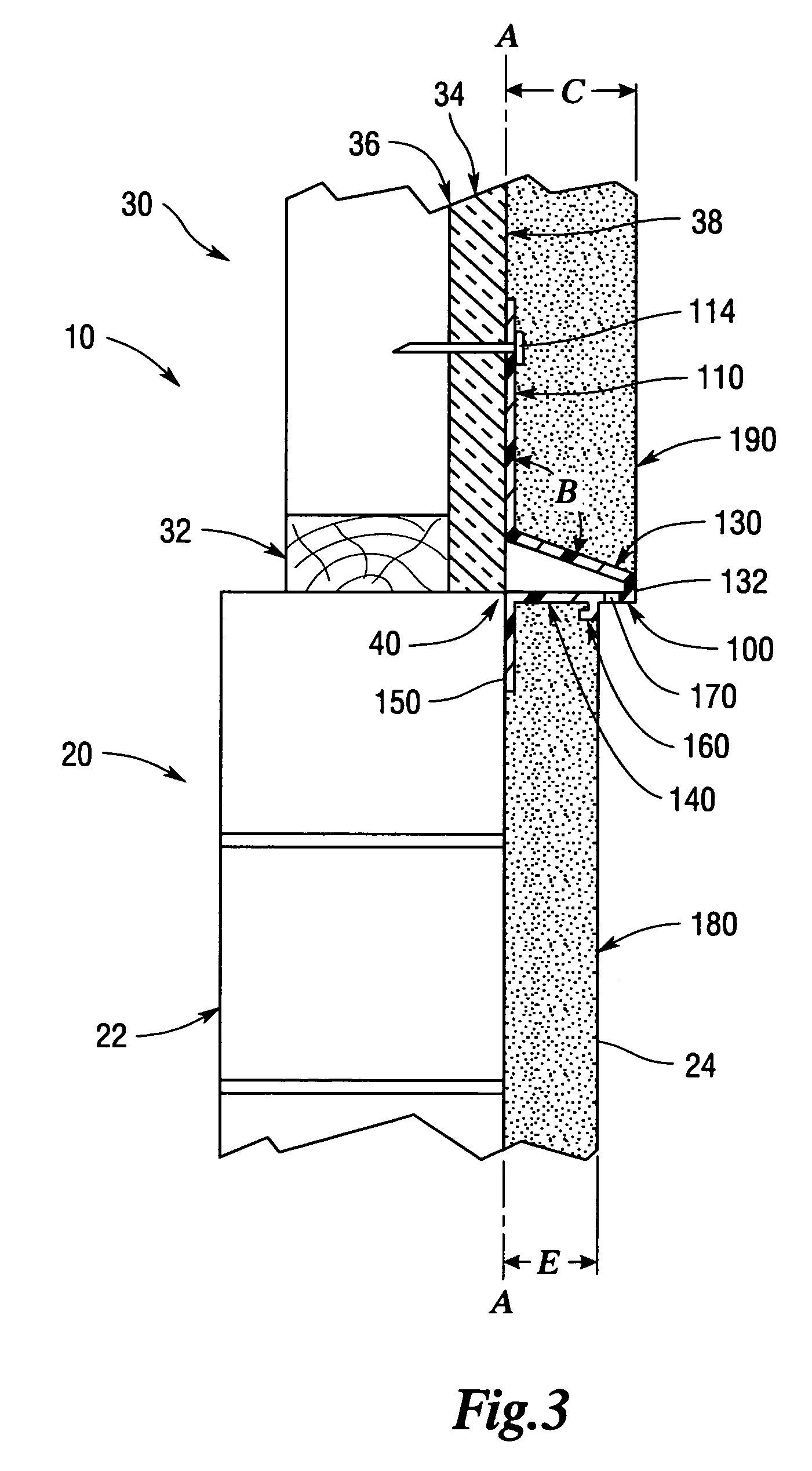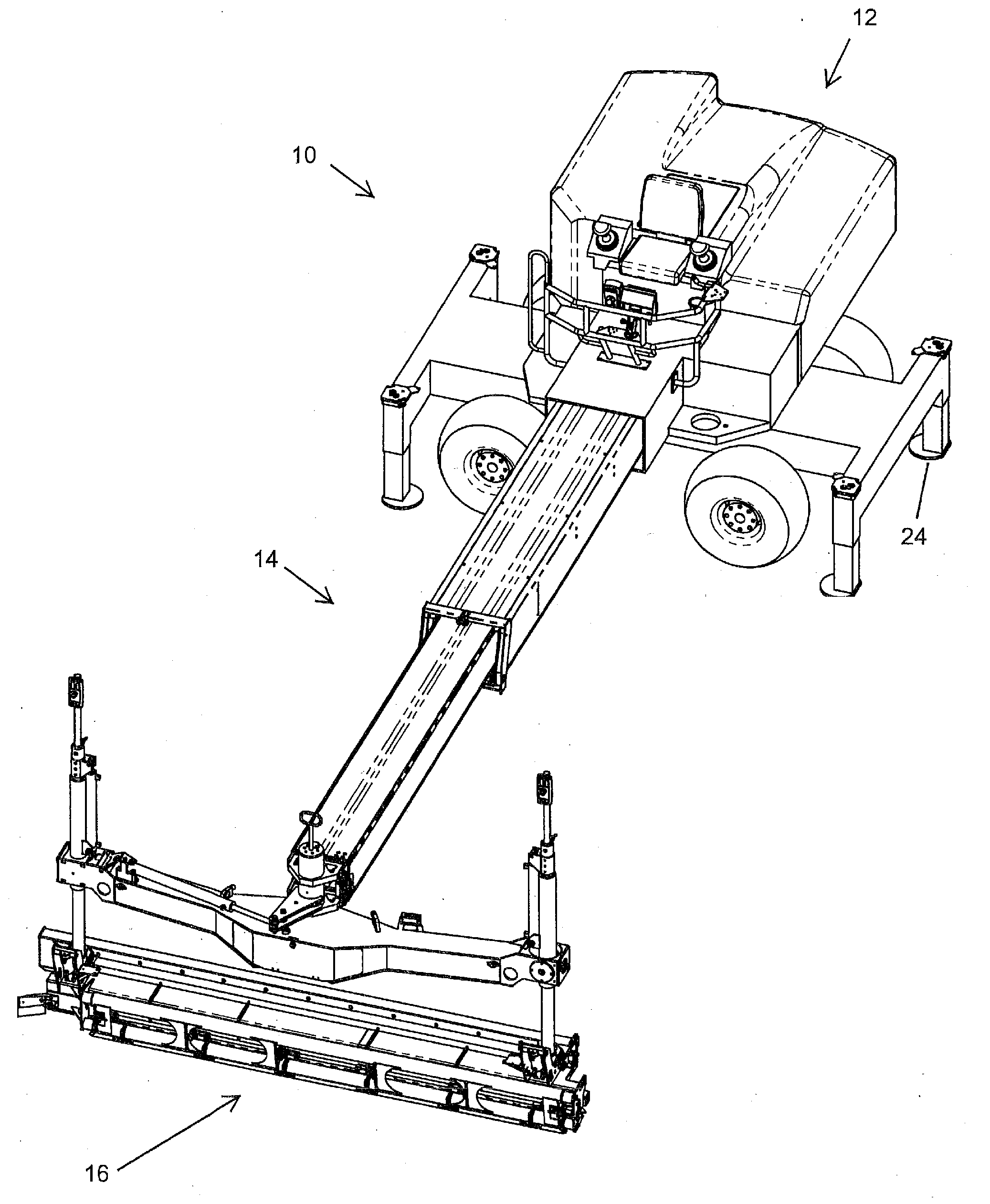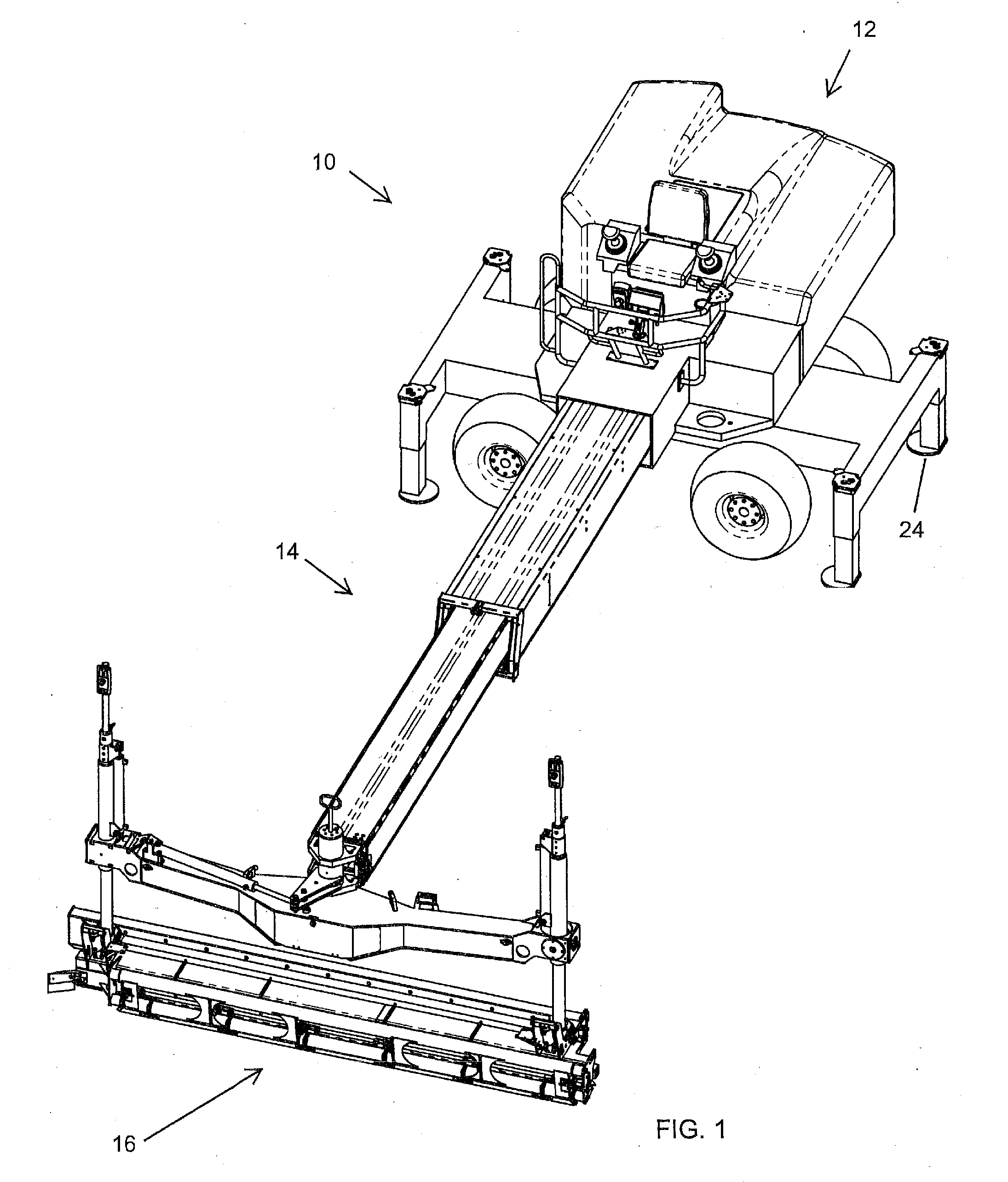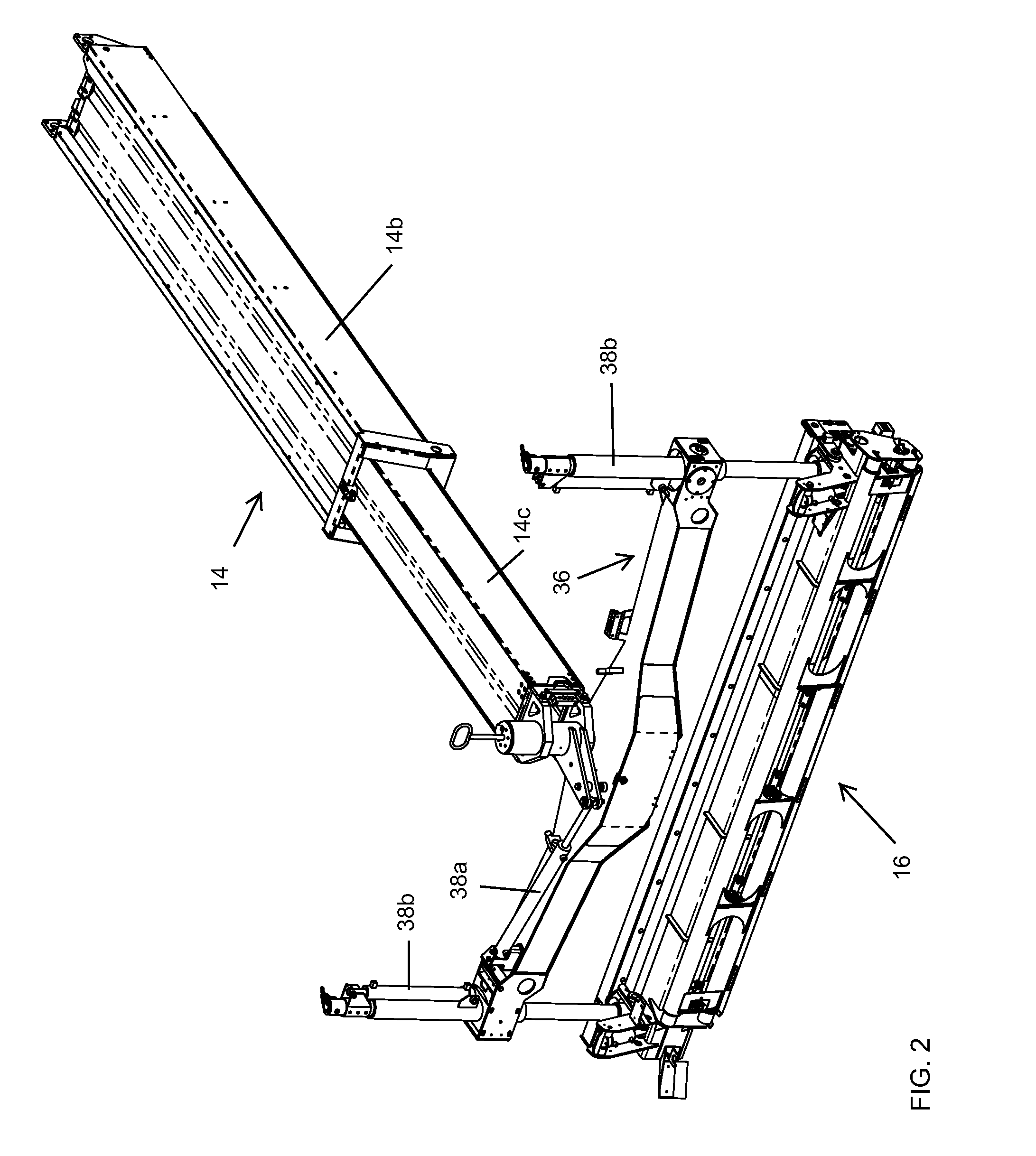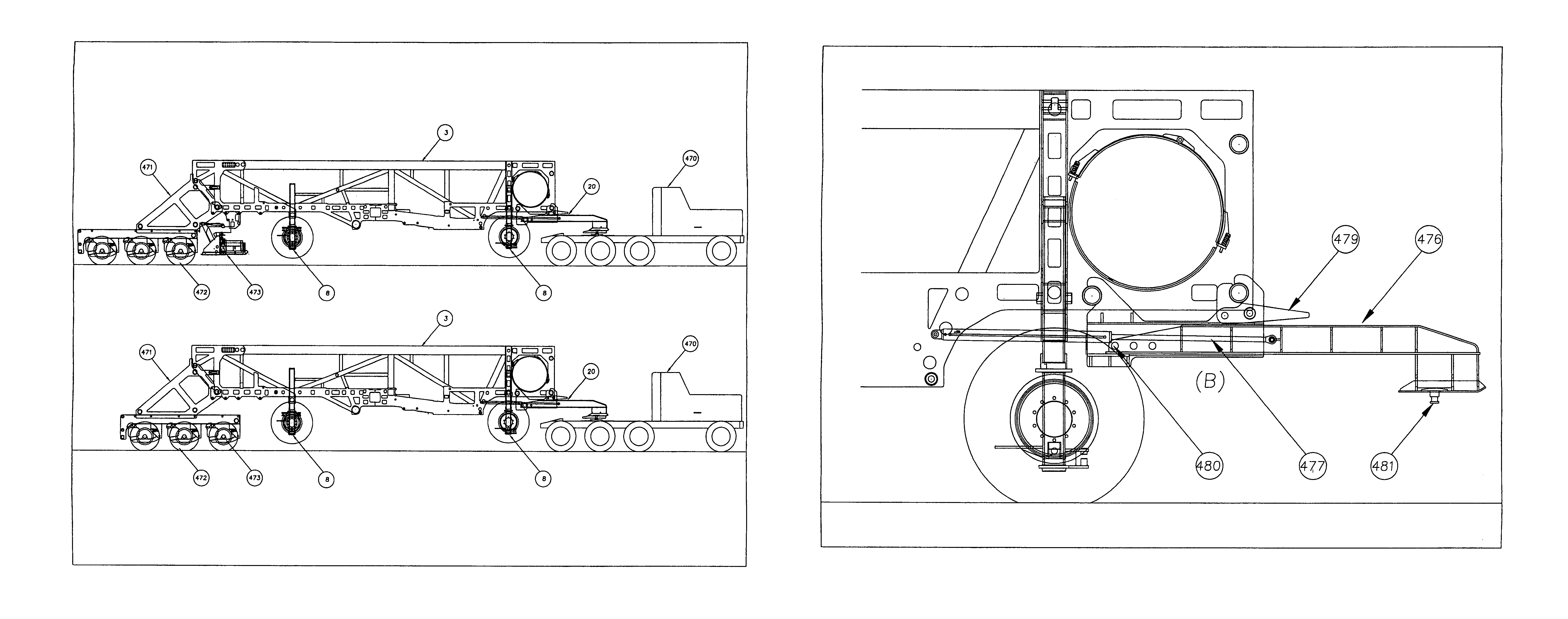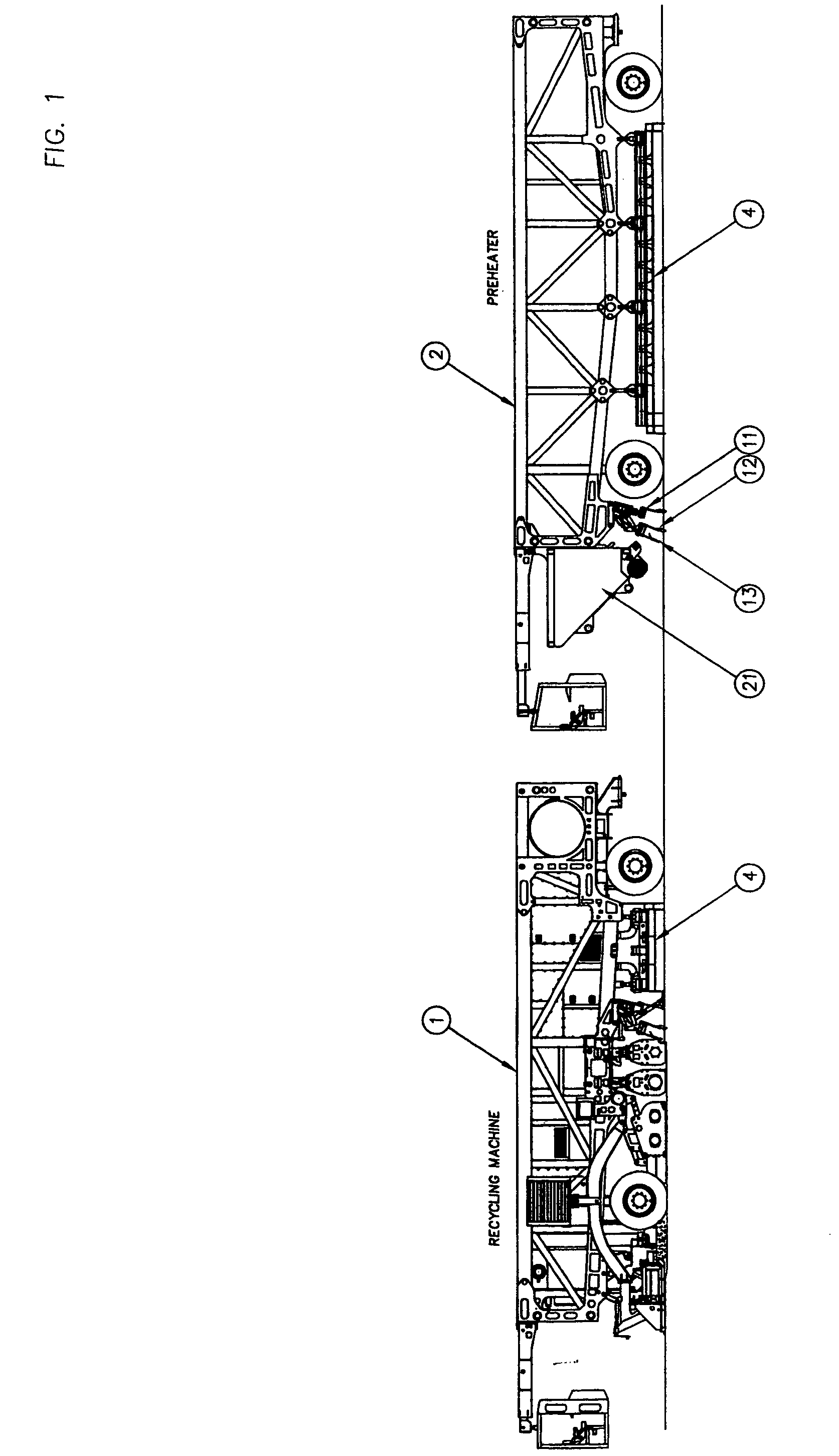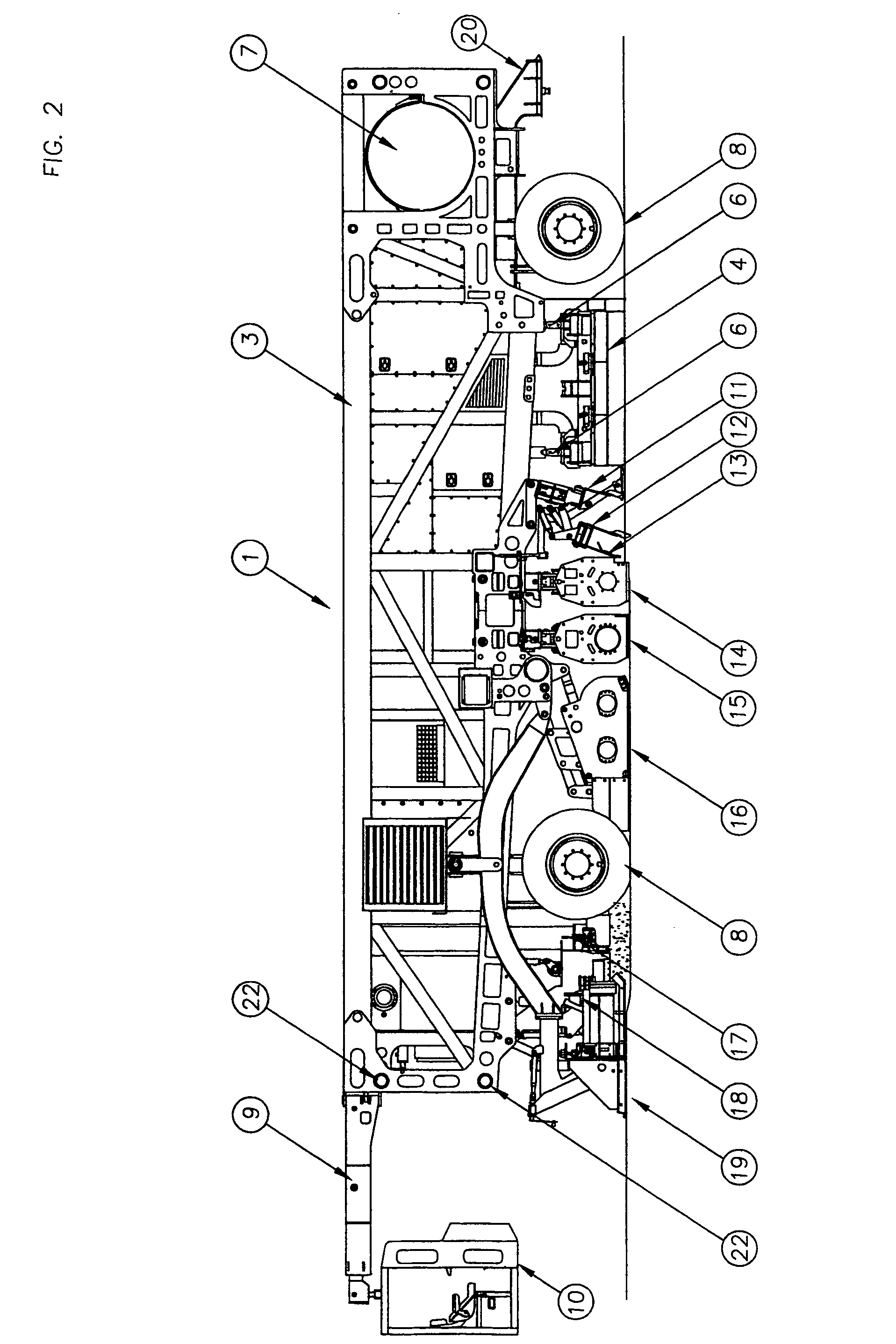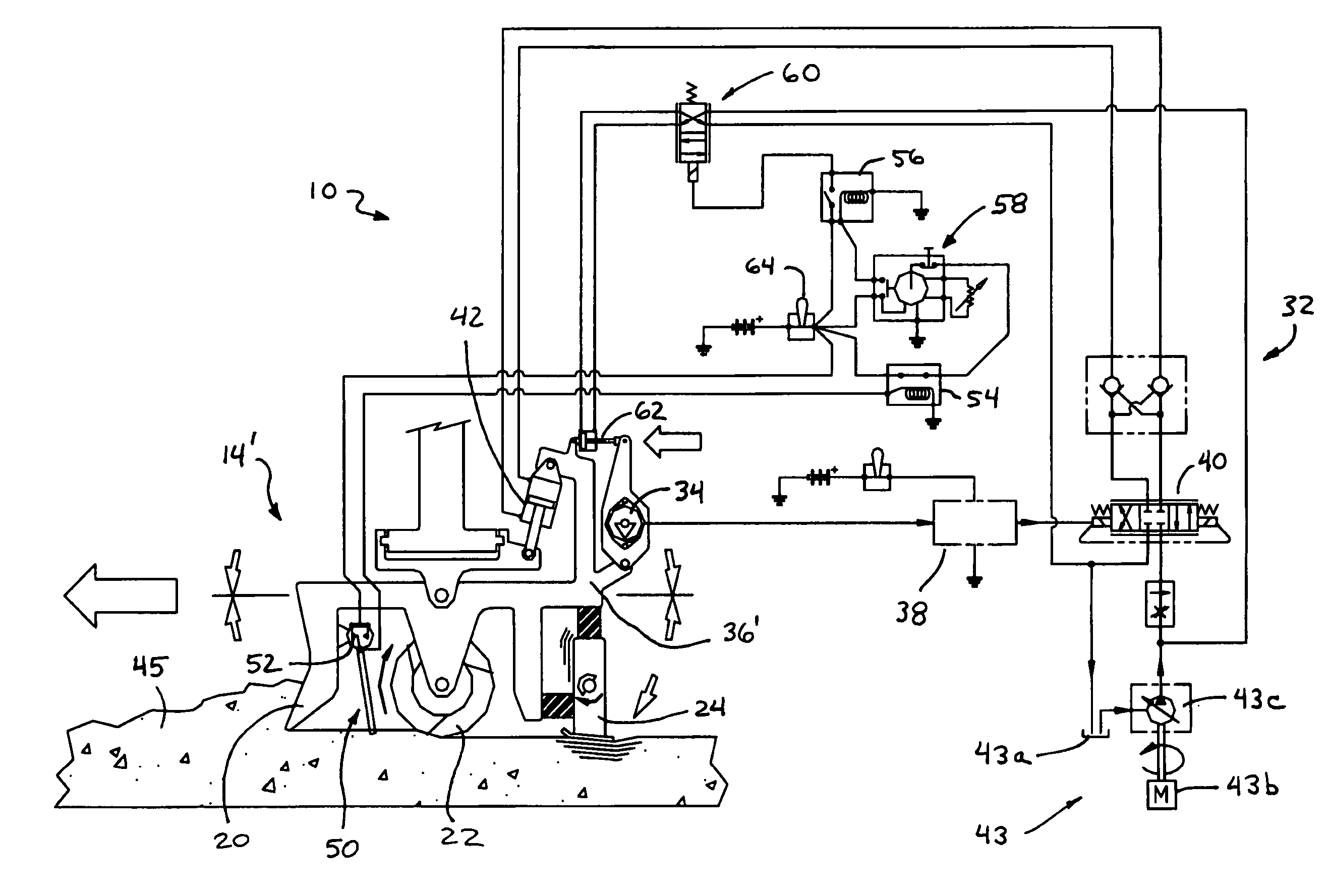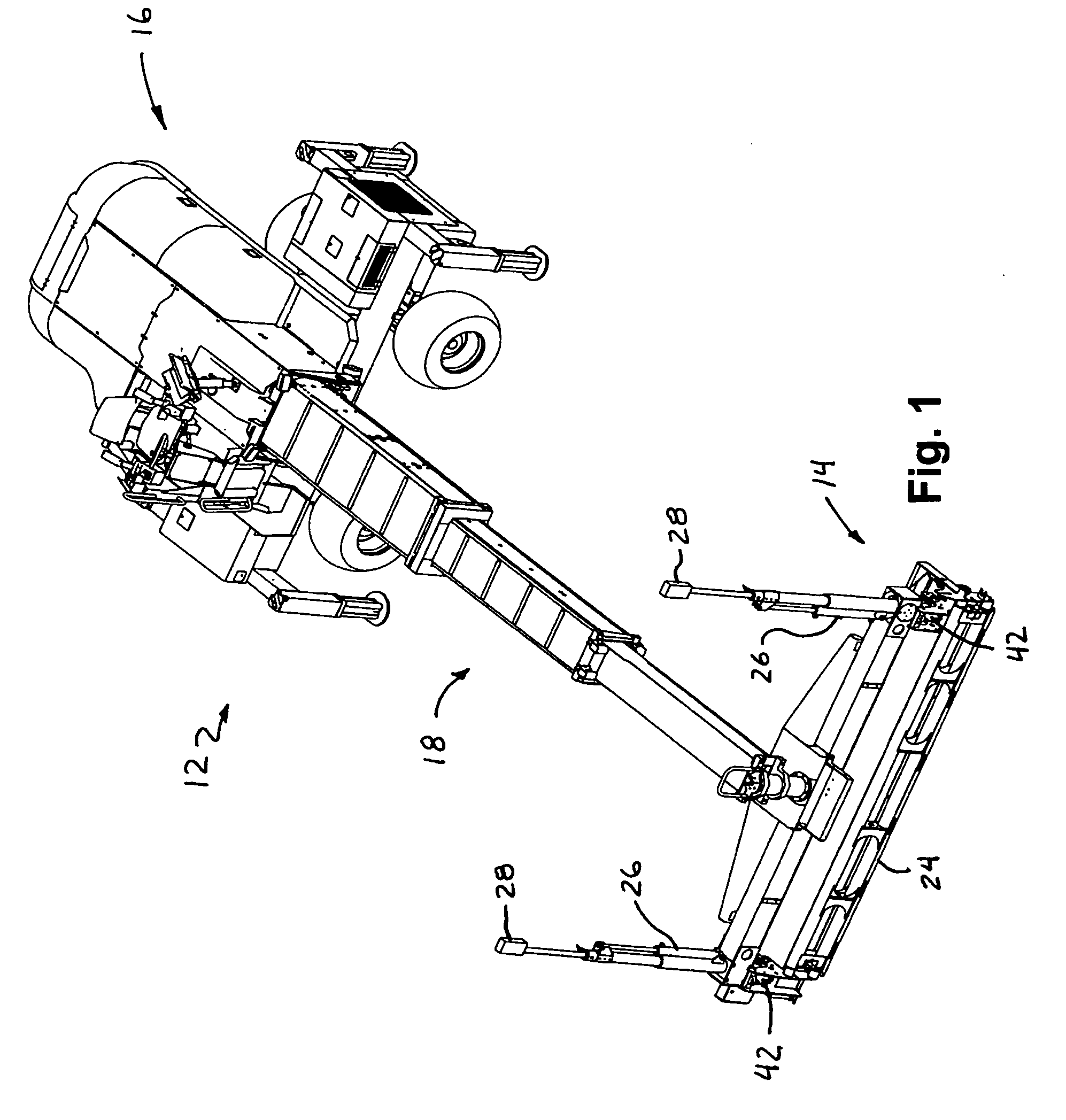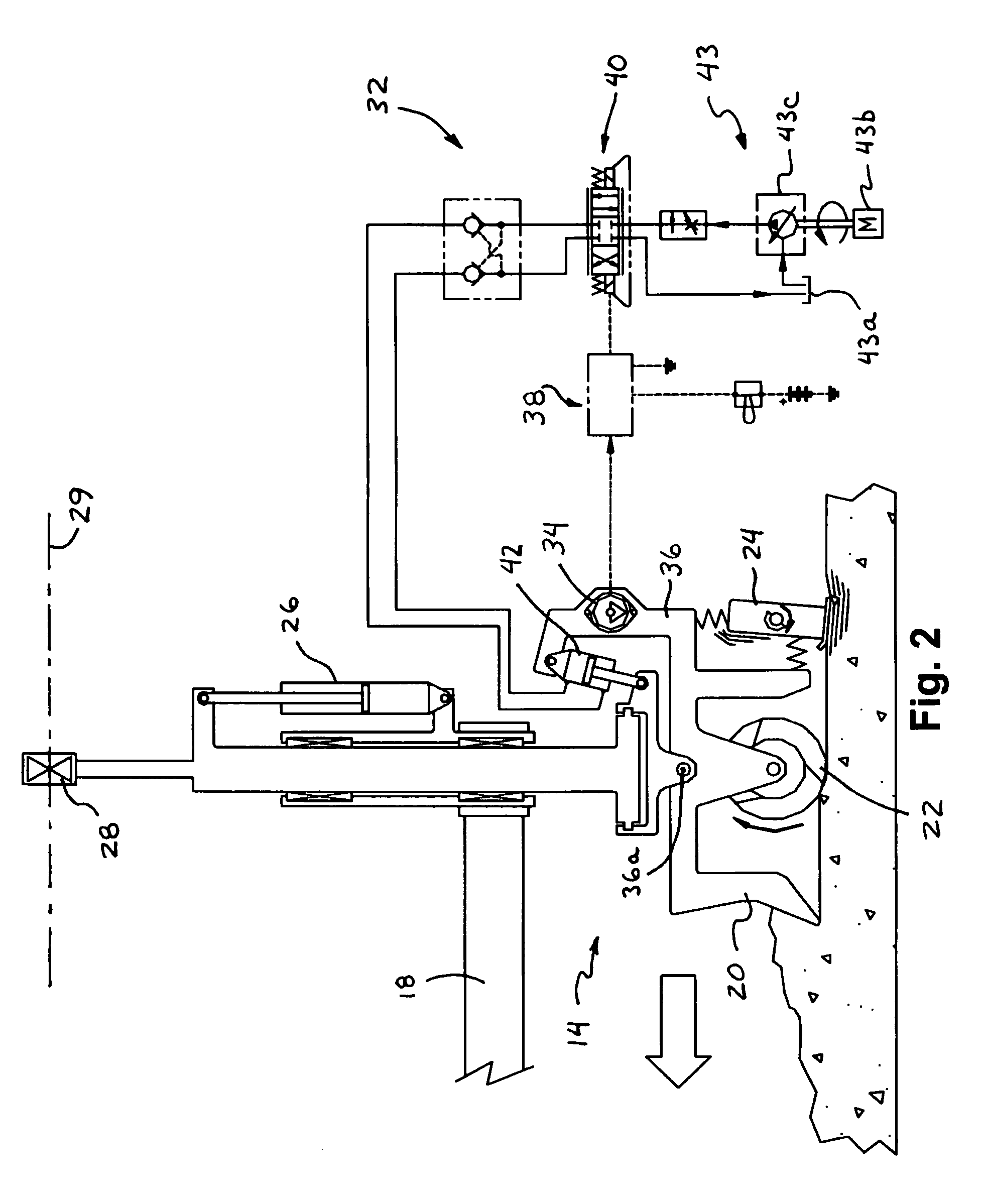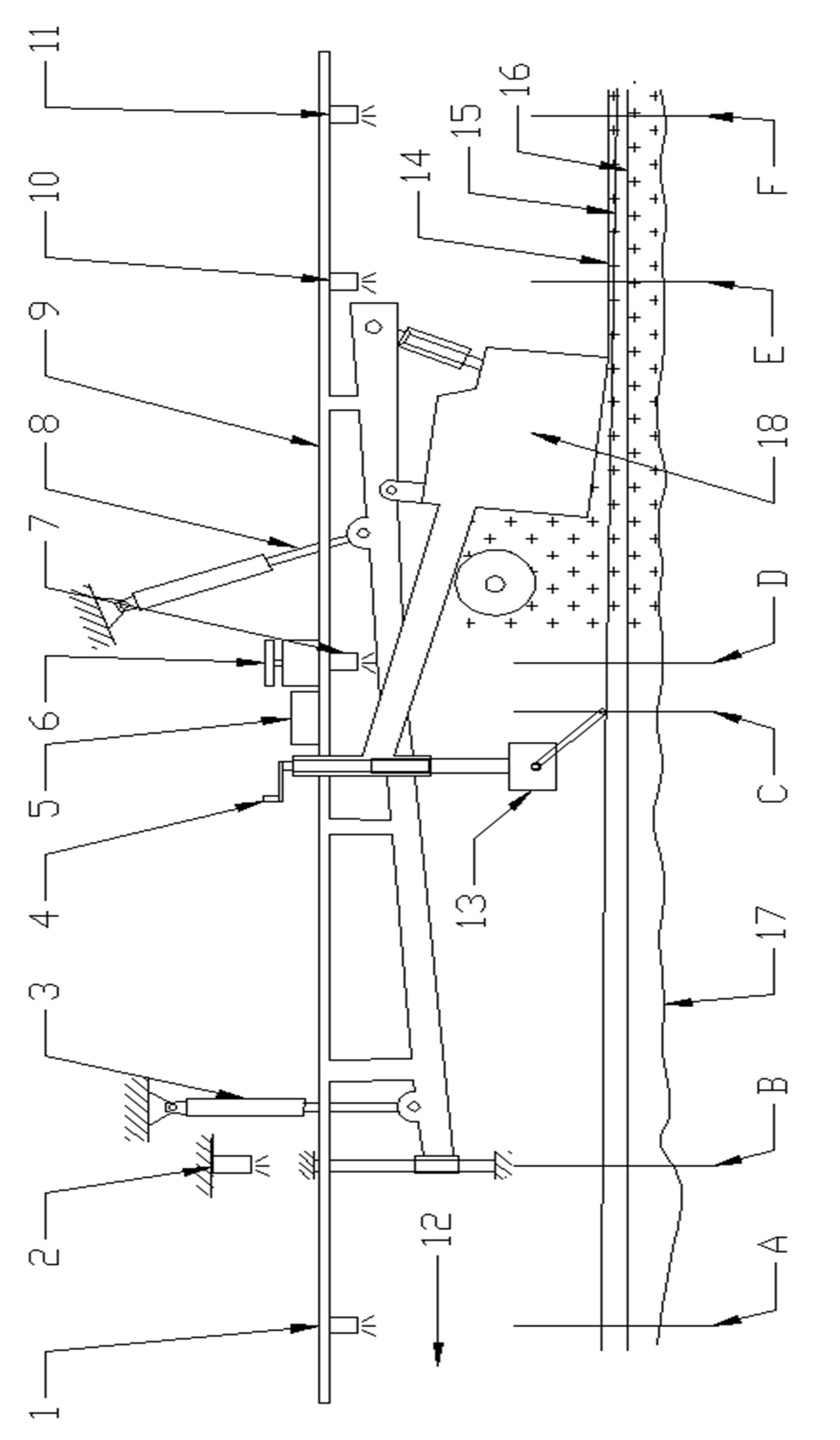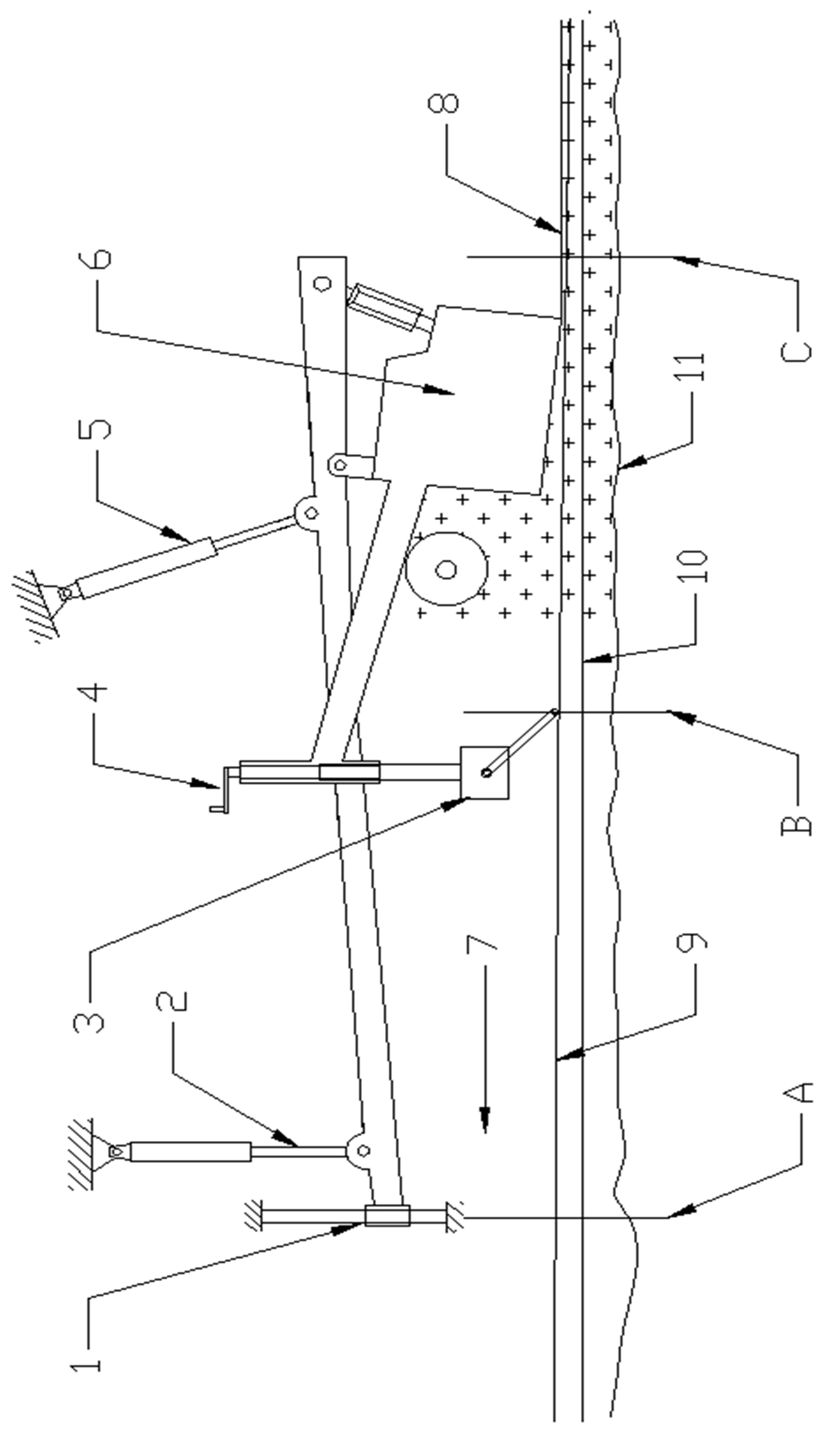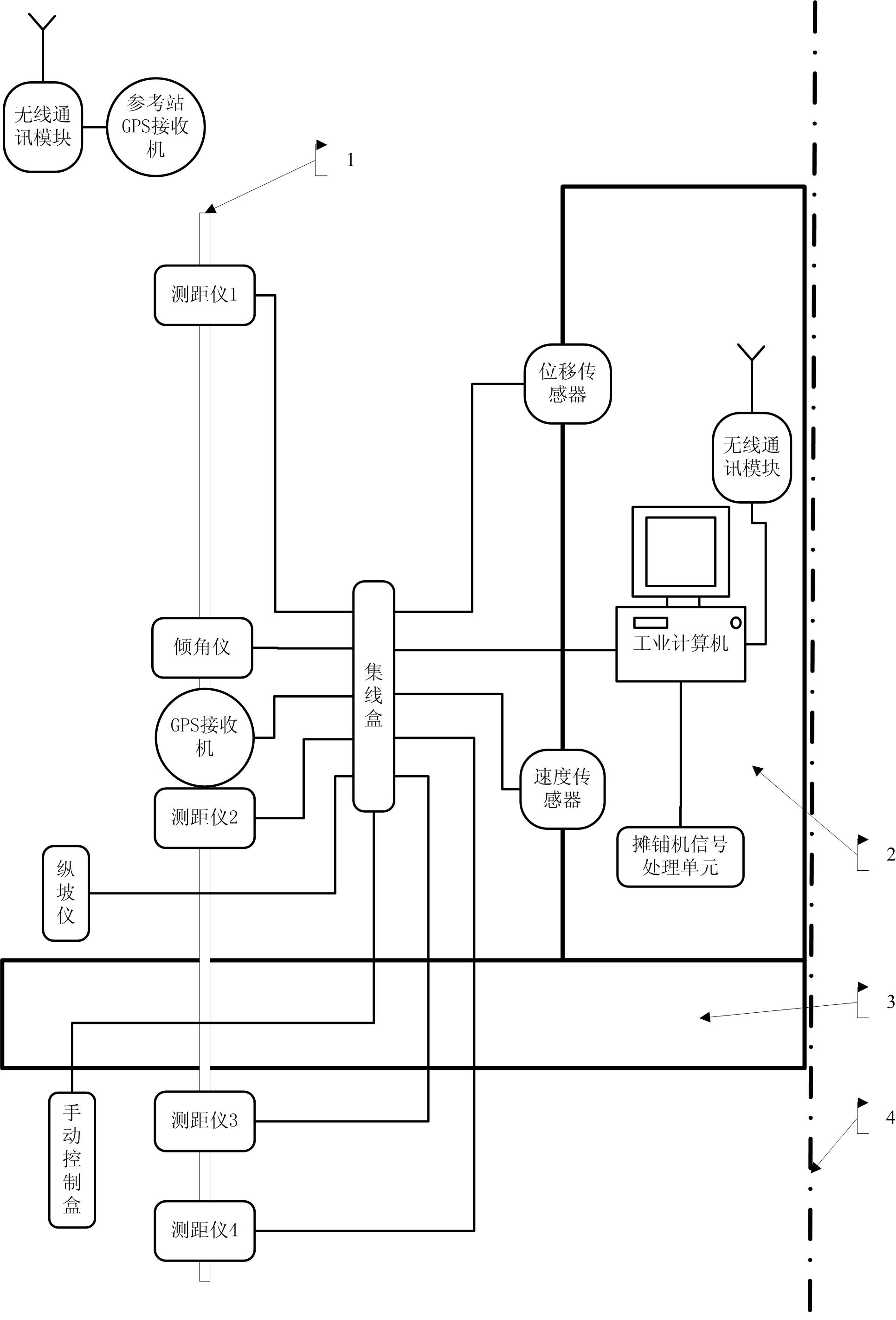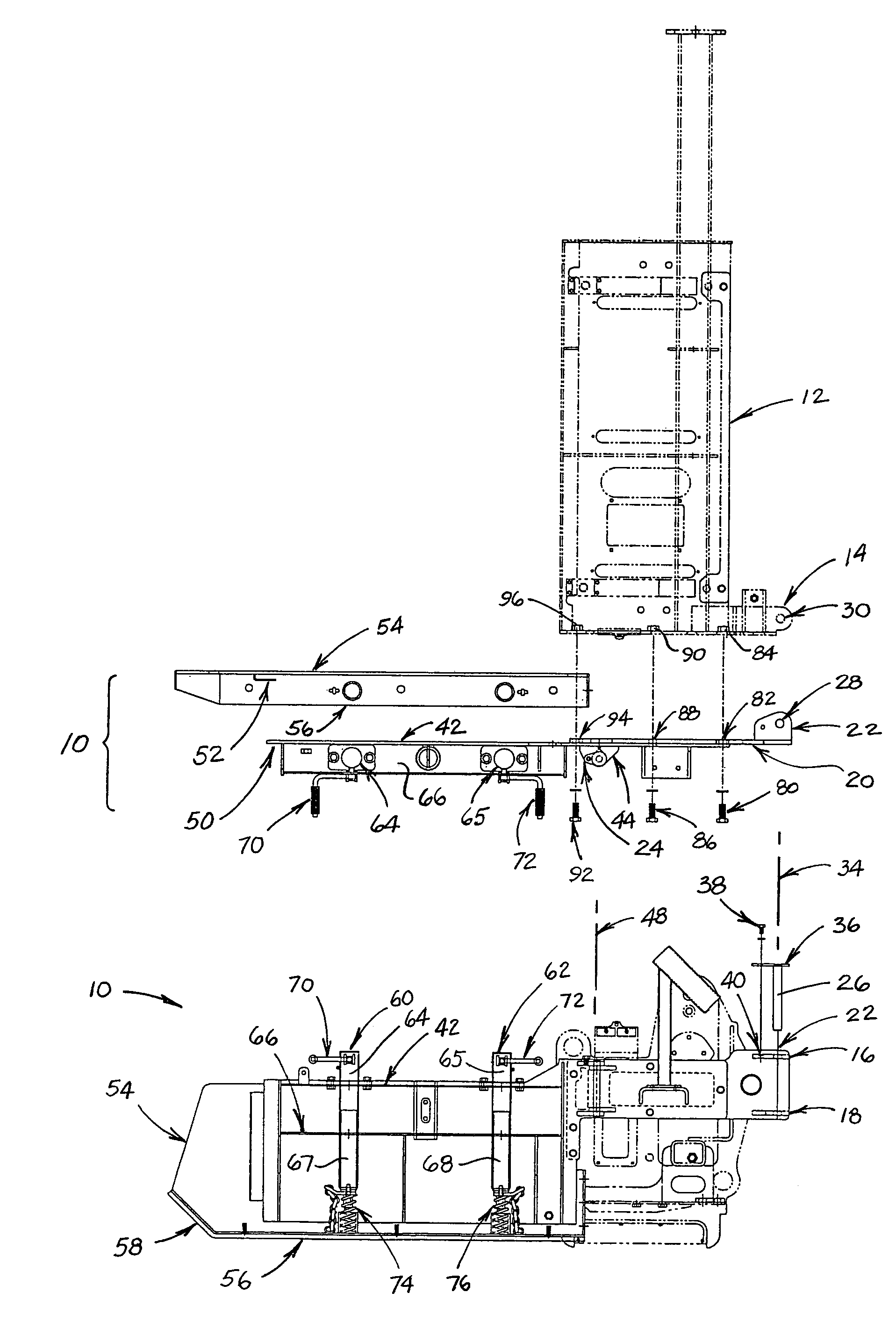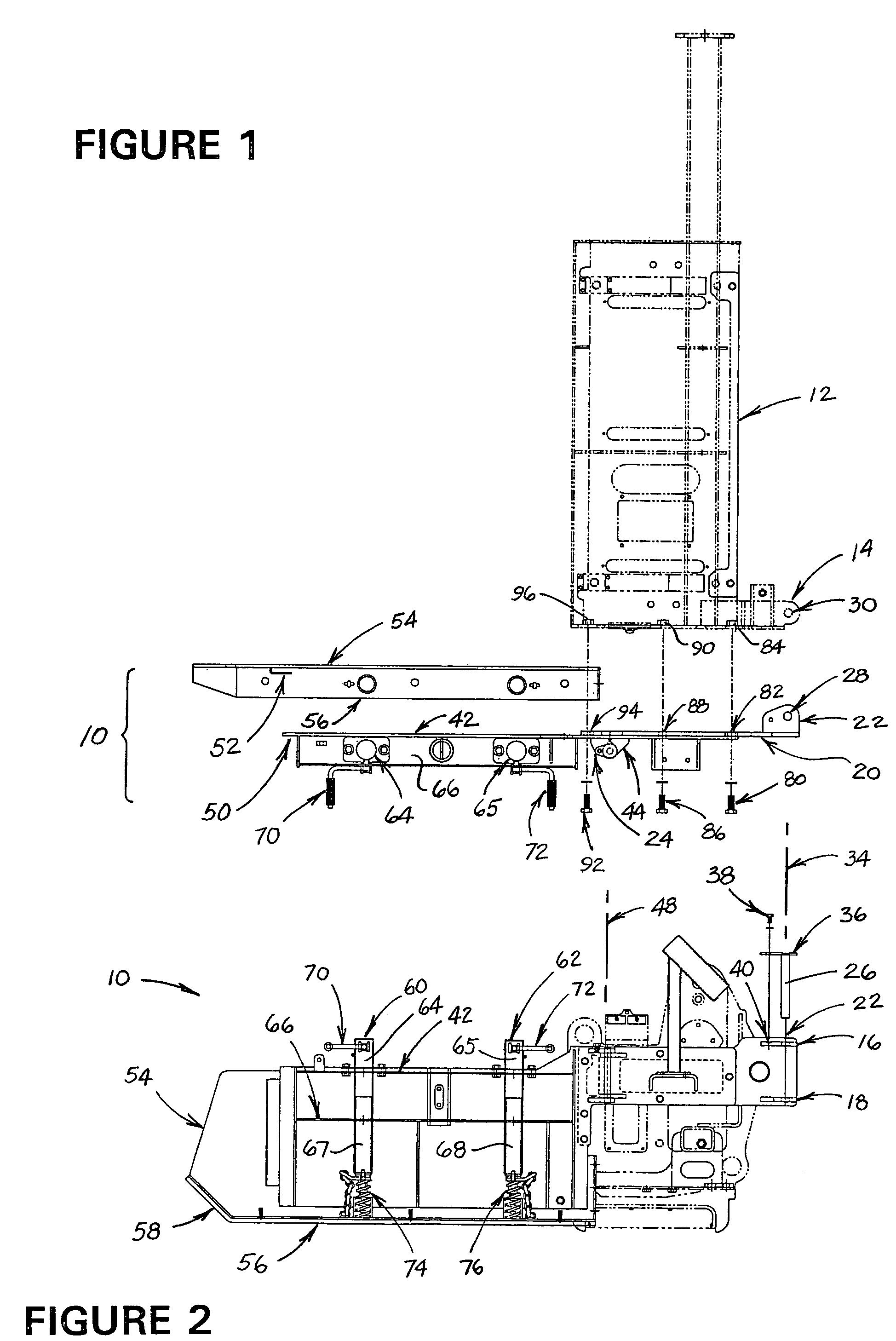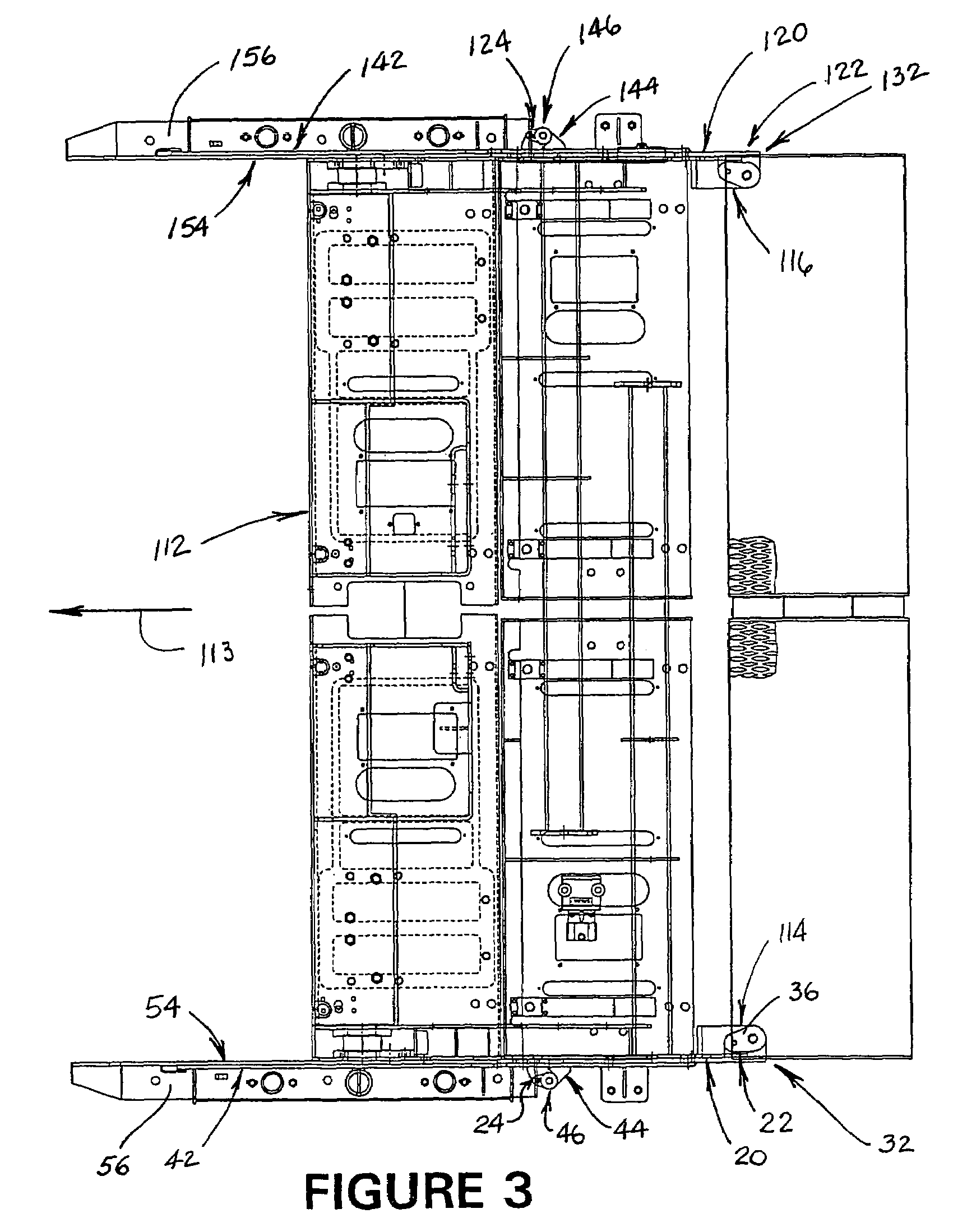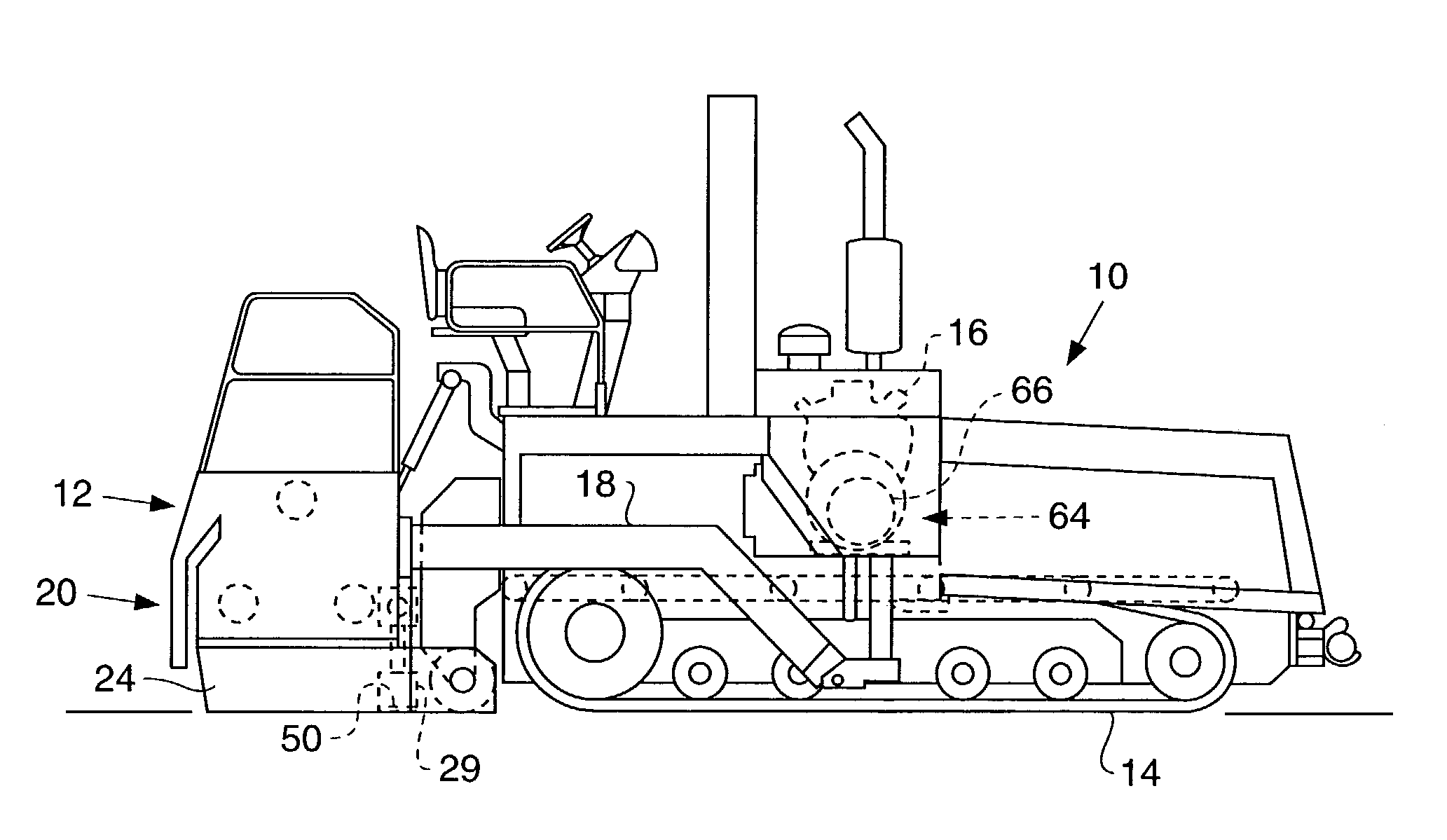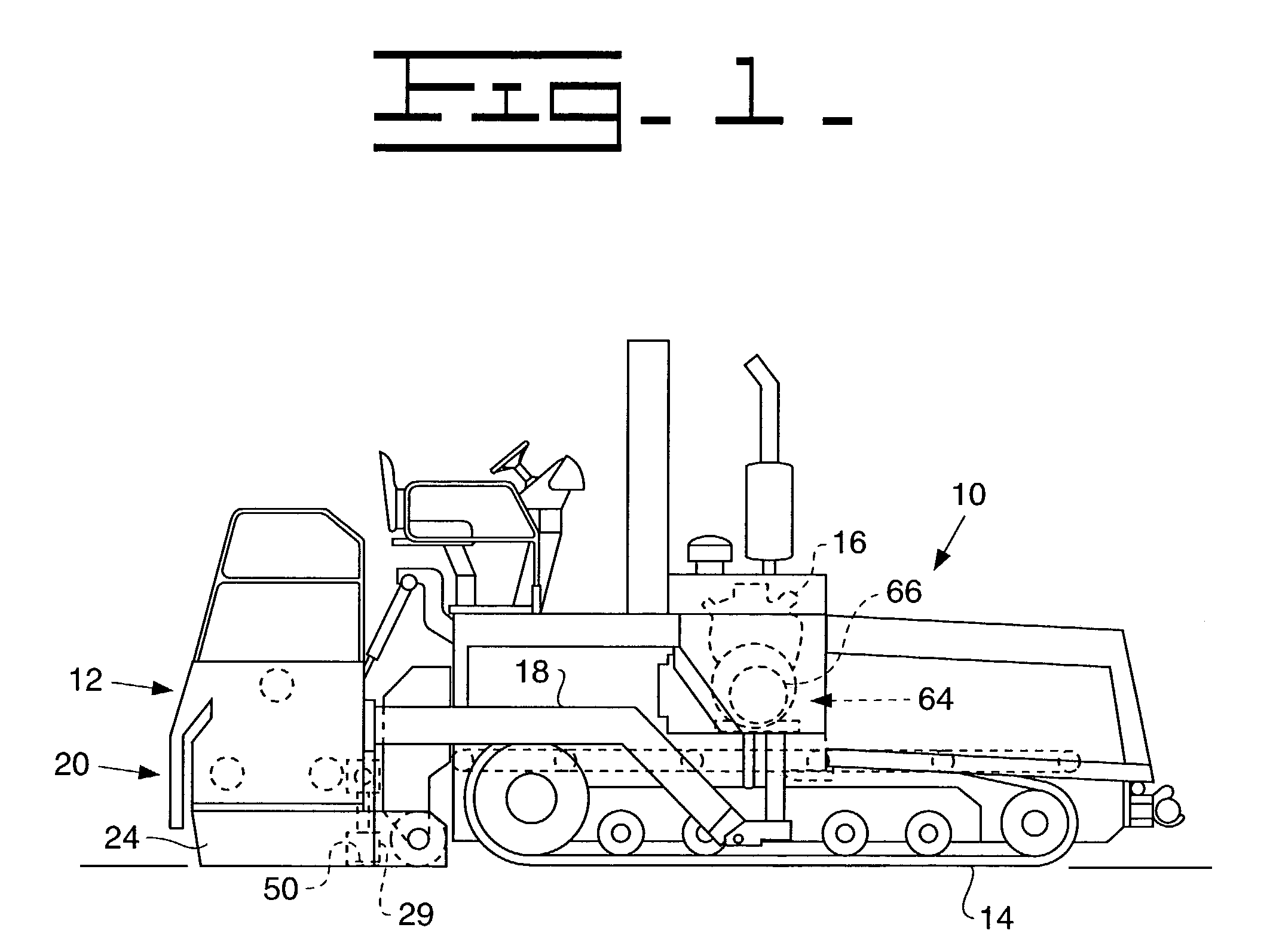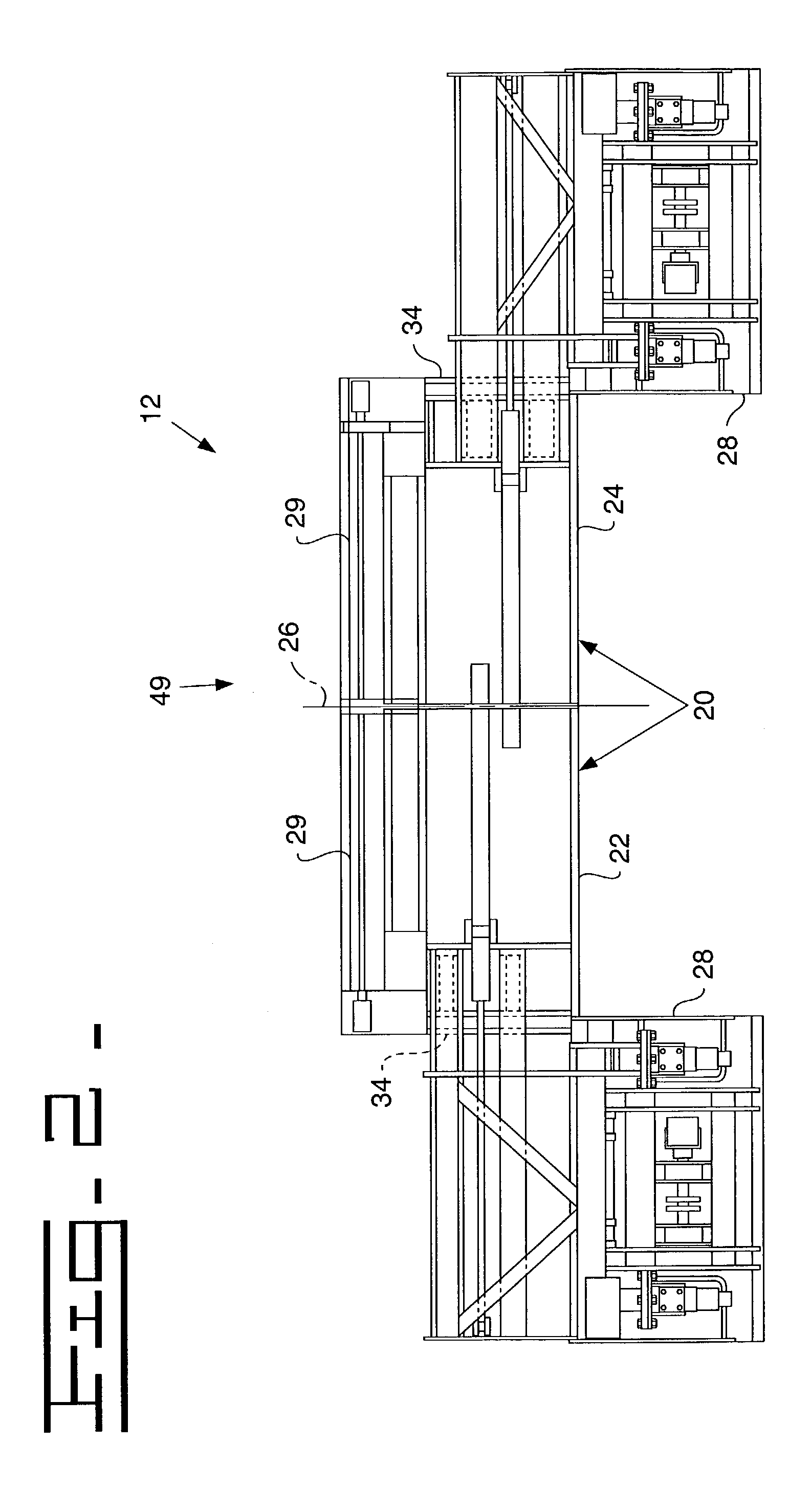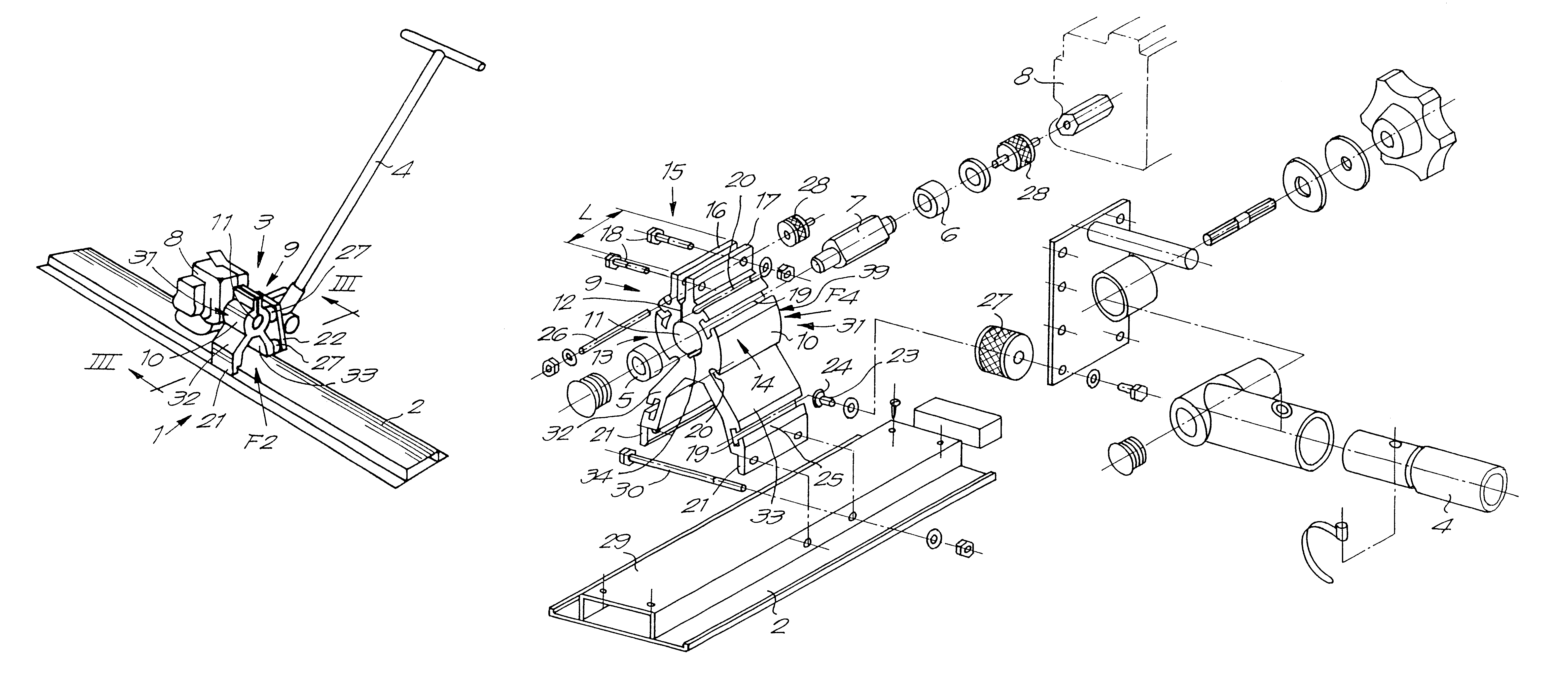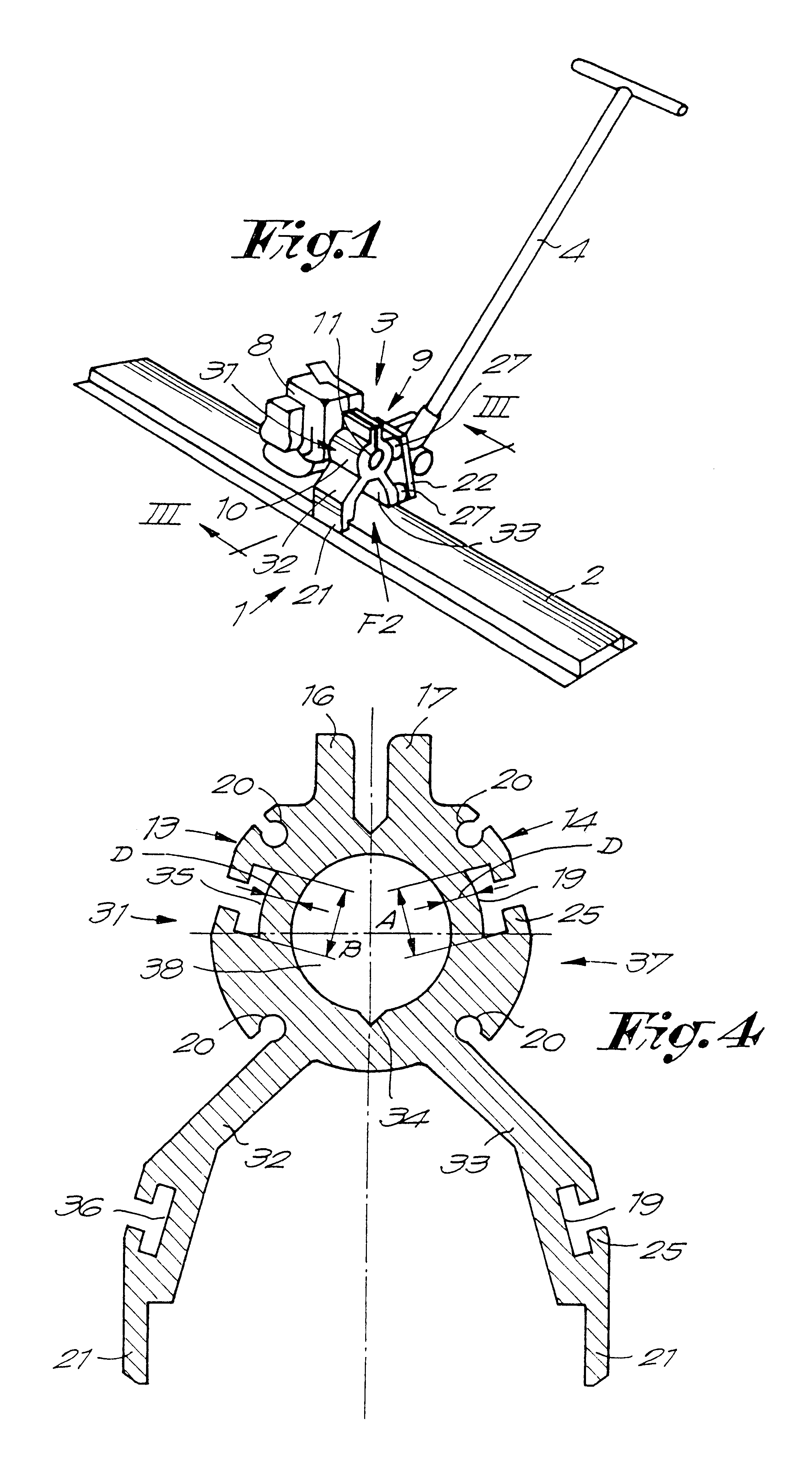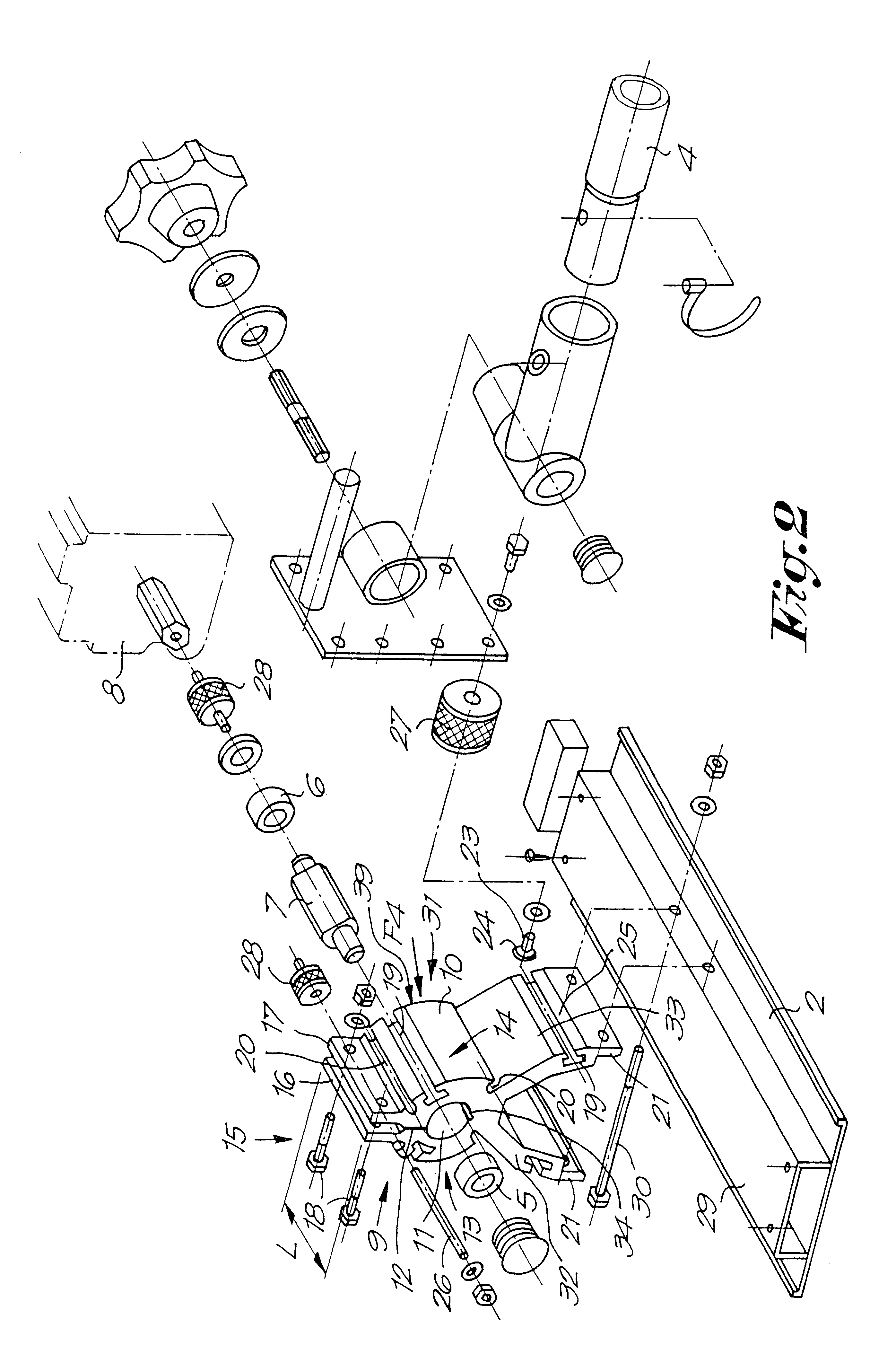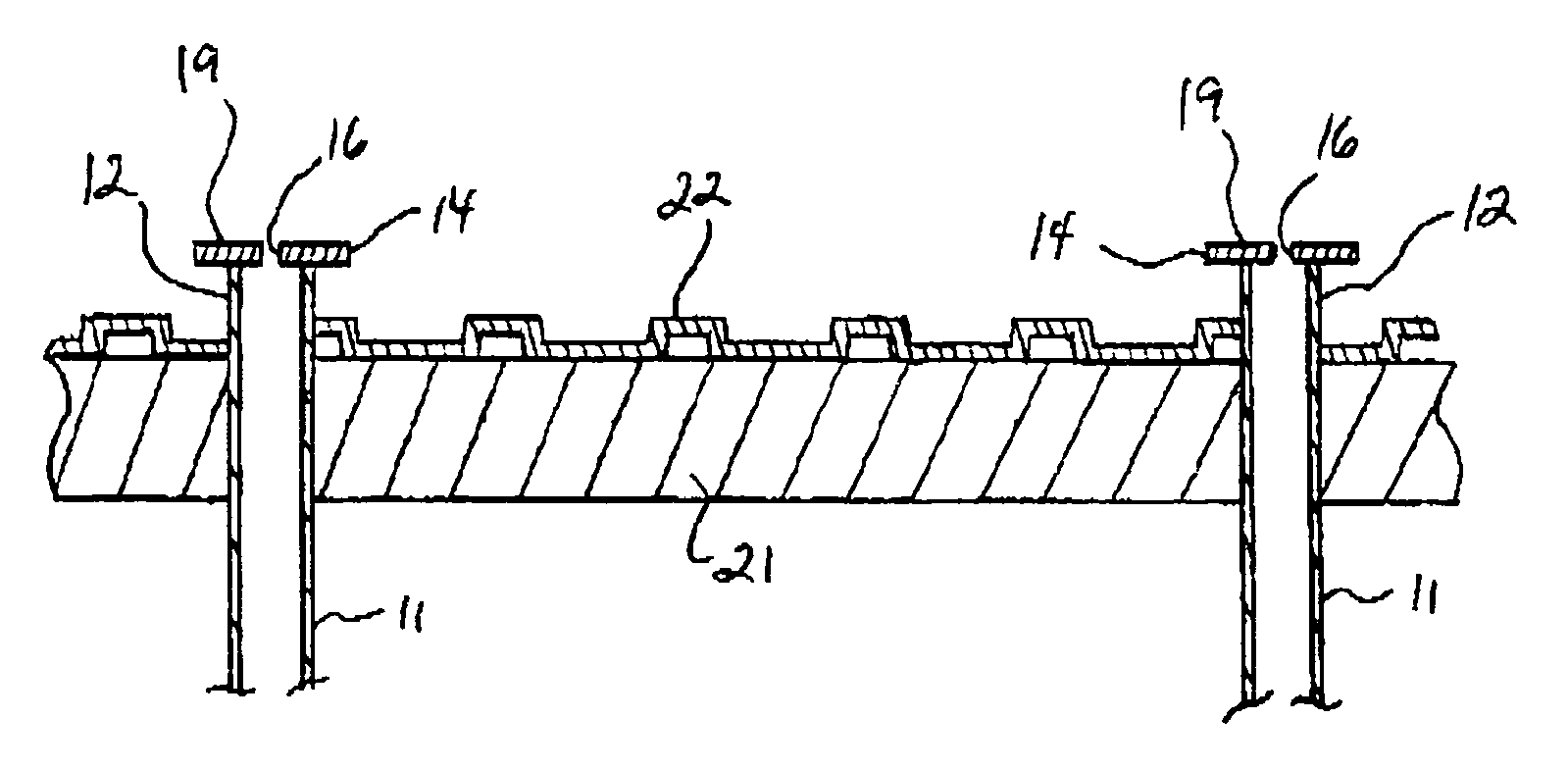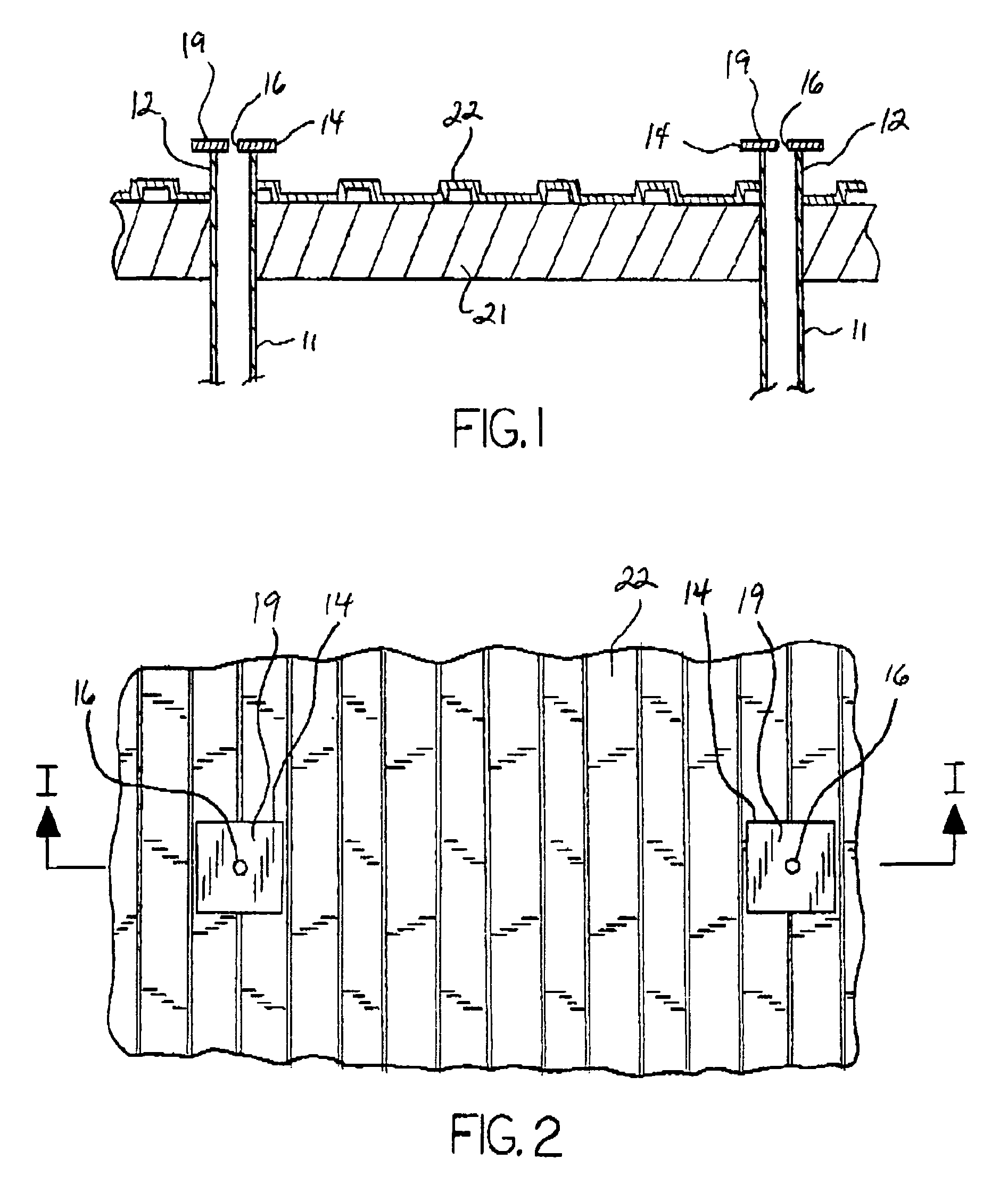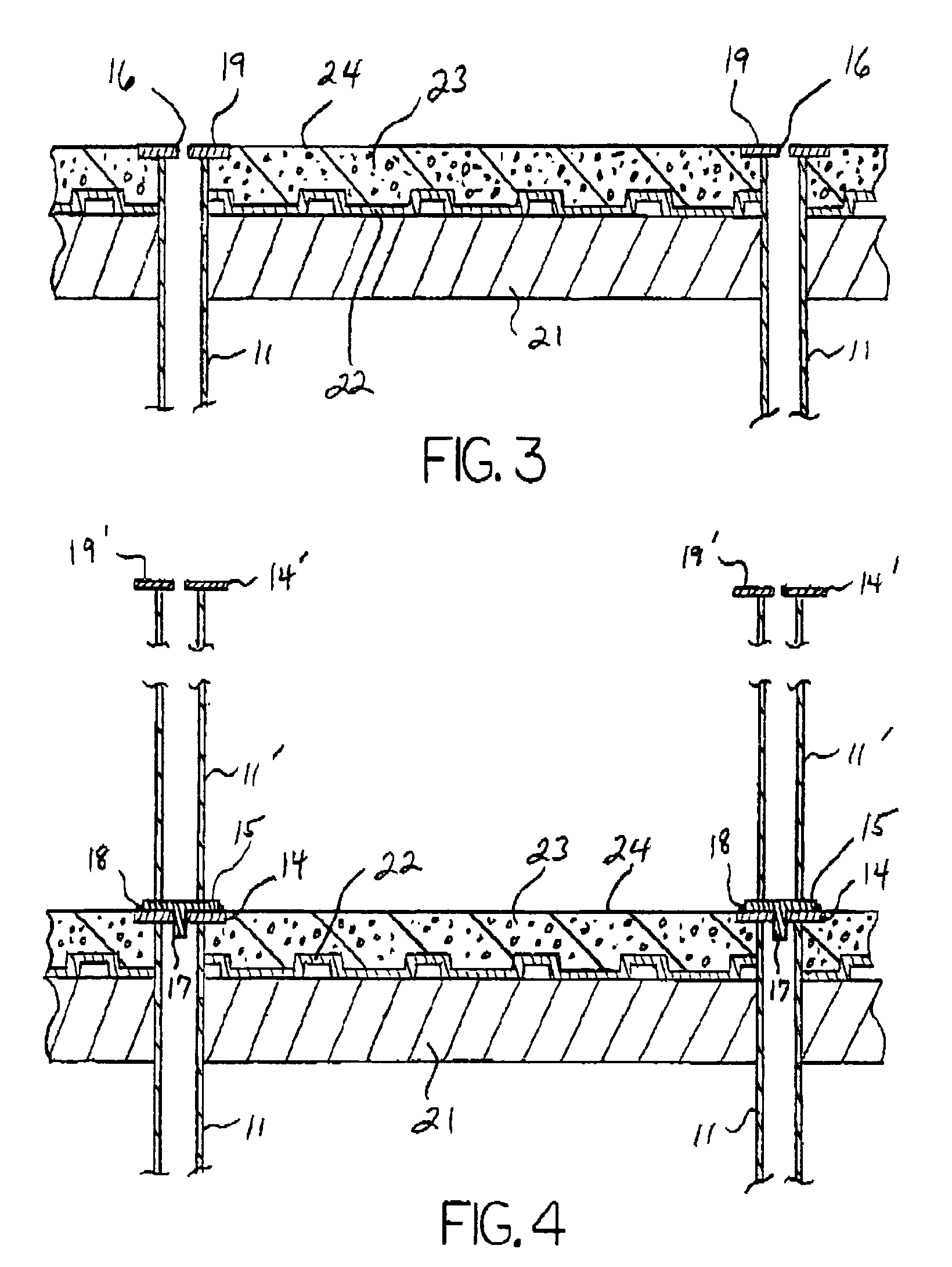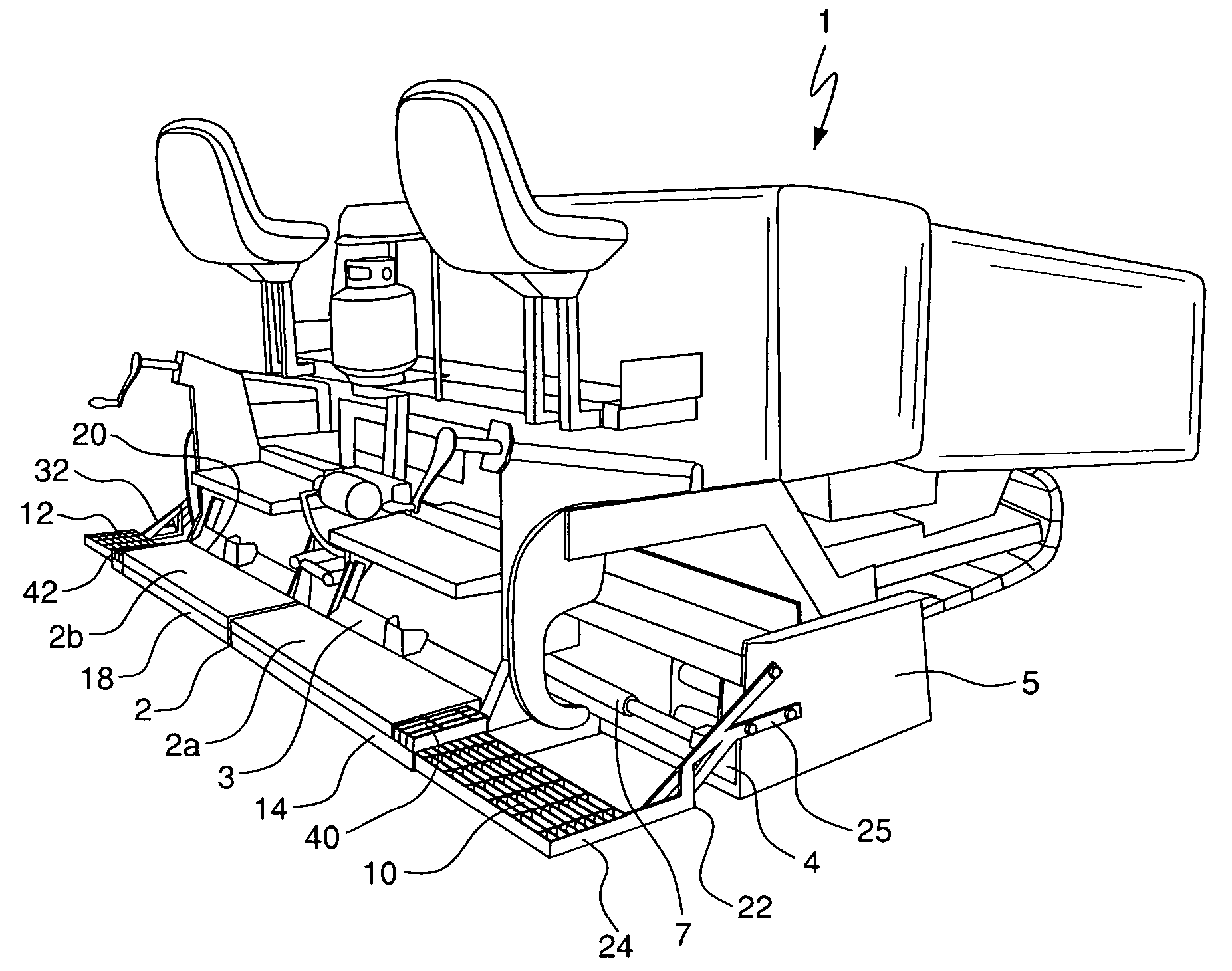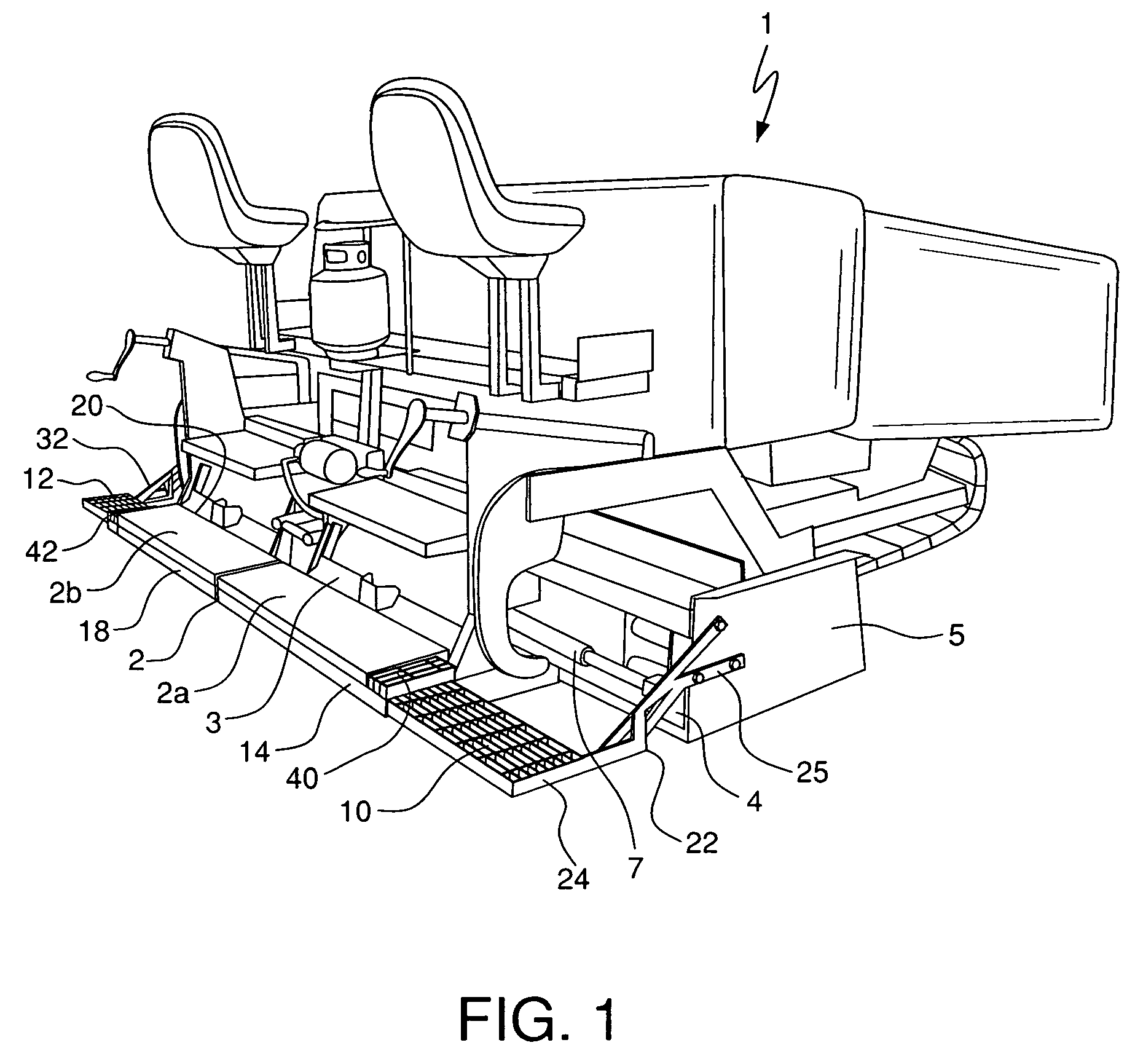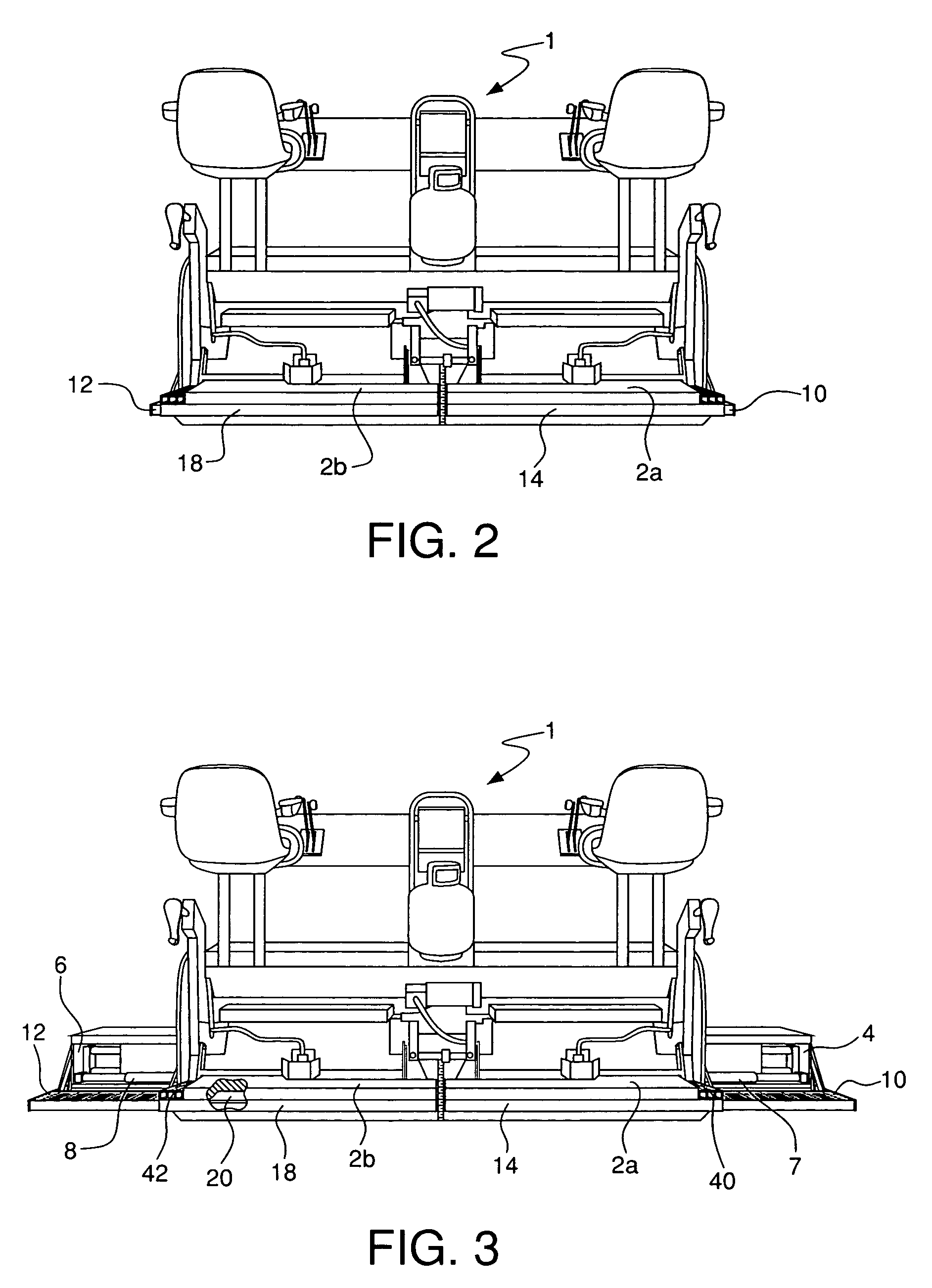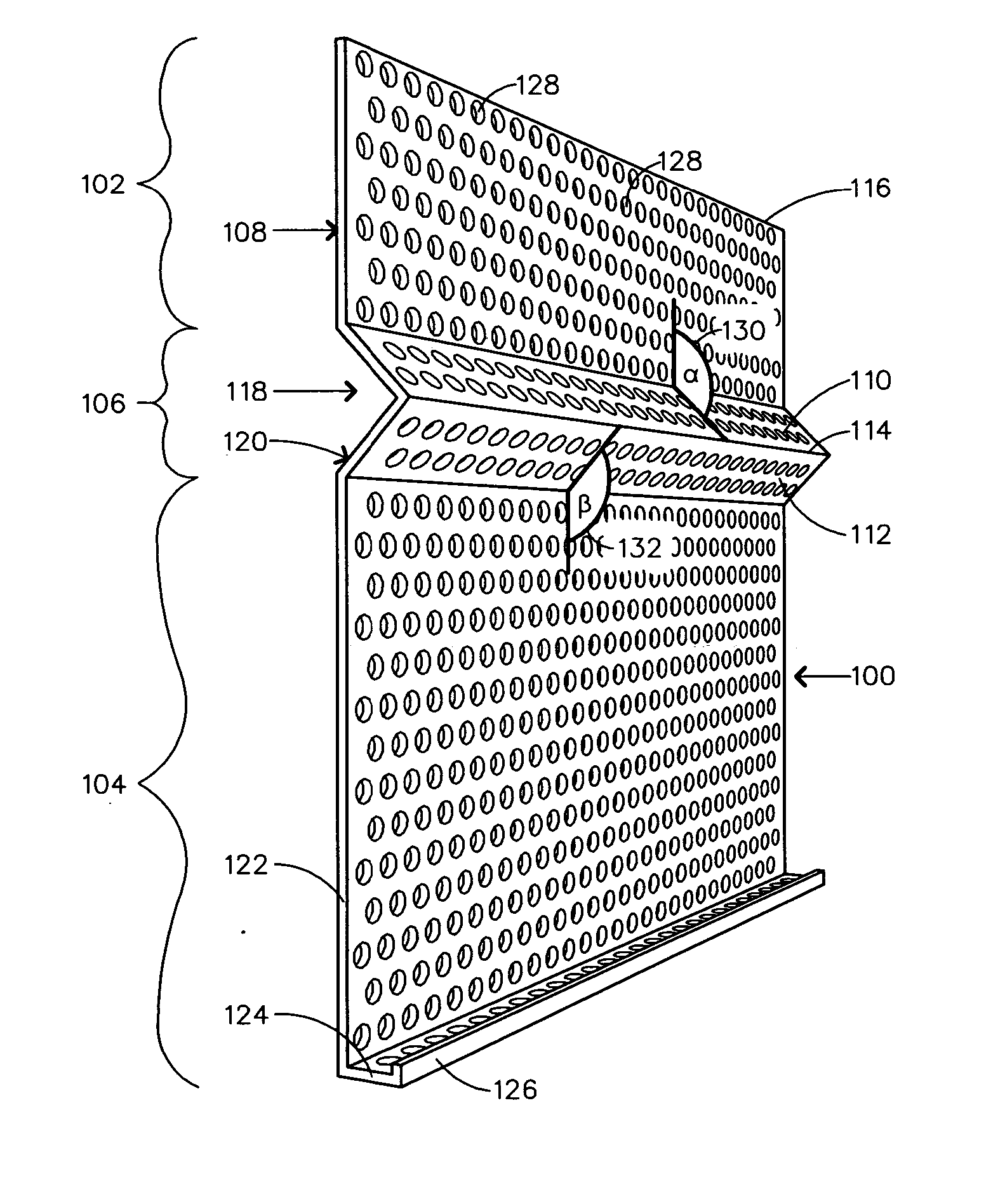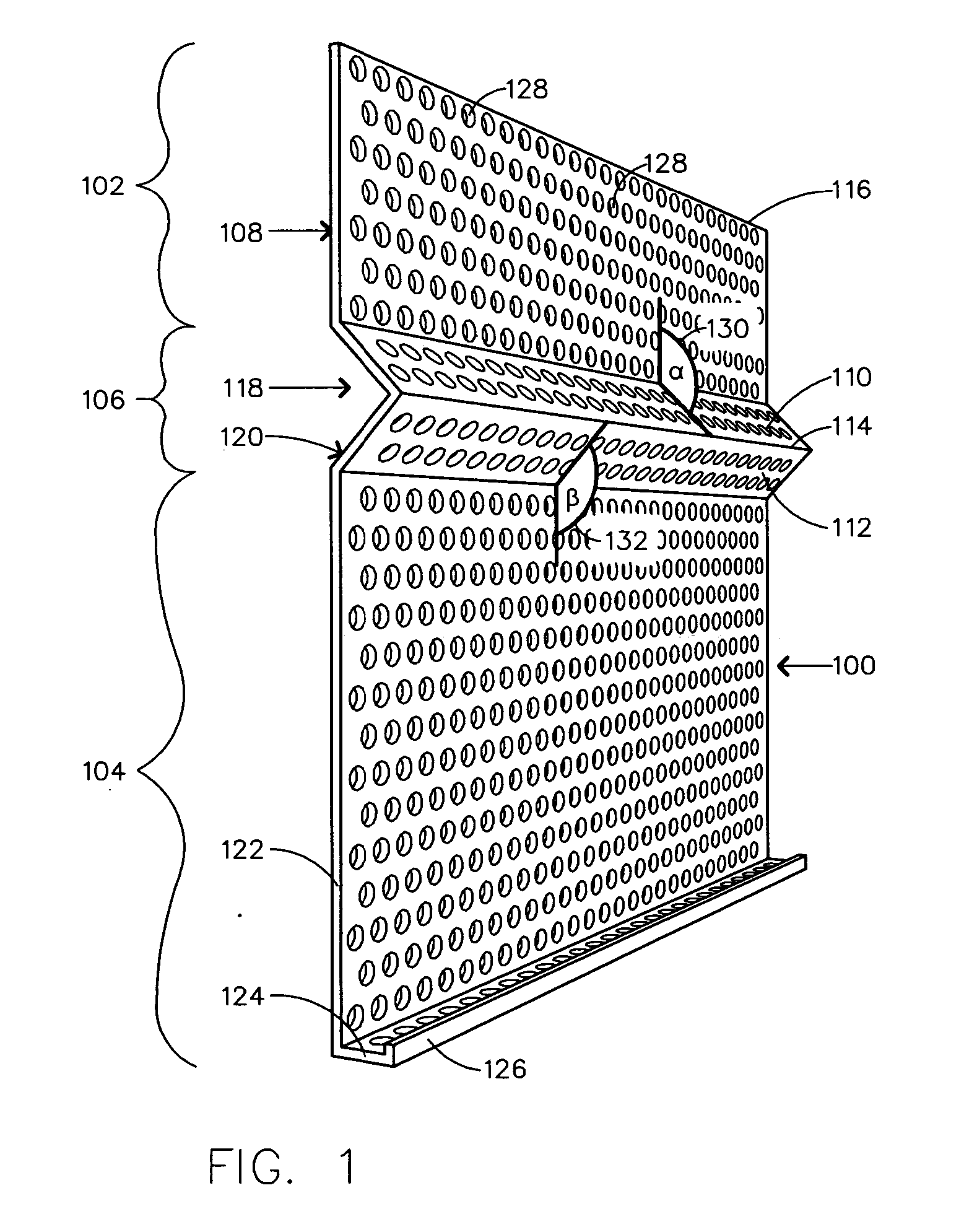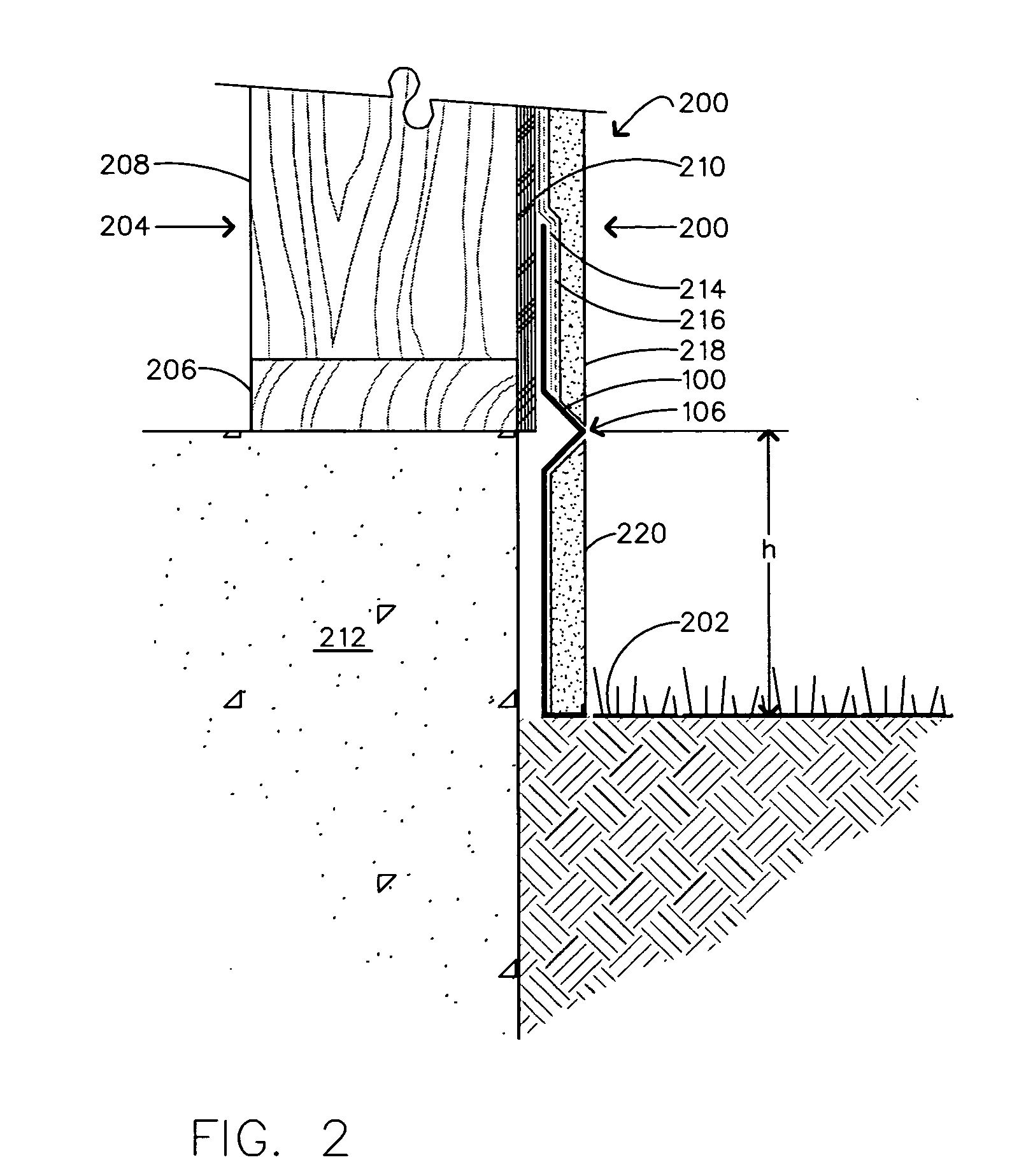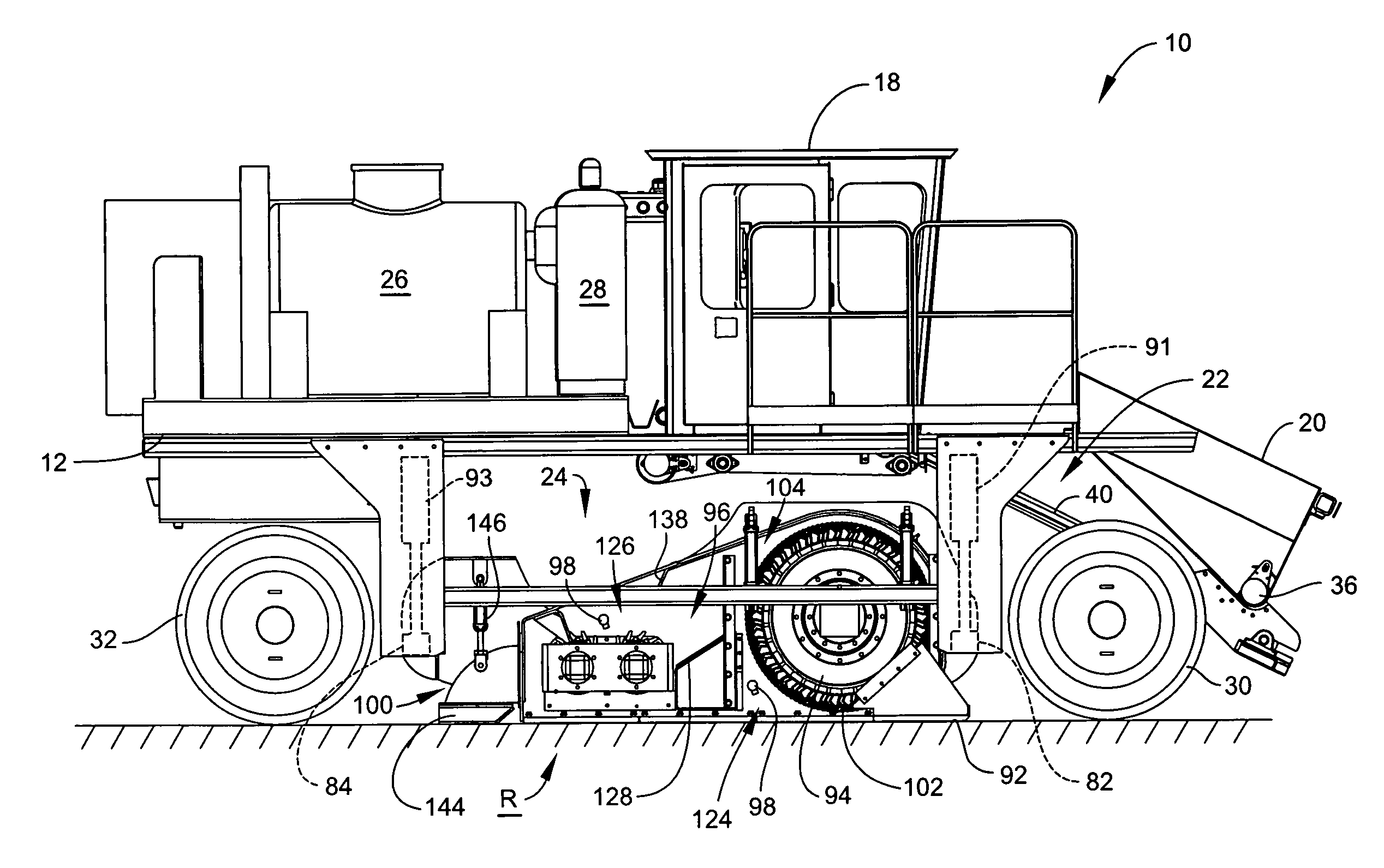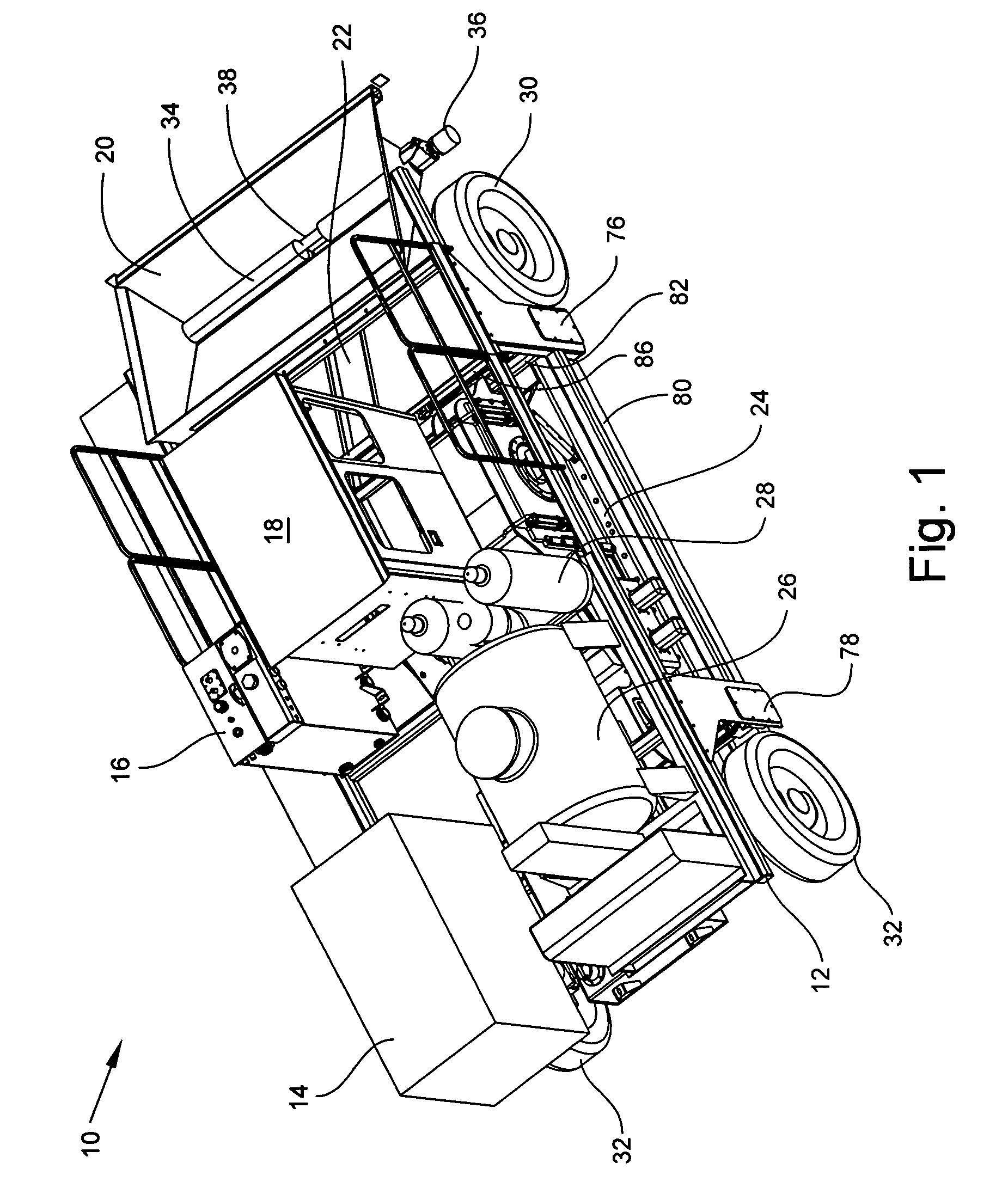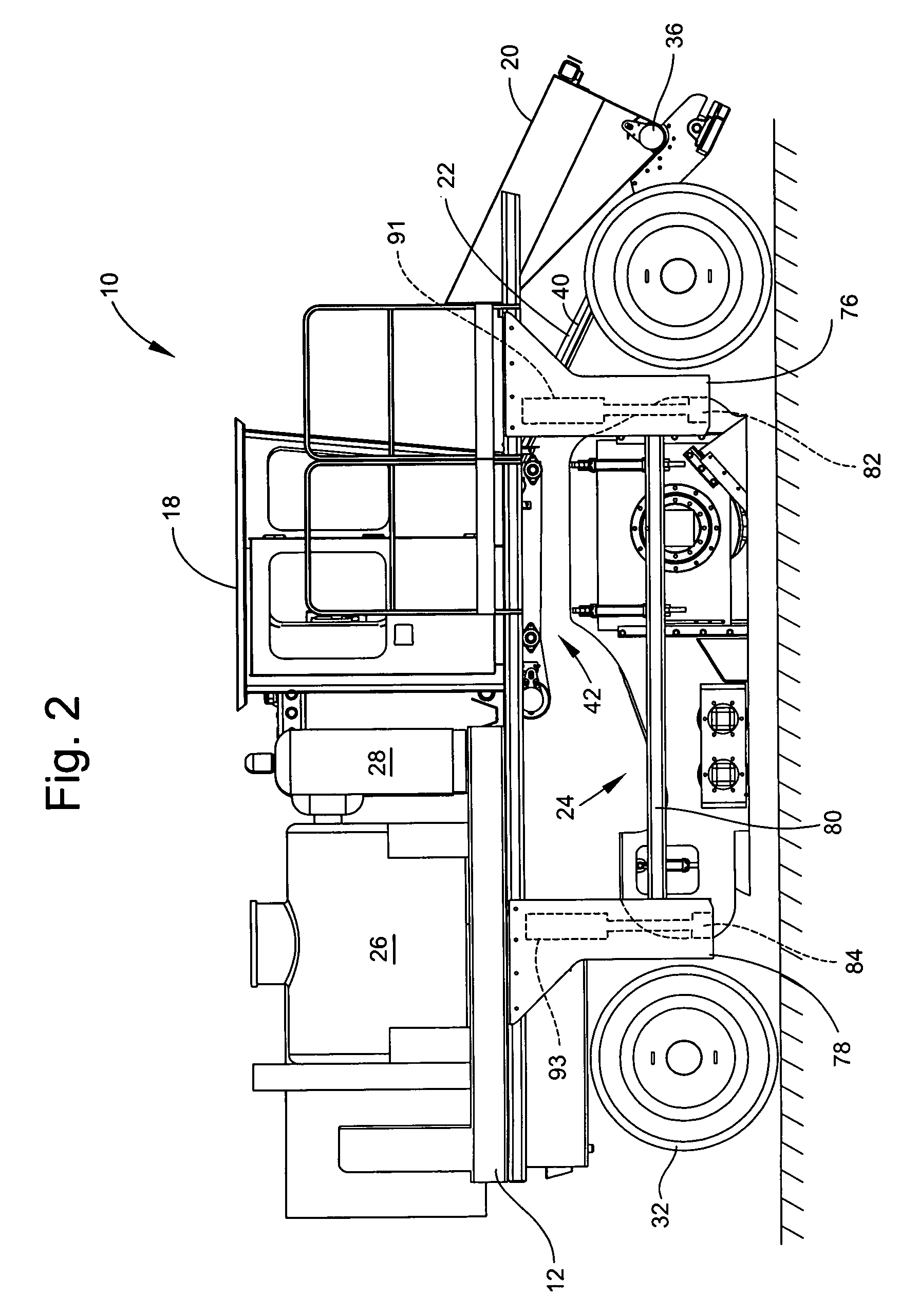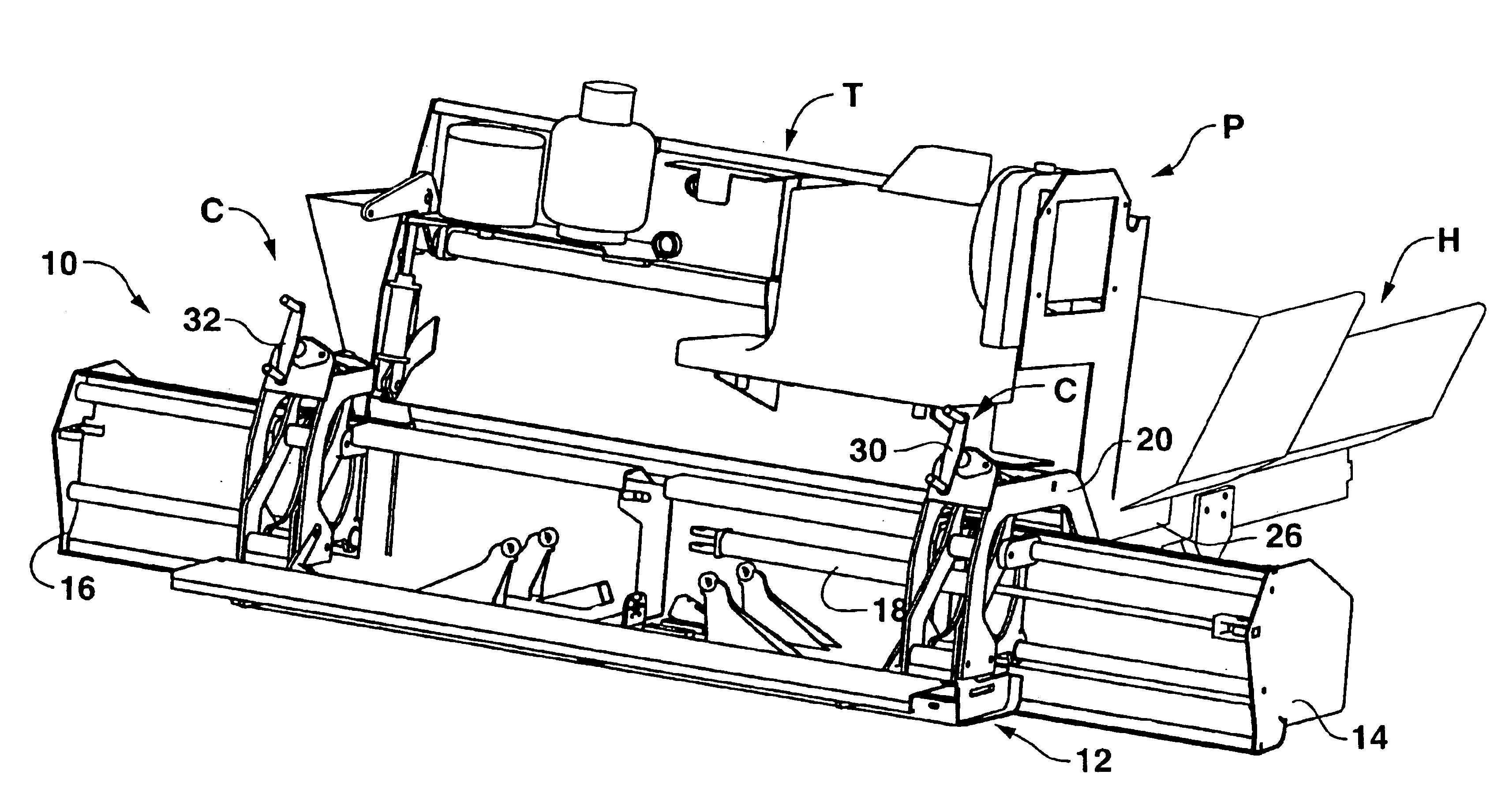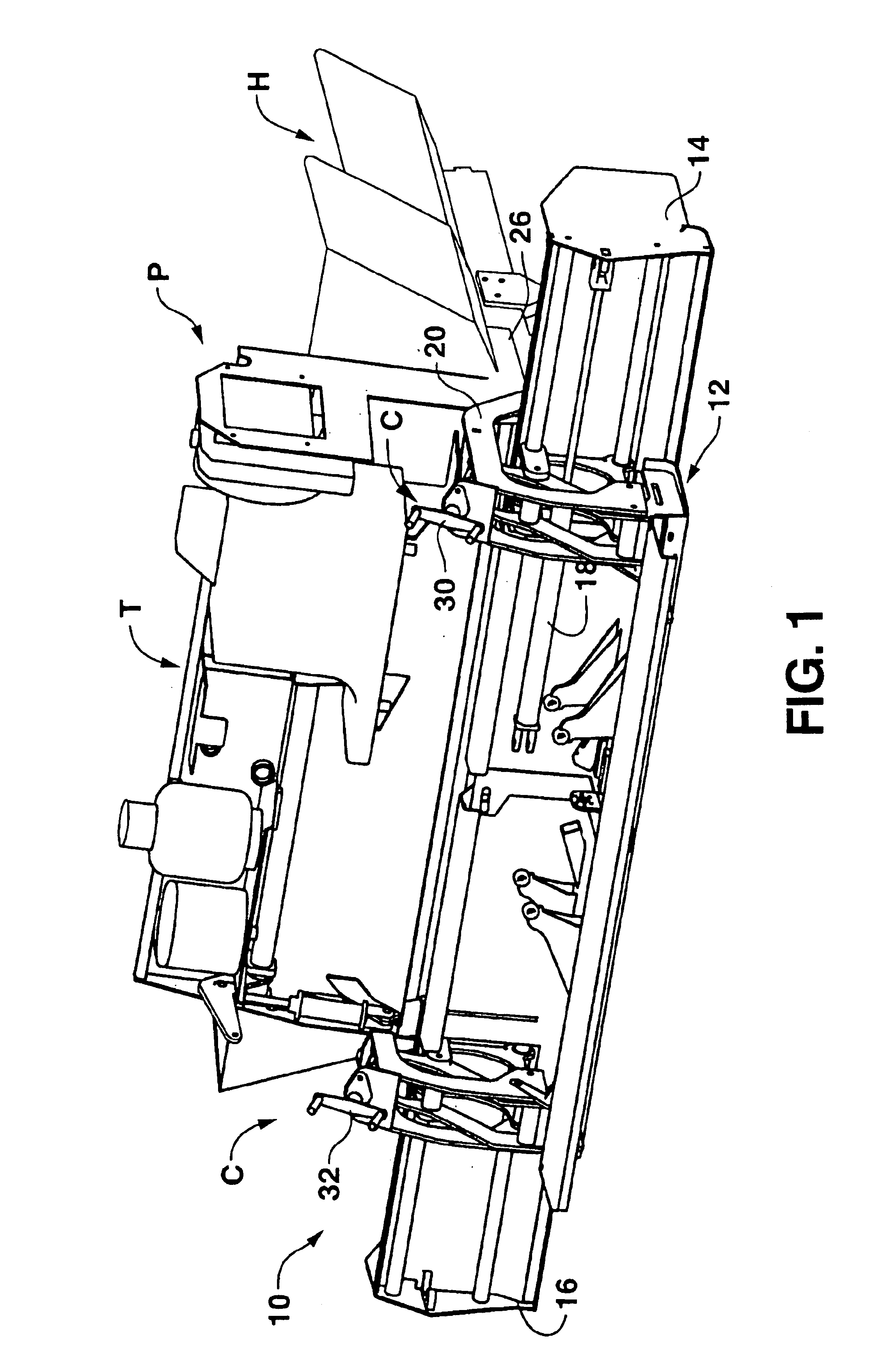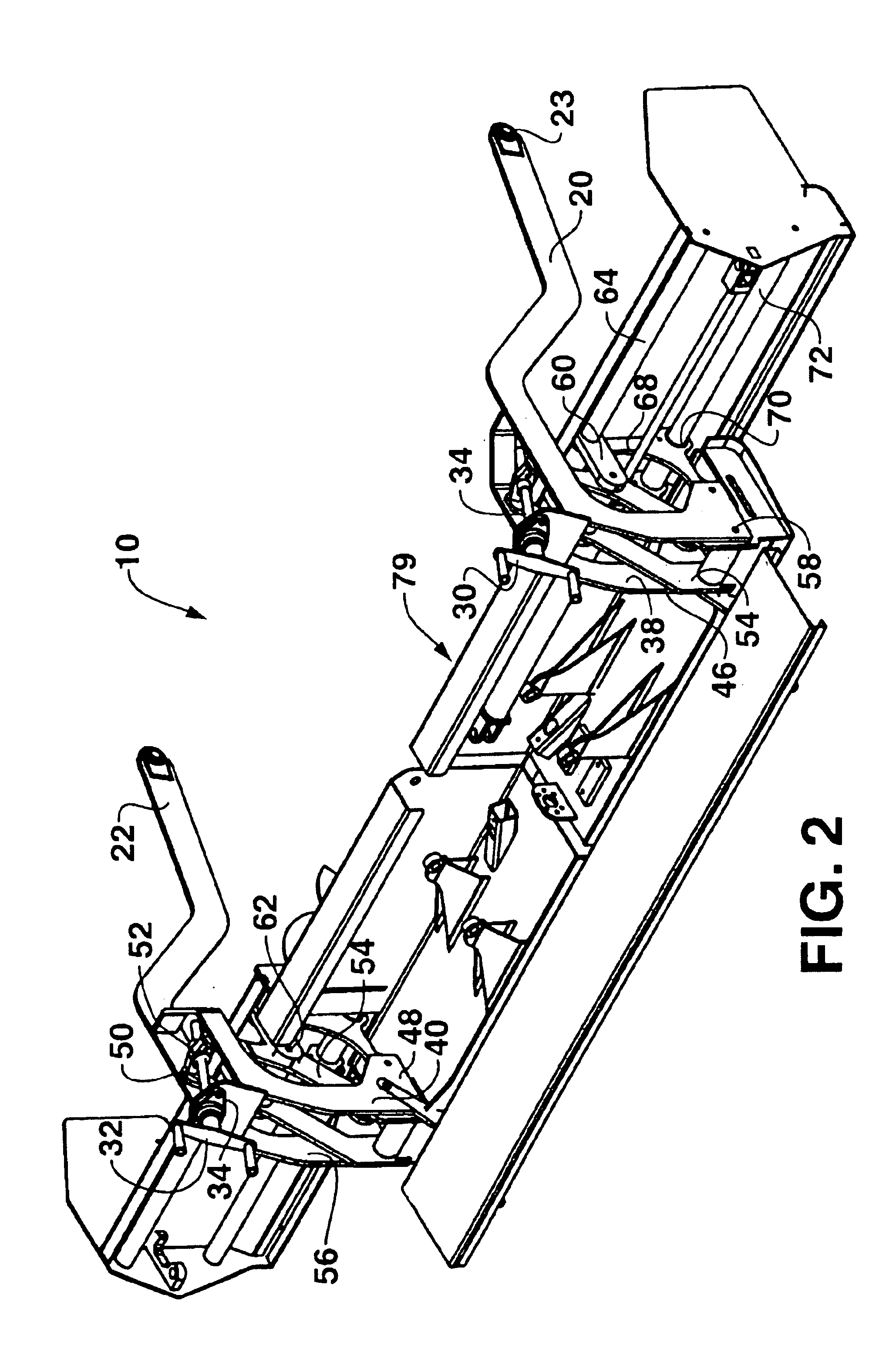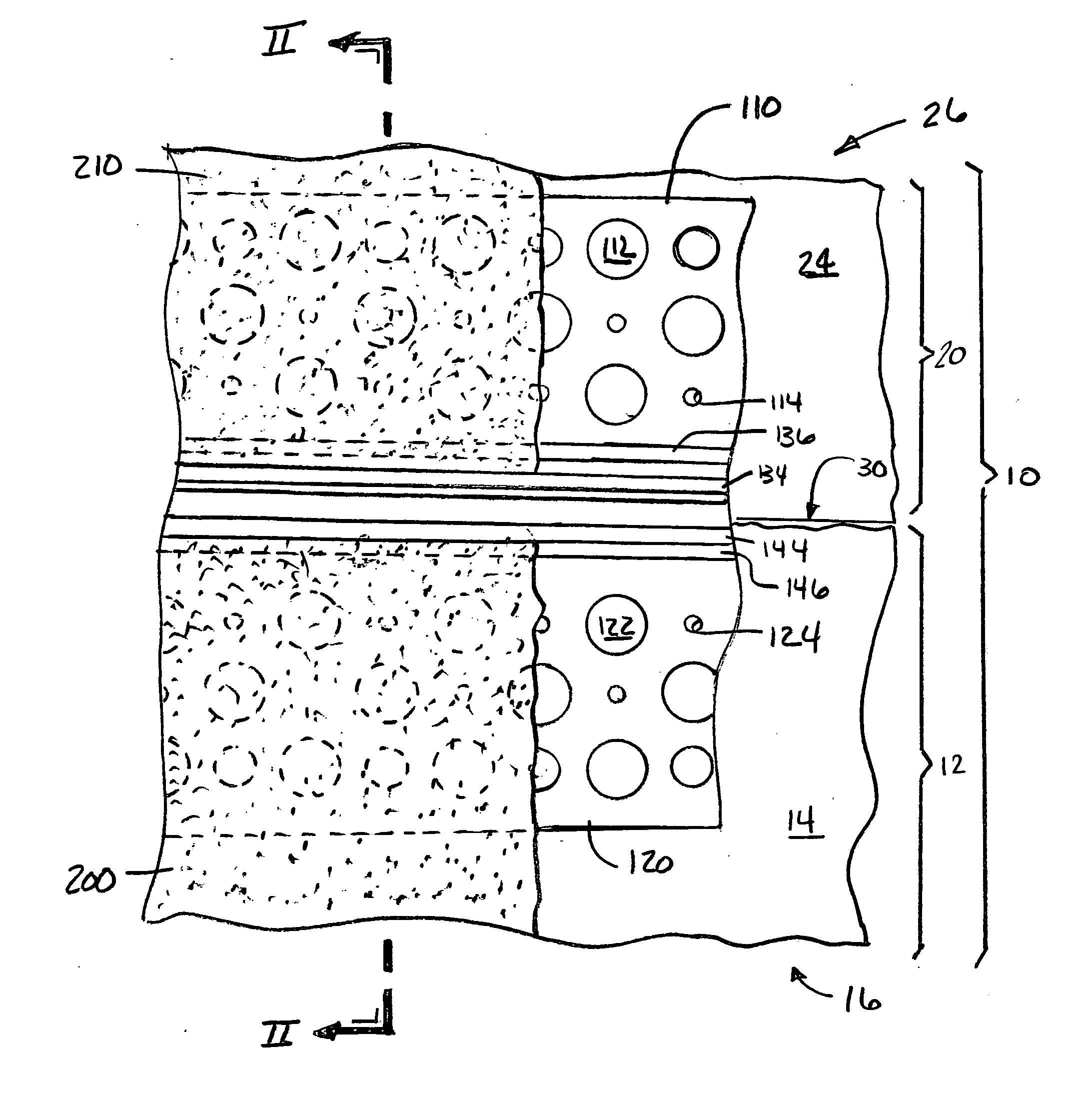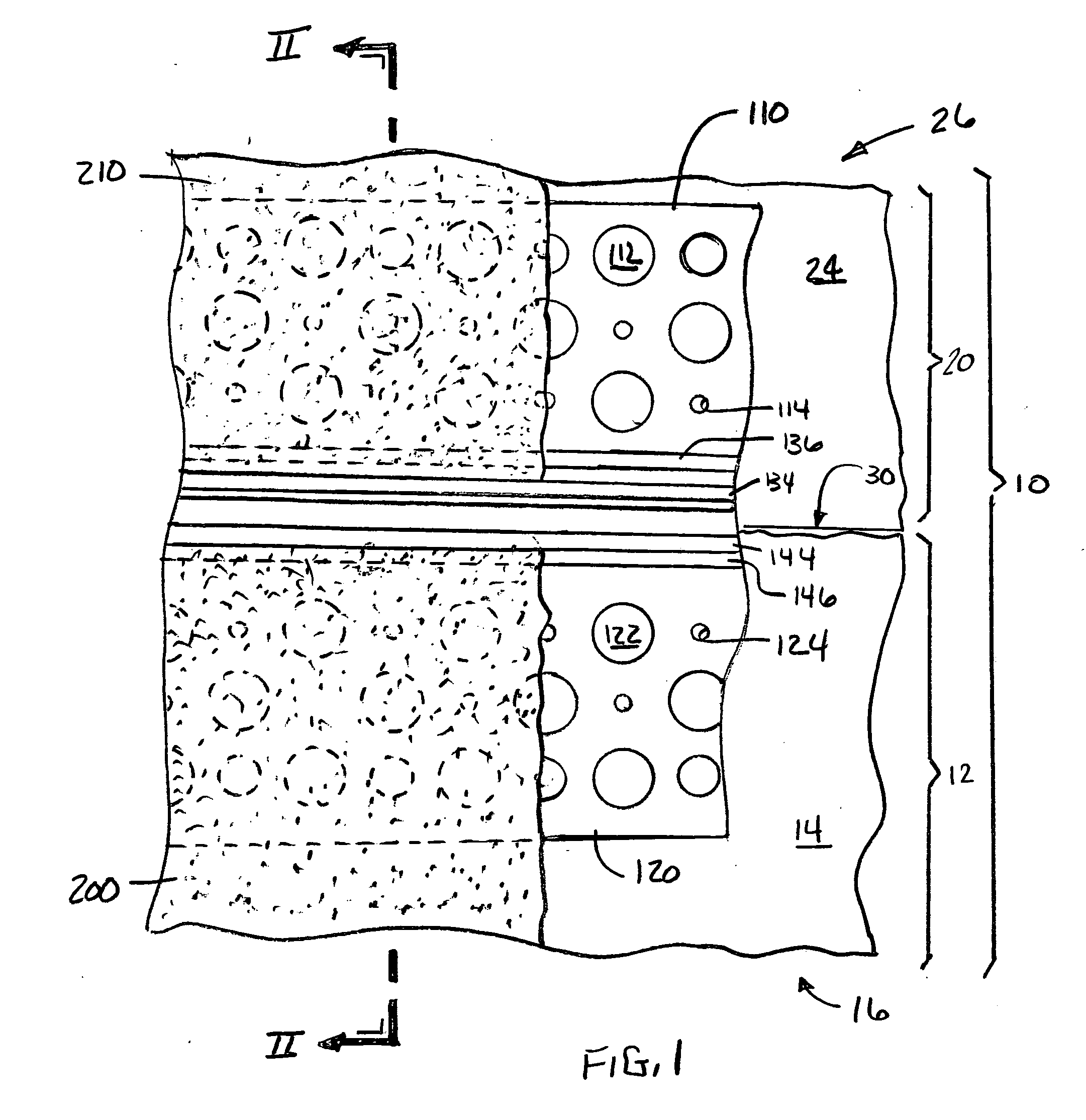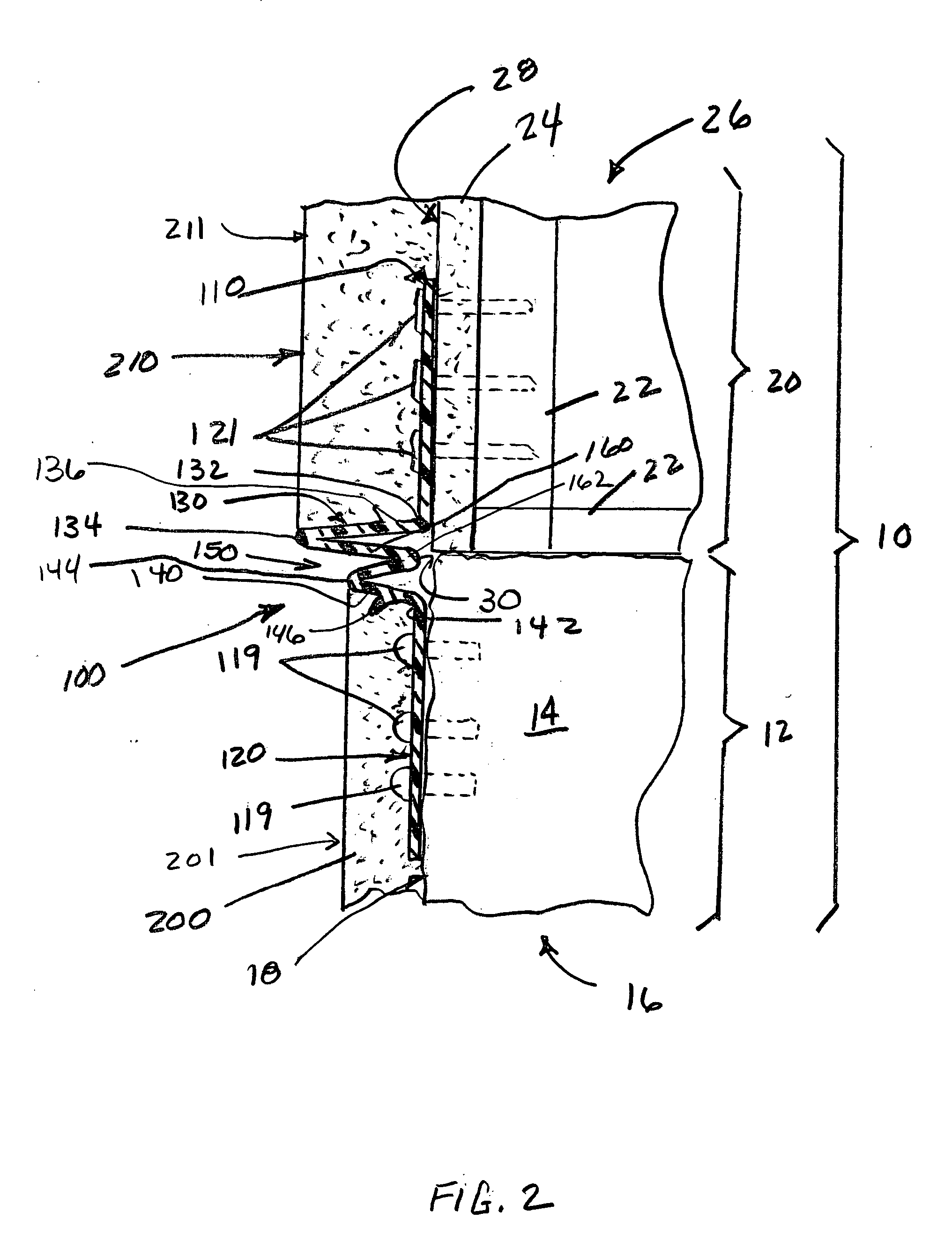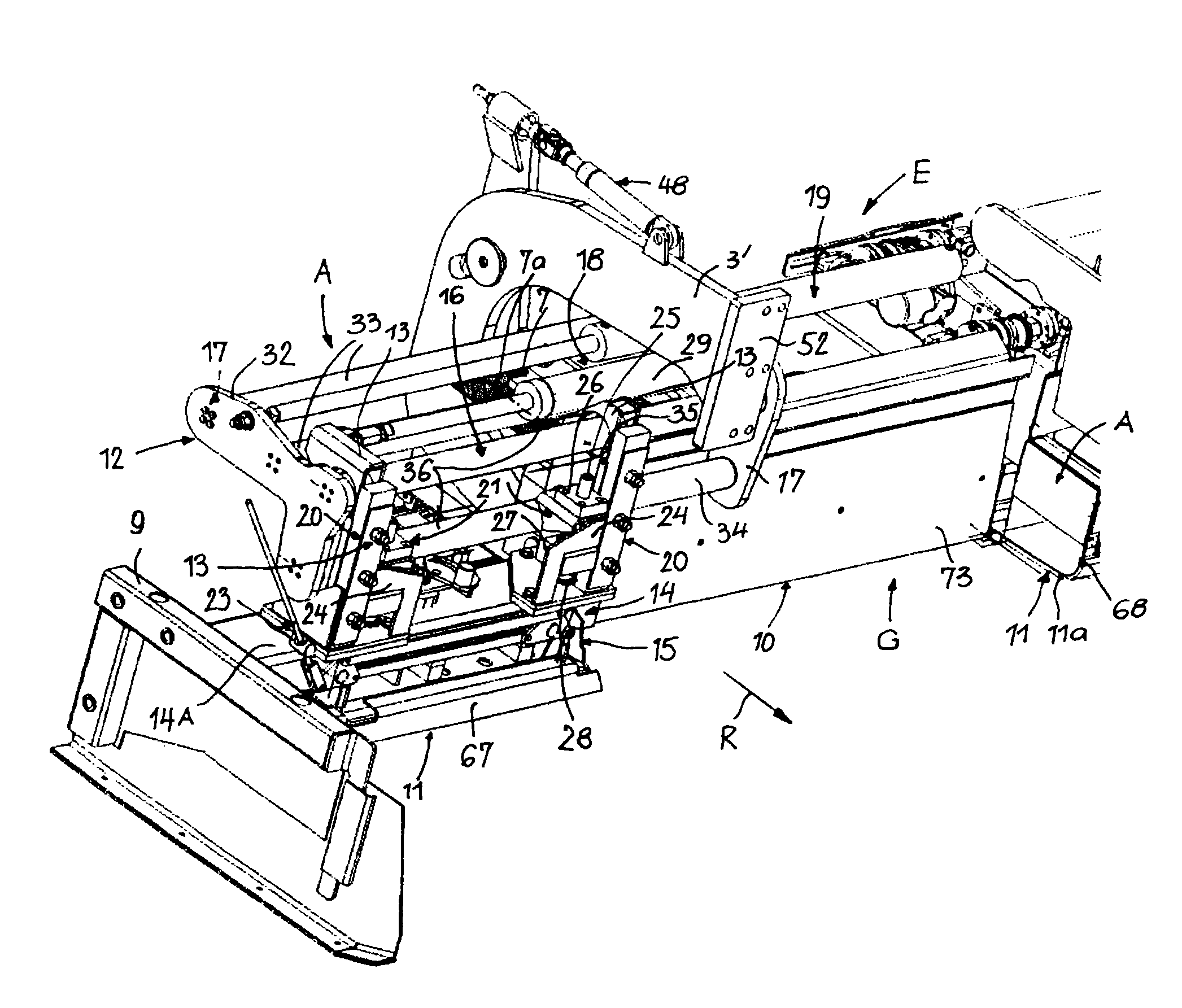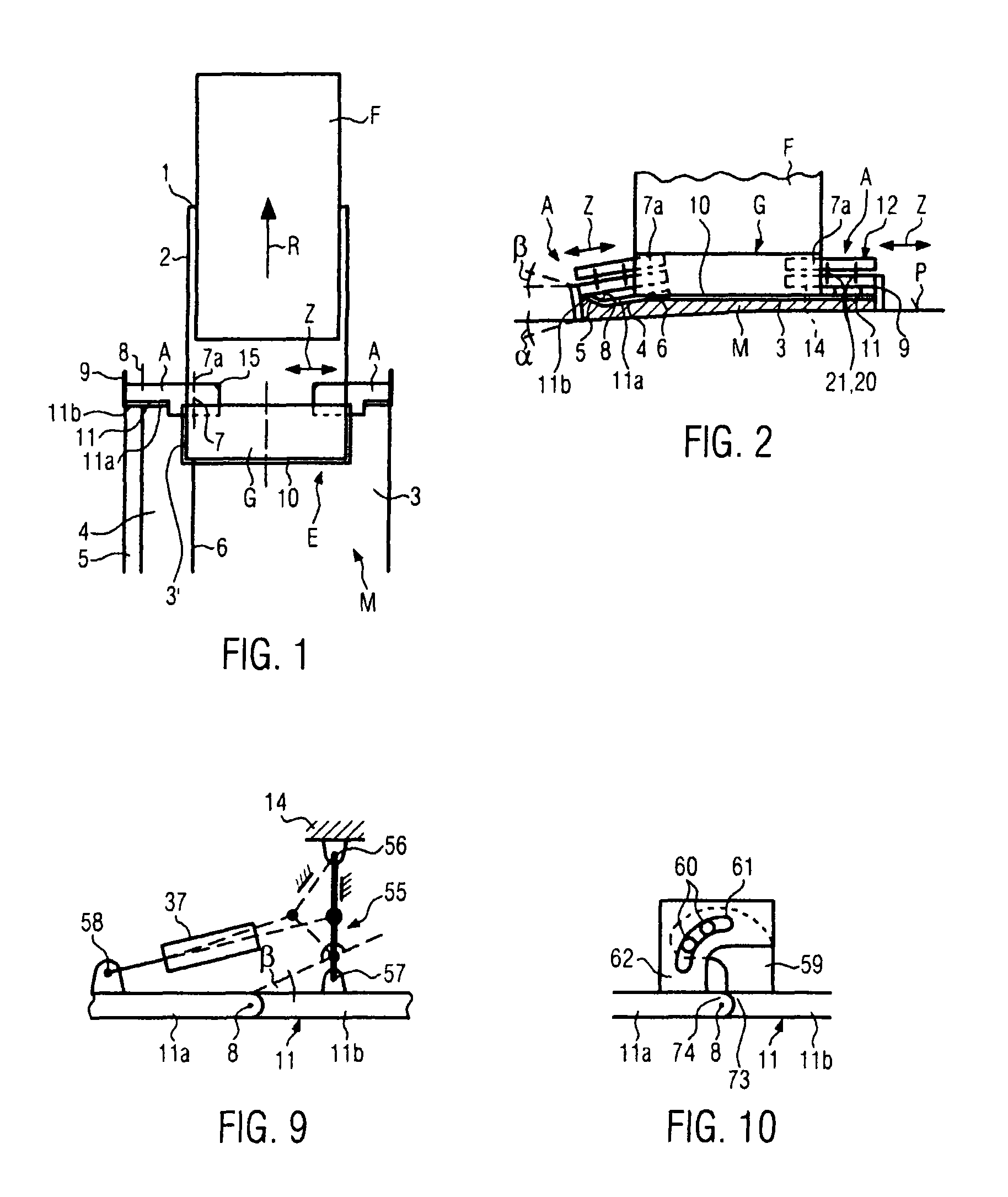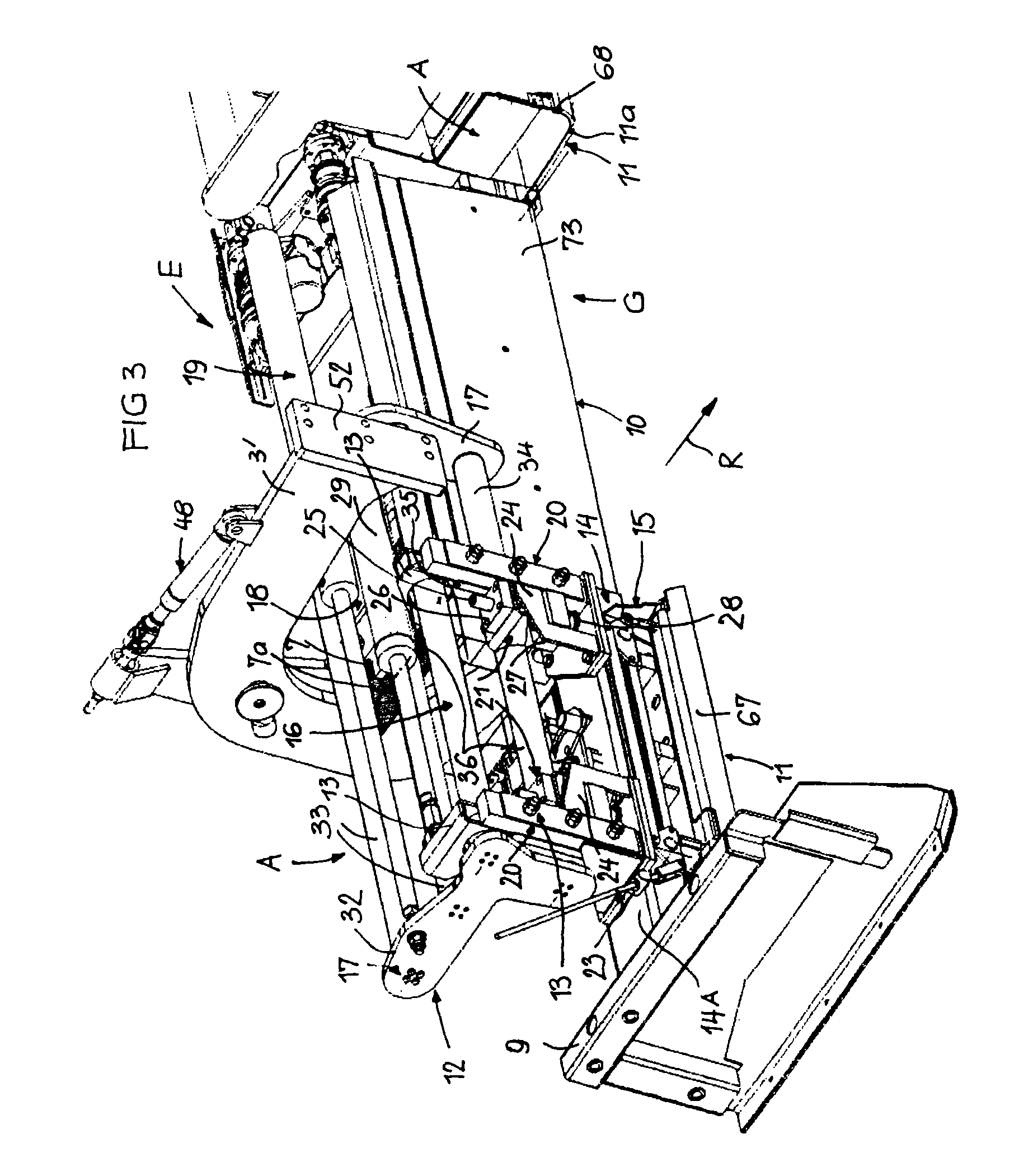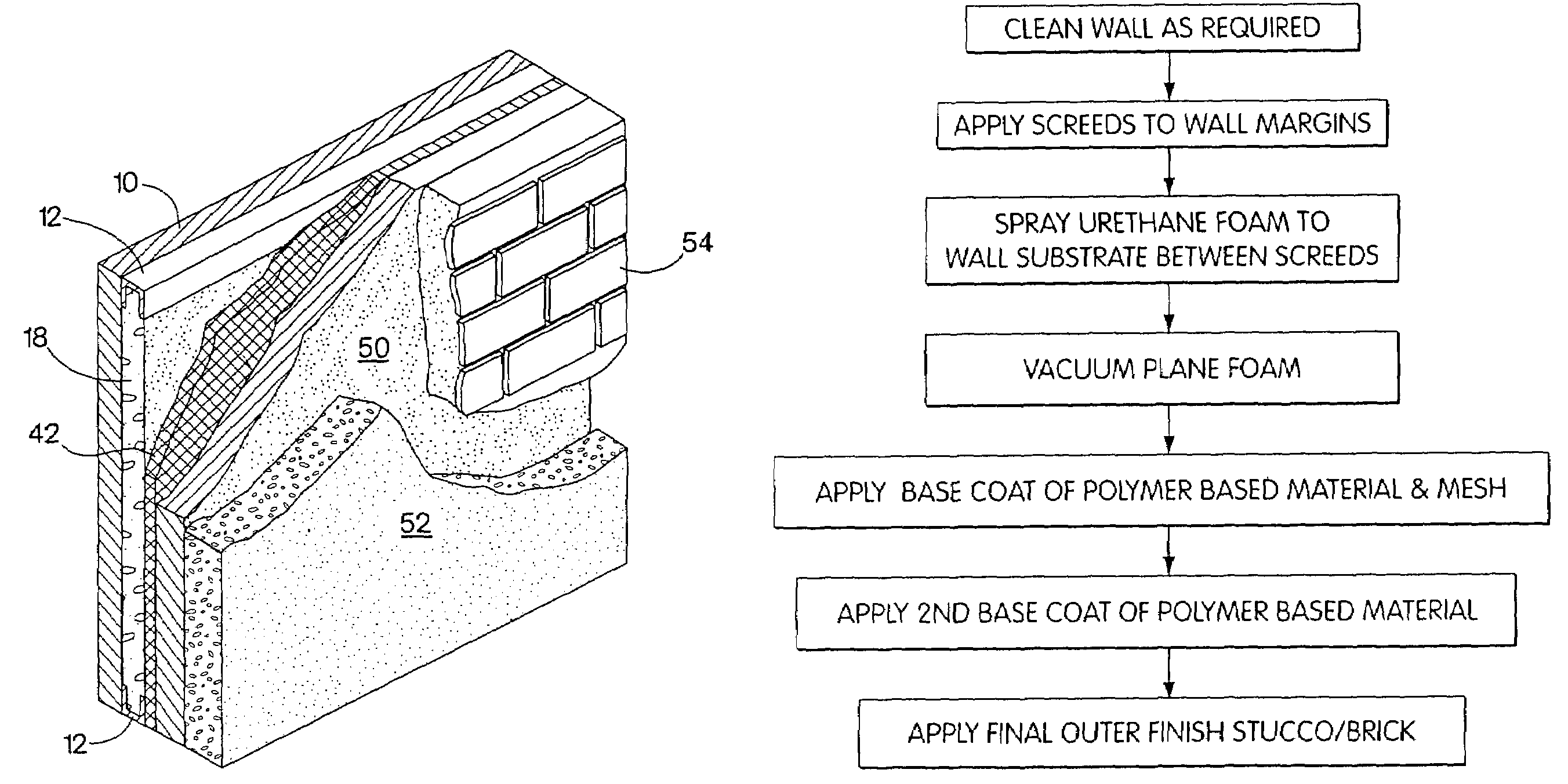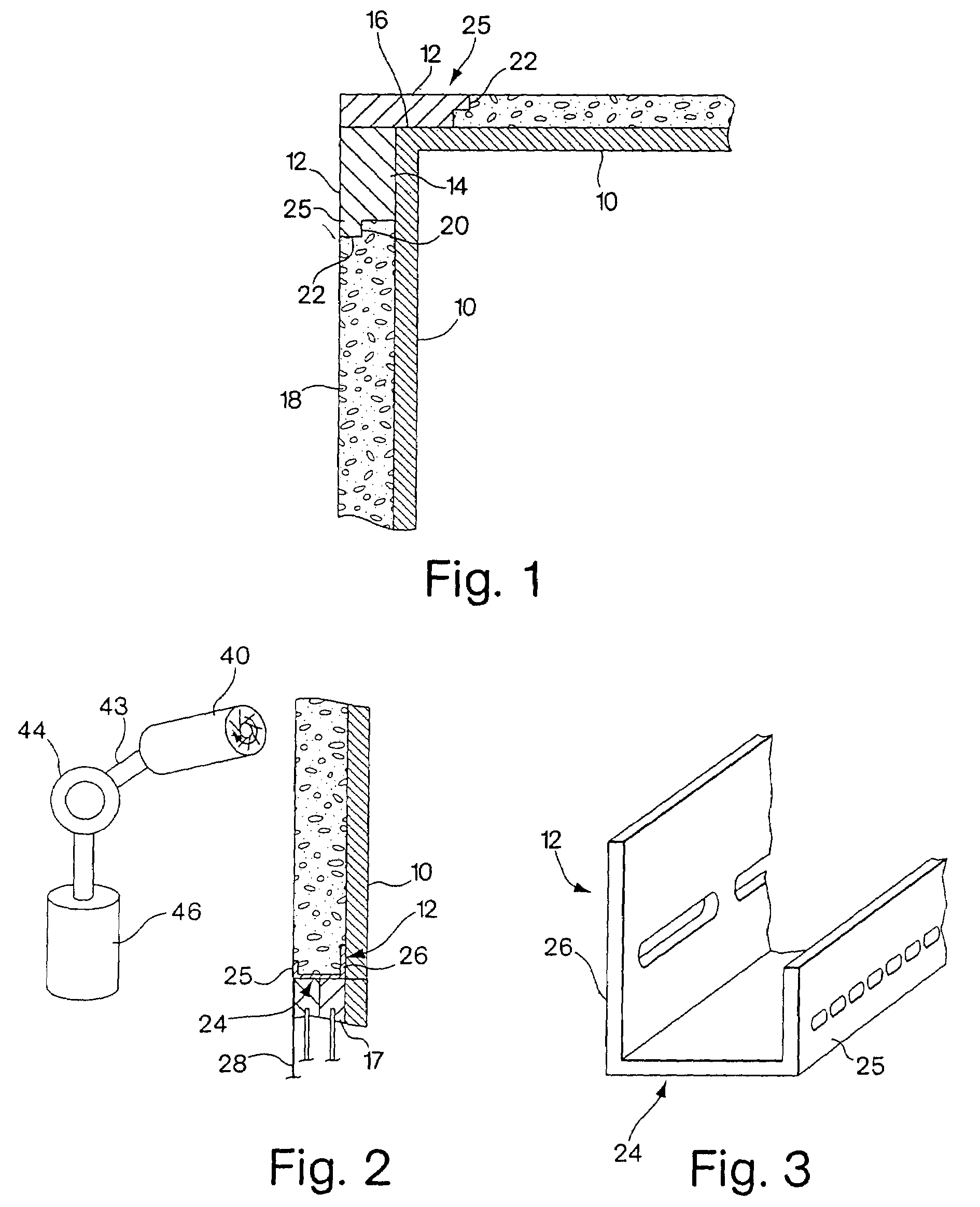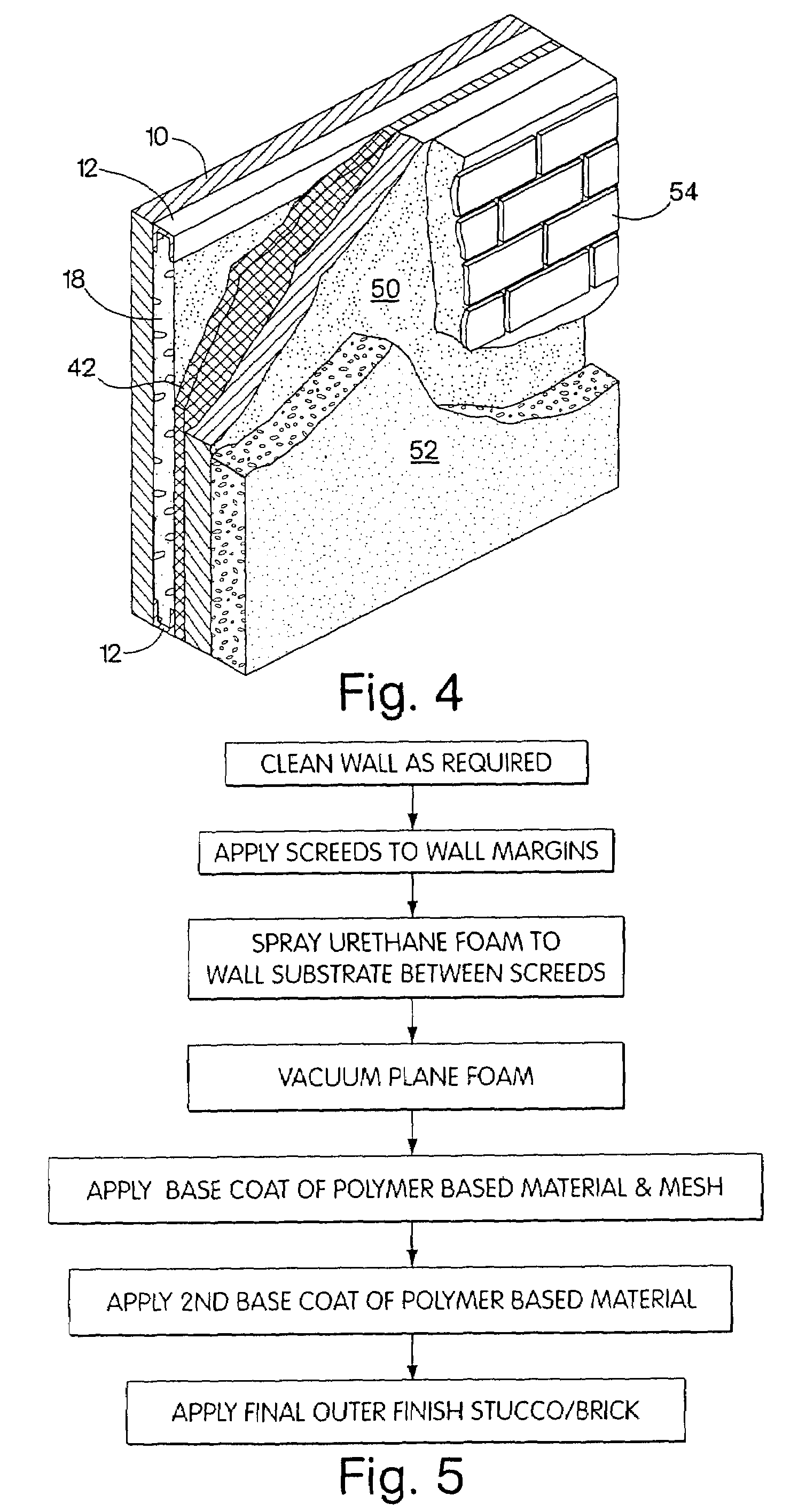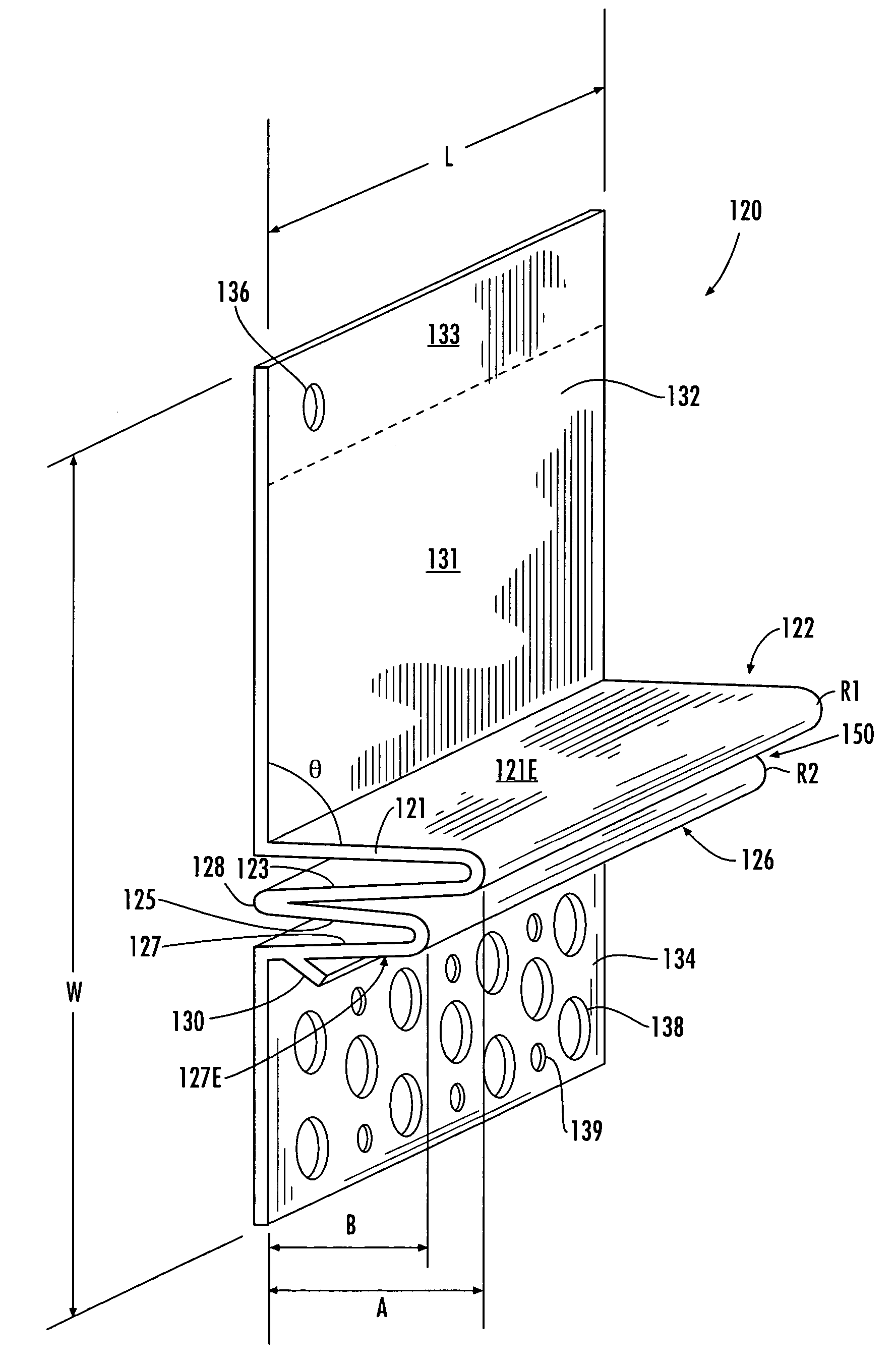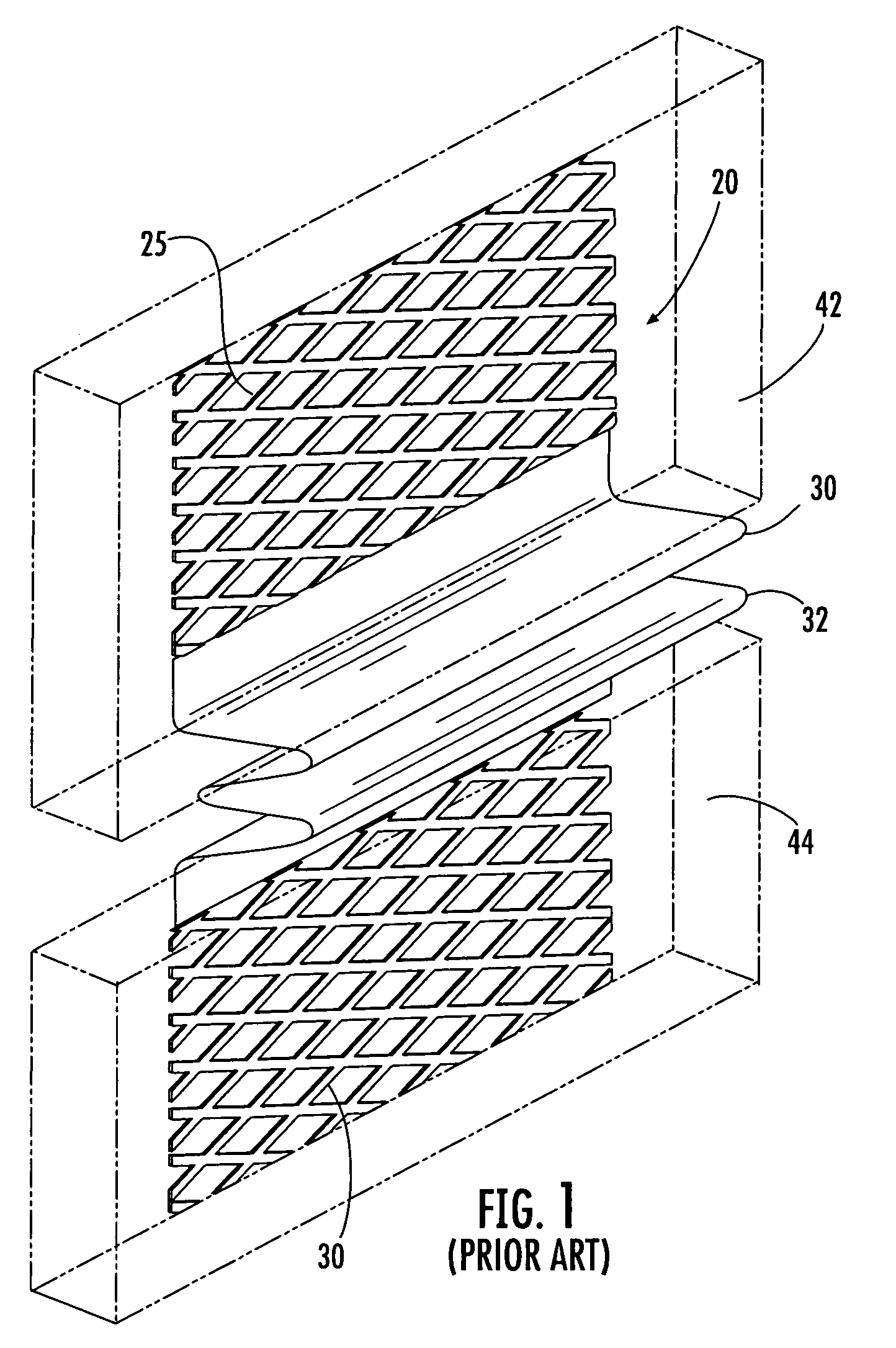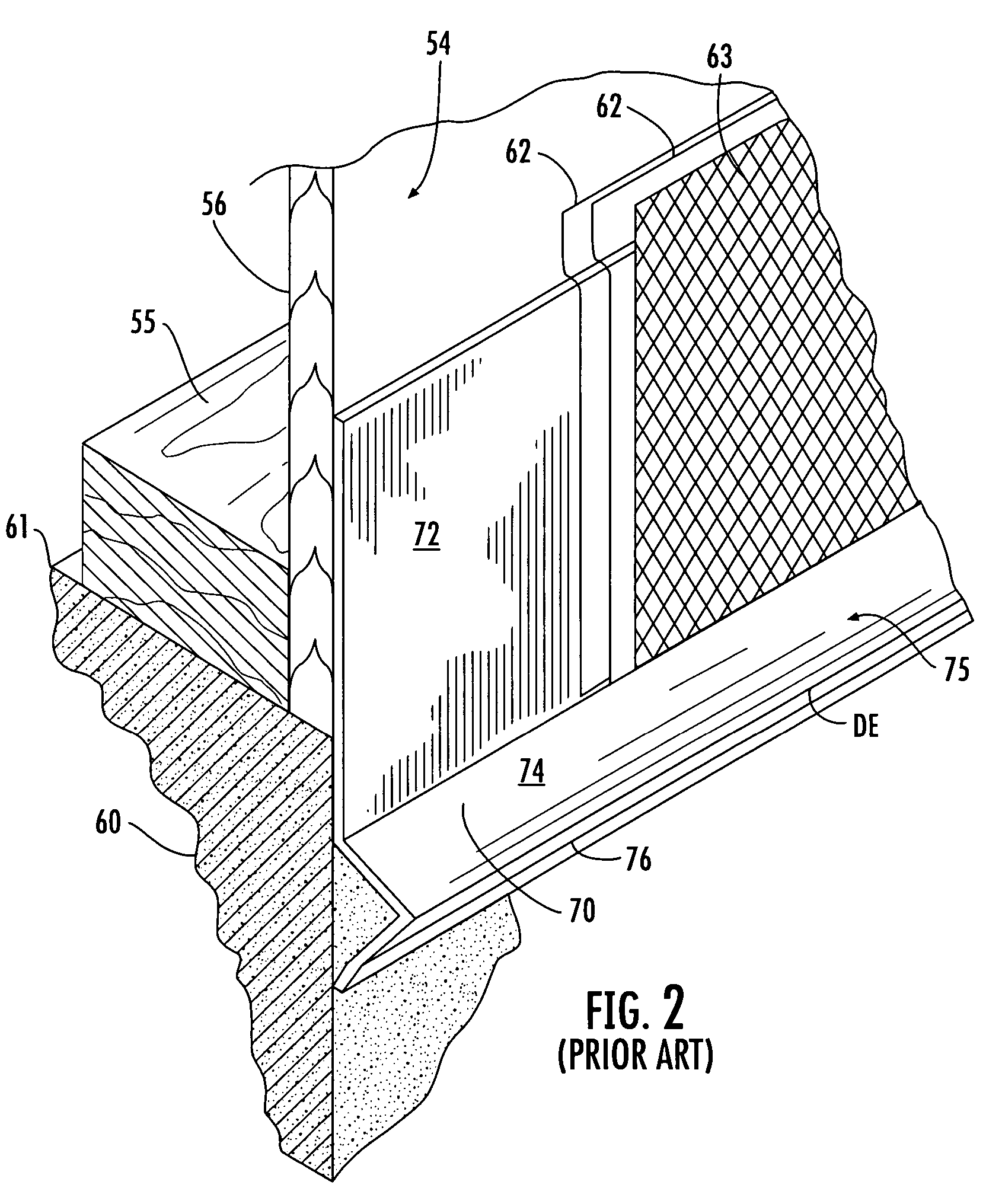Patents
Literature
1092 results about "Screed" patented technology
Efficacy Topic
Property
Owner
Technical Advancement
Application Domain
Technology Topic
Technology Field Word
Patent Country/Region
Patent Type
Patent Status
Application Year
Inventor
Screed has three meanings in building construction: 1) a flat board (screed board, floating screed) or a purpose-made aluminium tool used to smooth and true materials like concrete, stucco and plaster after it has been placed on a surface or to assist in flattening; 2) a strip of plaster or wood applied to a surface to act as a guide for a screed tool (screed rail, screed strip, screed batten); 3) the material itself which has been flattened with a screed (screed coat). In the UK, screed has also come to describe a thin, top layer of material (traditionally sand and cement), poured in site on top of the structural concrete or insulation, on top of which other finishing materials can be applied, or it can be left bare to achieve a raw effect.
Paving machine output monitoring system
A paving machine may include a power source, a traction system, a hopper configured to contain paving material, and one or more conveyors configured to transfer the paving material from the hopper. The paving machine may also include a screed configured to lay a mat of the paving material. The paving machine may further include at least one front sensor mounted on a front portion of the paving machine and configured to measure height from a surface to the front sensor and at least one rear sensor mounted on the paving machine and configured to measure height from a surface of the mat to the rear sensor. The paving machine may also include a controller configured to determine a thickness of the mat by determining a difference between one or more front height measurements taken by the at least one front sensor and one or more rear height measurements taken by the at least one rear sensor.
Owner:CATERPILLAR PAVING PROD INC
Paving machine output monitoring system
Owner:CATERPILLAR PAVING PROD INC
Mobile terminal and display control method thereof
InactiveUS20060094480A1Easy to operateStands/trestlesDetails for portable computersScreedAccelerometer
Owner:NEC CORP
Device and method for controlling the application height of a road finisher
A control device for controlling the application of a material which is adapted to be applied to a subgrade by means of a road finisher, said road finisher comprising a tractor and a floating screed, which is attached by means of at least one drawarm to the tractor in such a way that said screed is arranged behind said tractor in the direction in which the road finisher is moving when in operation, a first end of said at least one drawarm being secured to the tractor by means of a vertically adjustable coupling device, and a second end of said at least one drawarm being rigidly secured to the floating screed, said control device comprising a device for detecting the height of a screed edge in relation to a reference height, said screed edge being the rear lower edge of the screed in the direction of movement. The control device further comprises a device for detecting the inclination of said at least one drawarm in relation to a reference plane. A device for controlling the height of the vertically adjustable coupling device controls the height of said vertically adjustable coupling device on the basis of the detected inclination and the detected height of the rear lower edge of the screed.
Owner:MOBA MOBILE AUTOMATION
Screed ski and support system and method
InactiveUS6866445B2Increases accuracy and speed and economyConvenient and accurate screedingIn situ pavingsConfectioneryScreedEngineering
A screed ski system includes a plurality of circlip saddles supported by corresponding stakes and a plurality of sections of screed ski tubing is snap-fit into the circlip saddles. After screeding of a first layer of aggregate or plastic material, the screed ski tubing and circlip saddles are removed as a unit. The spacers are optionally placed on the stakes, and the screed ski tubing and circlip saddles are placed as a unit on the spacers to facilitate screeding of a second layer of aggregate or plastic material over the first. Some of the screed ski tubing can be flexible to provide an arcuate screed ski.
Owner:SEMLER PAUL M
Apparatus and method for improving the control of a concrete screed head assembly
ActiveUS7044681B2Easy to controlImprove surface qualityRoads maintainenceBuilding material handlingScreedControl system
A soft landing control system for a screeding device is operable to automatically lower a vibrating member of a screed head assembly into engagement with a concrete surface at a time and place where the vibrating member is not positioned over an overlap area of already screeded concrete. The vibrating member is automatically lowered onto newly placed concrete at or near the junction or cold-joint between the already screeded concrete and the area of newly placed concrete, so as to avoid depressions in the already placed concrete. Optionally, the soft landing control system may include a timing device and may lower the vibrating member after a period of time following an activating event. Optionally, the control system may detect when the vibrating device is positioned at or near the newly placed concrete and may lower the vibrating member in response to such detection.
Owner:SOMERO ENTERPRISES INC
Foundation sill screed having tapering thickness vertical flange and alignment guide in front face of vertical flange for alignment of screed with respect to sill plate line
ActiveUS7546719B1Quick and accurate installationCovering/liningsBuilding componentsScreedMoisture penetration
A foundation sill screed with a vertical flange having a top end and a bottom end and a thickness that is tapered from a minimum at the top end to a maximum at the bottom end. The foundation sill screed includes a first leg extending downwardly and outwardly from the bottom end of the vertical flange, a second leg extending downwardly and inwardly from the stucco ledge, and a lip extending downwardly and inwardly from the inwardly extending member. The foundation sill screed includes a floor line alignment guide extending longitudinally along the vertical flange to provide accurate positioning of the foundation sill screed with respect to the sill plate of a building in order to properly protect the sill plate against moisture penetration and pest infestation.
Owner:PLASTIC COMPONENT
Device for applying thin layers of a powder or pulverulent material and corresponding method
A device for applying a thin layer of a powder on a support means (14) includes a device (12) for storing the powder, a screed (30) that includes a shoe (36) with a working surface, as well as a device (28) for guiding in translation in a direction of movement F. The shoe (36) is rotatable and includes a device (32, 34) for inclining the to take at least two positions, the first in which the working surface is parallel to the support (14) for the layers to take up a predetermined volume of powder and a second in which this working surface is inclined at an angle α relative to the support.
Owner:PHENIX SYST
Screed heating arrangement
Owner:NELSON JAMES J
Control joint
A flexible control joint for use in plastering and stucco applications. Various embodiments of the flexible control joint may be used to form screed walls for different thicknesses of plaster materials applied to adjoining walls or other structures. The walls or other structures may be of similar or dissimilar constructions. Various embodiments of the control joint may be used to form corner arrangements or T-arrangements to achieve desired design effects.
Owner:CLARKWESTERN DIETRICH BUILDING SYST
Screed joints
InactiveUS20070062137A1Facilitate flexible movementCovering/liningsWallsScreedMechanical engineering
Screed joints for use in plastering and stucco applications. Various embodiments of screed joints for forming screed walls for different thicknesses of plaster materials applied to adjoining walls or other structures are disclosed. The walls or other structures may be of similar or dissimilar constructions.
Owner:DIETRICH IND
Apparatus and method for improving the control of a concrete screeding machine
InactiveUS20100196096A1Without any readjustmentRoads maintainencePropulsion unit arrangementsScreedAutomatic control
A screeding machine including at least one of (a) a boom speed cruise control for automatically controlling the travel speed of the screed head assembly, (b) an auto-stabilizer control that automatically adjusts the stabilizer actuators of the screeding machine to a preselected degree of extension, (c) a control for automatically controlling the lowering of the screed head assembly toward and to the concrete surface and automatically activating the auger and vibrator at a beginning of each screeding pass and automatically deactivating the auger and vibrator in response to the screed head assembly being raised away from the concrete surface at the end of a screed pass, and (d) an auto-screed mode that allows the operator to select maximum values for at least one of a boom extension speed, a boom retraction speed, a boom rotation speed and a screed head rotation speed.
Owner:SOMERO ENTERPRISES INC
Hot in-place asphalt recycling machine
InactiveUS7077601B2Improve performanceIncrease flexibilityIn situ pavingsUnderstructuresScreedRoad surface
A machine for providing hot-in-place recycling and repaving of an existing asphalt-based pavement, in which the pavement is first heated. Using this machine the heated pavement surface is then scarified, and new aggregate is dispensed onto it, to form a recycled, preheated asphalt and aggregate mixture. This mixture is again heated and scarified to premix it, and a new pavement surface is now milled to grade and width by applying this mixture using a plurality of extension mills having a main frame. The pavement surface is then remilled to grade using a main mill. Rejuvenator fluid is introduced in the main mill of the machine, and mixed with the recycled asphalt and aggregate mxiture. Rejuvenator fluid is also introduced into a pug mill of the machine and again mixed with the recycled asphalt and aggregate mixture. The rejuvenator-enriched, recycled asphalt and aggregate windrow thus formed is then laid to grade using one or more screeds.
Owner:ENVIRO PAVE
Apparatus and method for improving the control of a concrete screed head assembly
InactiveUS7175363B2Easy to controlImprove surface qualityIn situ pavingsRoads maintainenceScreedControl system
A soft landing control system for a screeding device is operable to automatically lower a vibrating member of a screed head assembly into engagement with a concrete surface at a time and place where the vibrating member is not positioned over an overlap area of already screeded concrete. The vibrating member is automatically lowered onto newly placed concrete at or near the junction or cold-joint between the already screeded concrete and the area of newly placed concrete, so as to avoid depressions in the already placed concrete. Optionally, the soft landing control system may include a timing device and may lower the vibrating member after a period of time following an activating event. Optionally, the control system may detect when the vibrating device is positioned at or near the newly placed concrete and may lower the vibrating member in response to such detection.
Owner:SOMERO ENTERPRISES INC
Intelligent GPS (global positioning system) elevation and average thickness control system of floated screed plate paver
InactiveCN102174792AEliminate manual measurement errorsEliminate erection errors of elevation pointsRoads maintainenceScreedGps receiver
The invention provides an intelligent elevation and average thickness control system of a floated screed plate paver, and the system provided by the invention comprises an industrial computer, a measuring type GPS receiver, a distance meter, an inclinometer, a displacement transducer, a velocity transducer, a longitudinal slope instrument and other devices. In a GPS mode, design data is input in advance only, a levelling instrument is not required for measuring the elevation of the original ground, an elevation datum line is not erected, and leveling operation hands are not used at two sides of the paver, so that the elevations of the original ground and a newly paved road surface can be accurately recorded; in a compensating beam mode, measured data are participated in calculation of the average thickness for mileage per millimeter, thus the paved thickness can be recorded accurately; and in a longitudinal slope mode, the actual paved thickness can be recorded accurately on the basis of the traditional control method. In addition, the three operating modes can be converted quickly, thus overcoming the defects at the starting stage of the original compensating beam mode, ensuring continuous paving under the condition of abnormal GPS signals, and realizing flexible conversion under the condition of complicated road condition design.
Owner:合肥年代智能科技有限公司
Folding end gate for screed assembly
An end gate assembly for a screed for a paving machine, where the screed is provided with a screed hinge component, includes a frame having a frame hinge portion that is adapted to mate with the screed hinge component to form a hinge having a hinge axis about which the frame may pivot. In a preferred embodiment of the invention, the end gate has a pair of hinges. More specifically, the preferred end gate has a first frame portion having a first hinge portion and a second hinge portion. The first hinge portion is adapted to mate with the screed hinge component to form a first hinge having a first hinge axis about which the first frame portion may pivot. This preferred assembly also includes a second frame portion having a hinge member that is adapted to mate with the second hinge portion of the first frame portion to form a second hinge having a second hinge axis about which the second frame portion may pivot.
Owner:ROADTEC
Vibrating screed and method of making same
A vibrating screed for processing a floor layer, more particularly a so-called vibrating beam, of the type including a vibrating board (2), a vibrating mechanism (3) cooperating with the vibrating board, and a handle (4) whereby the vibrating mechanism comprises an eccentric (7) seated in bearings (5-6) and a motor (8) for driving the eccentric, wherein the bearings and the eccentric are fixed in a split body by means of a clamping mechanism on the split body.
Owner:B MAC MET
Multi-story concrete slab construction
A system and method of constructing multi-story buildings having poured-in-place concrete floors for the upper floors, wherein a set of lower posts is erected, the lower posts having horizontal upper plates on their upper ends each with a centrally disposed aperture. Decking is supported by horizontal beams and defines a form to receive the concrete. The upper plates are masked and concrete is poured and screeded using the upper plates as screed guides, such that the upper surface of the concrete is generally flush with the upper surface of the upper plates. After removal of the masking, a set of upper posts having lower plates with centrally disposed pins are mounted atop the lower posts with the pins inserted into the apertures. The lower plates and upper plates are then welded to joint the lower and upper posts. The cycle is repeated for additional floors.
Owner:WALKER & ASSOC SELF STORAGE +1
Extendable walkway system for screed paving machines
InactiveUS7413377B2Easy and fast lateral extensionMonitor securityRoads maintainenceScreedWaste management
A walkway extension assembly for a paving machine has main and laterally extendable and retractable screeds and a transversely extending rear catwalk or walkway. The assembly has a laterally extending walkway component extending beneath and on each side of the existing walkway. Channel members are attached to and extend downwardly from bottom surfaces of the existing walkway. The lateral walkway components are positioned beneath the existing walkway on these channel members, and are slideably extendable, laterally and outward from the existing walkway. Brackets are attached between the ends of the walkway components and the sidewalls of the lateral screeds. By this configuration, when the lateral screeds are extended from beneath the paving machine, the lateral walkway components, moving in tandem with the screeds, are also extended. Workers are thus able to stand on the walkway components, outboard of the paving machine itself, to observe the lateral paving operations.
Owner:ASPHALT PROD MAINTENANCE
Apparatus, system, and method for extending an exterior wall surface below a debridge of a weep screed
An apparatus, system, and method extend the exterior surface of a wall below a debridge of the weep screed. An exemplary weep screed includes an upper vertical flange, a debridge, and a lower screed portion that allows an exterior surface material to be applied below the debridge. The lower screed portion includes a lower vertical flange that extends form a lower debridge member to a tool guide. In addition to application of the exterior surface material above the debridge, the exterior surface is applied over the lower screed portion. The resulting exterior surface extends the full height of the wall while damage due to moisture is minimized since the debridge facilitates the weeping of water from the exterior surface above the debridge. The “high tide” appearance is eliminated while meeting building code requirements and maintaining a dependable, weather resistant, and structurally sound building wall.
Owner:THE CHRISTOPHER S MCFADDEN & VONDA LEE MCFADDEN REVOCABLE TRUST DATED OCTOBER 26 2005
Rock screed bucket
The present new, improved rock screed bucket has a solid rectangular back plate together with a framework having a rectangular bottom and a pair of generally triangular shaped sides. The solid rectangular back plate acts as a backstop. The rectangular bottom supports a heavy duty grading screen. A mounting frame is mounted to the rear of the solid rectangular back plate through a plurality of shock absorbing spacers. The conventional arm structures and conventional hydraulic system of a conventional tractor or skid loader connect to the mounting frame. By rapidly moving the conventional arm structure and conventional hydraulic system any material in the rock screed bucket can be shaken and thus screened. In a second embodiment, a hydraulic shaker may be attached to the top of the rock screed bucket to shake the rock screed bucket. The hydraulic shaker is conventional and derives its power from the conventional hydraulic system of the tractor or skid loader.
Owner:DAVIS RICHARD D
Pavement recycling machine and method of recycling pavement
A pavement recycling assembly includes a frame defining a grinding chamber and a mixing chamber. The grinding chamber carries a rotatable laterally-extending toothed grinding drum and the mixing chamber houses at least one toothed rotatable mixing wheel. A screed assembly is disposed behind the mixing chamber for extruding said mixture at a desired height so as to form a pavement. Pavement is recycled in-situ using the recycling assembly by grinding existing pavement, adding fluid asphalt to the pavement, optionally adding supplemental pavement, and mixing the fluid asphalt with the existing and / or supplemental pavement. The mixture is then extruded at the proper height by an adjustable screed. The recycling assembly may be suspended under a self-propelled chassis so that it can be shifted laterally to engage a pavement surface selected for repair without moving the entire chassis.
Owner:CAROLINA P & P
Adjustable screed system
A mechanical linkage having a geometry designed to substantially hold the plane of a main screed and the plane of an extension screed at a generally constant relative angle with respect to one another through a predetermined range of screed depth adjustments. The linkage is configured to allow the extension screed to be raised and lowered by an amount sufficient to compensate for angle of attack and elevation changes in the main screed. In particular, the linkage compensates for the effect of the radial distance differences from the axis of rotation of tow bars of the main screed and extension screed as the main screed pivots with respect to the tow point of the tow bars for different asphalt mat depths. An alternate embodiment includes actuators, together with sensors, for sensing the position of the extension screed with respect to the main screed and automatically compensating for changes in main screed position to properly orient the extension screed with respect to the main screed.
Owner:CALDER BROS CORP
Control joint
ActiveUS20060150553A1Facilitates flexible movementEasy to moveCovering/liningsPaving detailsScreedControl theory
A flexible control joint for use in plastering and stucco applications. Various embodiments of the flexible control joint may be used to form screed walls for different thicknesses of plaster materials applied to adjoining walls or other structures. The walls or other structures may be of similar or dissimilar constructions. Various embodiments of the control joint may be used to form corner arrangements or T-arrangements to achieve desired design effects.
Owner:CLARKWESTERN DIETRICH BUILDING SYST
Geopolymer compositions
The present invention relates to geopolymer compositions, methods of producing the compositions, and uses thereof. The geopolymer compositions broadly are comprised of a geopolymer binder and an aggregate and, once cured, can exhibit compressive strengths in excess of that of Portland cement-based concrete formulations. The geopolymer composition of the present invention adheres to most surfaces and can b used in the formation of a mortarless building block, floor screed, bench, building block brick, support column or pre-molded column, beam, paving stone, tiles, stone accouterment for a garden, countertop, bathtub, sink, a geopolymer slab, a structural geopolymer composition, a reinforced geopolymer composition, a steel reinforced geopolymer composition, or as a substitute for structural concrete in foundations, beams, columns, or slab with the addition as necessary of steel reinforcement.
Owner:ALTER STEPHEN +1
Road paver with measuring device
Road paver having a towing machine that is movable on a plane along a work area, and a screed provided to lay a road pavement, and having at least one measuring device configured to generate a point cloud that depicts a three-dimensional condition of the surface of the plane.
Owner:JOSEPH VOEGELE AG
Paving screed
ActiveUS8221026B2Improve rigidityLarge supportRoads maintainenceBuilding material handlingScreedSubstructure
In a paving screed E for a road paver F, the paving screed E comprises a base screed G and extension screeds A at the front side of the base screed, the extension screeds A being extendable and retractable and pivotable relative to the base screed G, a base guiding structure 18 pivotable relative to the base screed G, a guiding sub-structure 17 slidably guided in the base guiding structure 16, an extension guiding structure 16 slidably guided in the guiding sub-structure 17, and a sole plate frame structure 14 mounted to the extension guiding structure 16 and carrying an extension screed sole plate 11, substantially vertical guidances 20 and elevation adjustment assemblies 21 between the sole plate frame structure 14 and the extension guiding structure 16, the vertical guidances 20 and the elevation adjustment assemblies 21 facilitating to adjust the elevation of the sole plate frame structure 14 and the extension screed sole plate 11 parallel to itself and relative to the extension guiding structure 16.
Owner:JOSEPH VOEGELE AG
Stucco wall building arrangement
InactiveUS7194845B2Improve bindingEliminates water migrationCeilingsCovering/liningsScreedEngineering
The present invention comprises a stucco wall structure for a building. The wall substrate is arranged for receipt of subsequent layers of surface material. The margin or periphery of said wall to be treated has a screed attached thereto. A sprayed-on coating of urethane is applied onto the wall substrate between the screeds to insure continuous bonding and adherency to the substrate. A first layer of polymer-based base coat and mesh covering is applied to the sprayed-on coating of urethane to provide anchoring and adhesion of a subsequent layer of stucco. An outer layer of stucco applied over the first layer of polymer-based base coat as a final coat thereon.
Owner:MASTERBOND
Movement control screed
Various embodiments of the present invention are directed to a movement control screed that is structured for installation between first and second masonry coatings applied adjacent to a building wall. The movement control screed is structured as a control joint for absorbing movement between the first and second masonry coatings and also as a weep screed for accommodating drainage of water from behind the masonry coatings. The movement control screed comprises first and second flanges provided on opposite sides of first and second ribs.
Owner:ALABAMA METAL INDS
Features
- R&D
- Intellectual Property
- Life Sciences
- Materials
- Tech Scout
Why Patsnap Eureka
- Unparalleled Data Quality
- Higher Quality Content
- 60% Fewer Hallucinations
Social media
Patsnap Eureka Blog
Learn More Browse by: Latest US Patents, China's latest patents, Technical Efficacy Thesaurus, Application Domain, Technology Topic, Popular Technical Reports.
© 2025 PatSnap. All rights reserved.Legal|Privacy policy|Modern Slavery Act Transparency Statement|Sitemap|About US| Contact US: help@patsnap.com
